Since Fairtrade Fortnight's aim this year is to highlight the challenges climate change presents to rural farmers, we’d like to show you a short film we have made about the chairlady of one of the basket weaving groups we work closely with in Kenya: Madam Dorcas Ndinda, a farmer and greengrocer.

Madam Dorcas Ndinda
This film is part two in a series of three films about Madam Dorcas, each exploring an aspect of her identity: market trader, farmer, and chairlady of a 160-women strong weaving group. In the film Dorcas talks of the huge farming difficulties presented by climate change, and how basket weaving supplements her farming work, enabling her and her contemporaries to buy clothes and food, and pay school fees.
"My village is located in a very arid area, therefore harvests are not guaranteed. However, I decided to double the crops I usually planted so that I could manage to feed my family and sell off the rest. The income from selling the produce wasn’t enough to cater for all of my young family’s needs. I knew about a few women from my village who would weave baskets and sell them. So I befriended these ladies, who taught me new weaving styles, and helped me perfect my skill."
- Madam Dorcas

Trade, Not Aid
Whilst the Fairtrade label is more widely associated with consumables like coffee, sugar, wine, bananas and chocolate, you can also buy clothes, gold and flowers that carry the Fairtrade mark. Although we are not Fairtrade accredited, we are committed to operating our business by the ten key principles of fair trade.

The fair and transparent way that we trade with our partner weaving groups enables women to provide living essentials for themselves and their families, and often much more than this. We blogged about how a Kenyan weaving group works back in 2018 - read the full story here.
Weaving Progress
For some, basket weaving helps farming families meet bills and buy groceries when drought leads to livestock loss and crop failure. For others the money earned through weaving helps women develop their own primary businesses. Weaving, put simply, is the ultimate side-hustle. Dorcas' weaving group has purchased a piece of land with combined profits from basket sales, with a view to building a community centre here.

"A lot of things bring me happiness. If my family has good health, I am happy and thankful. If the rains are in plenty, I am happy because I know that the harvest won’t fail. When I am leading a project and it is flourishing and the lives of the members are positively impacted, I am happy. Weaving, as well, makes me happy, especially when I look back and see how much my family and I relied on the income from the sales of baskets that I wove, when the rains failed and I had no produce to sell at my green grocery."
- Madam Dorcas

Buying Power
With simple shopping choices, together we can get farmers a better deal. You can help rural farming communities navigate the challenges of climate change by committing to buying Fairtrade wherever possible. There are over 6,000 Fairtrade products on the market today and you can now buy Fairtrade from virtually in every supermarket in the UK, from ALDI to Sainsbury's to M&S - so when you shop, look for the Fairtrade Mark. Click here for a directory of Fairtrade accredited brands.
Buying our baskets enables us to keep placing regular basket orders with farming families in Kenya and Ghana - and further afield cross Africa - enabling them to budget and live more sustainably through the dry seasons and beyond.

“Proceeds from weaving helped educate my children. I am now able to clothe and feed myself and my family from the income from weaving. Sometimes I find that I even have money left over, which I save or invest in my grocery business.”
- Madam Dorcas
Click here to find out more about the Fairtrade Foundation and the World Fair Trade Organisation.
To shop our Linear Fusion collection (Dorcas' baskets) click here.
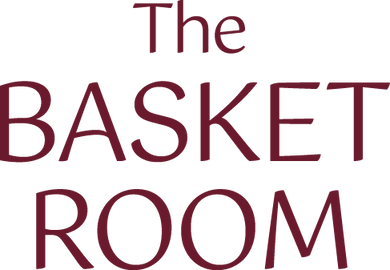
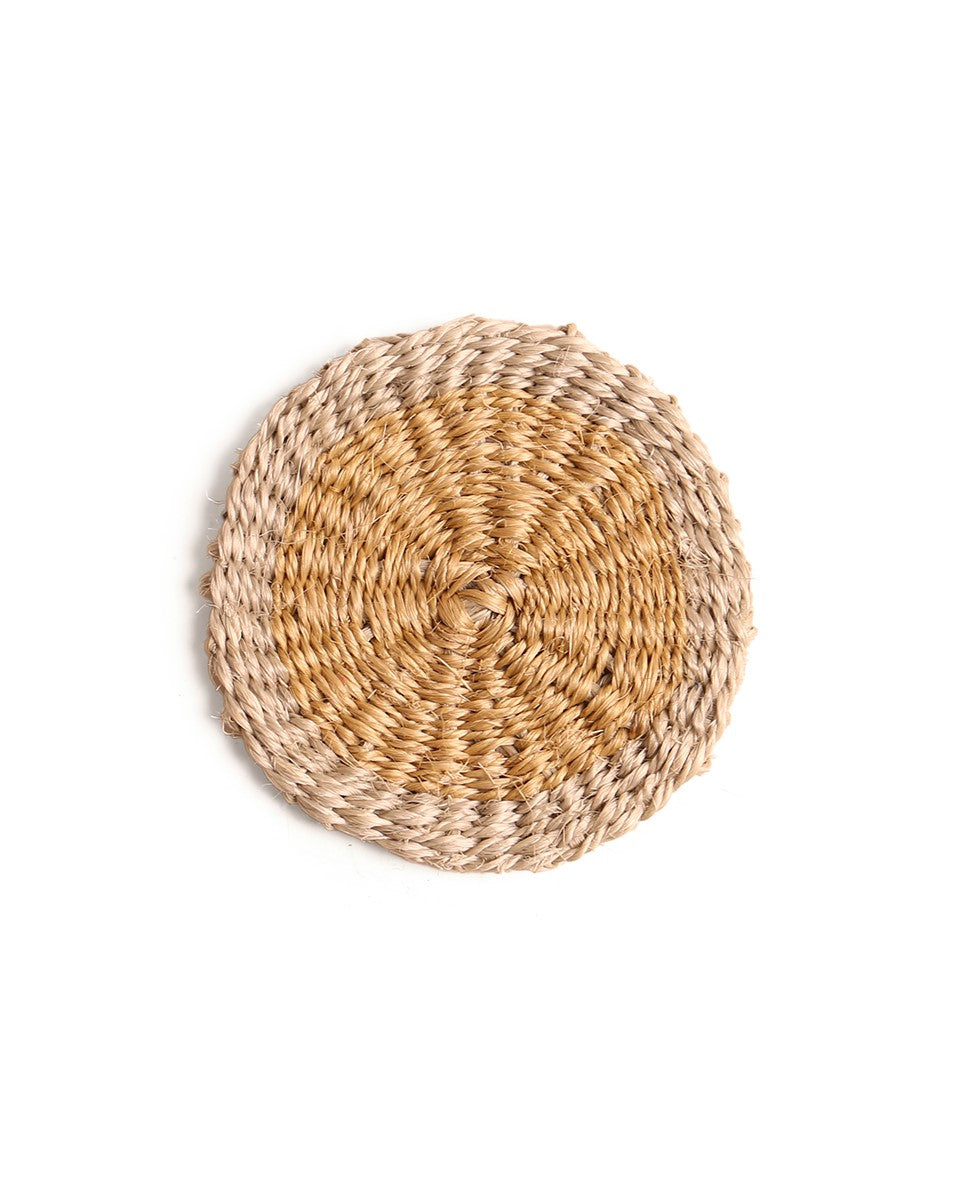
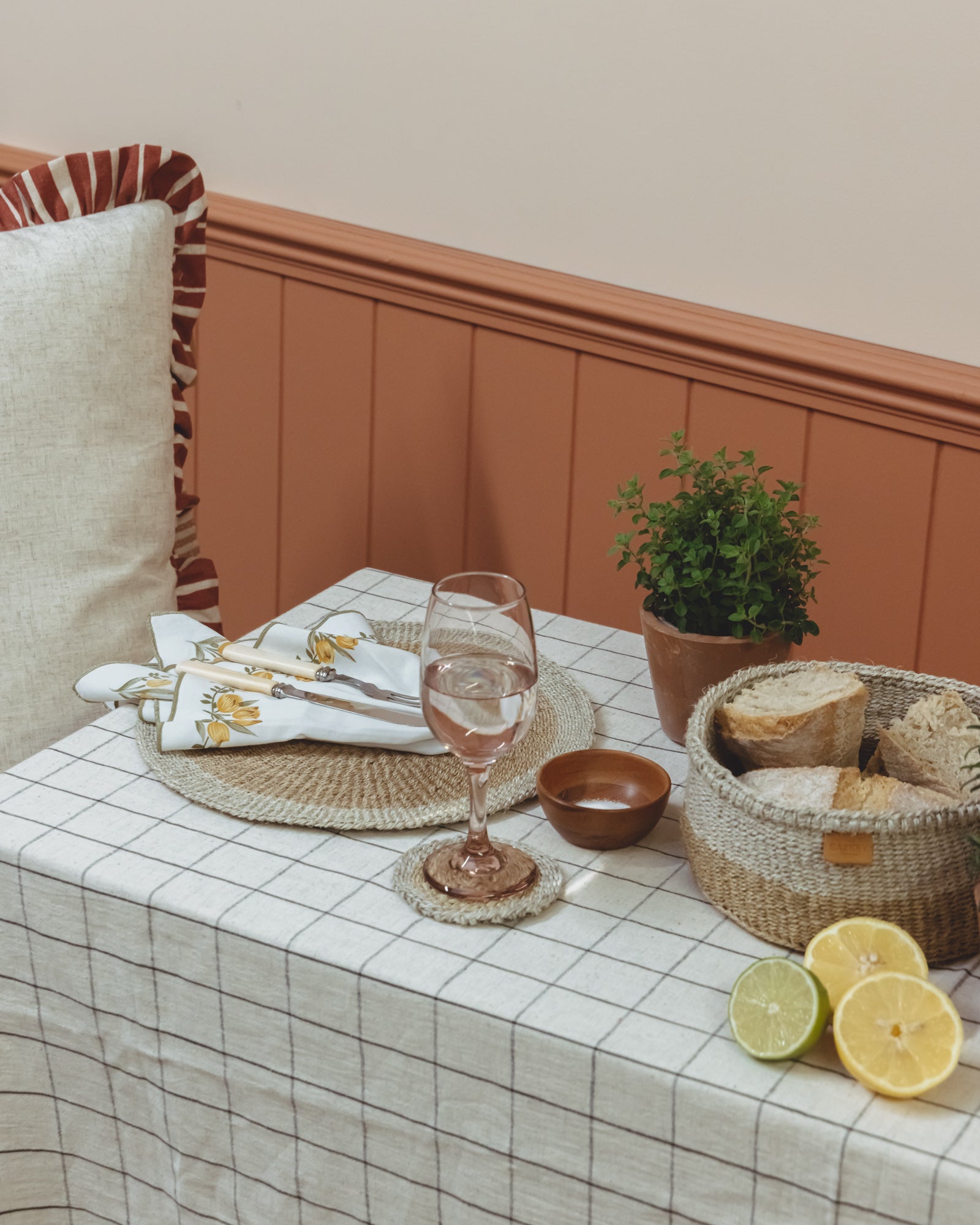
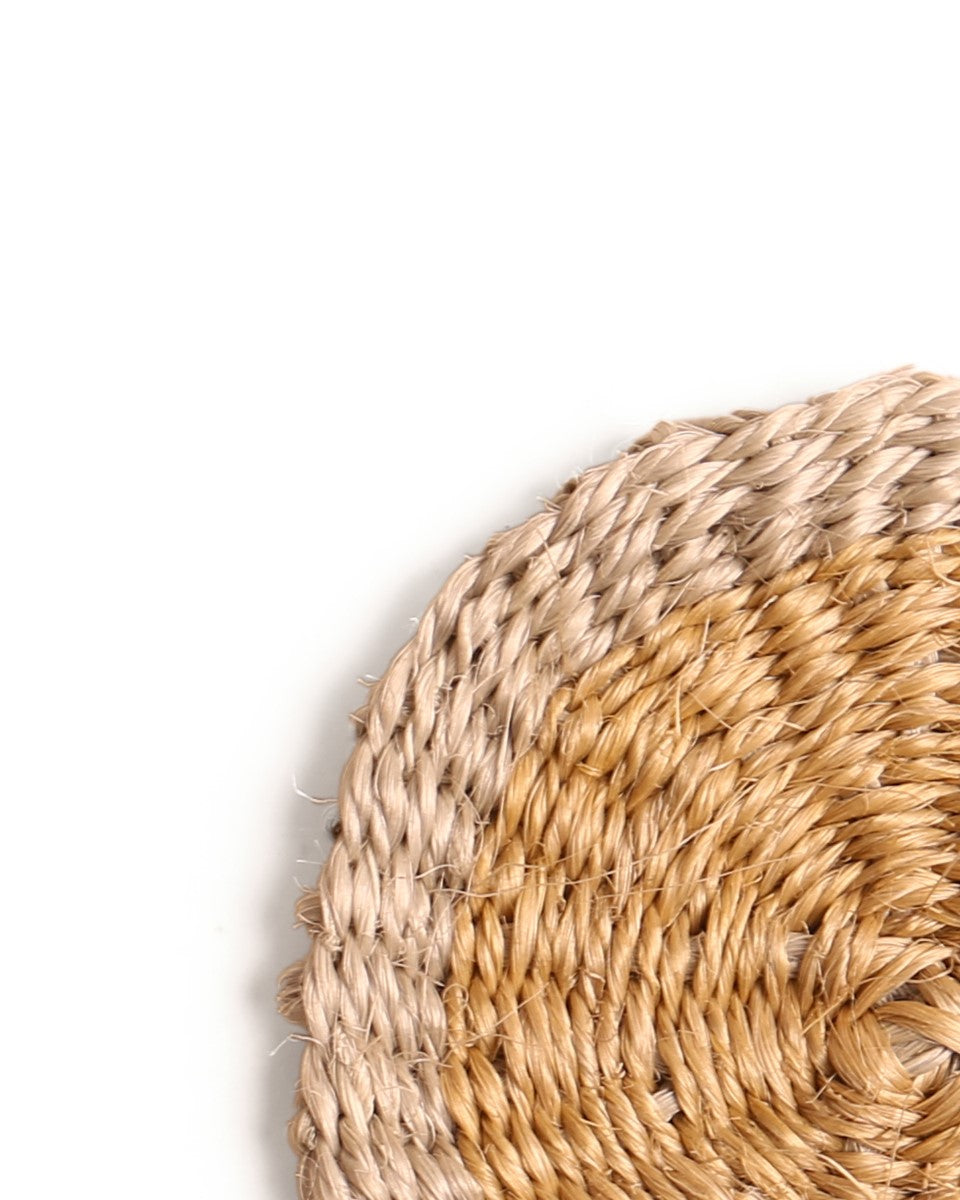
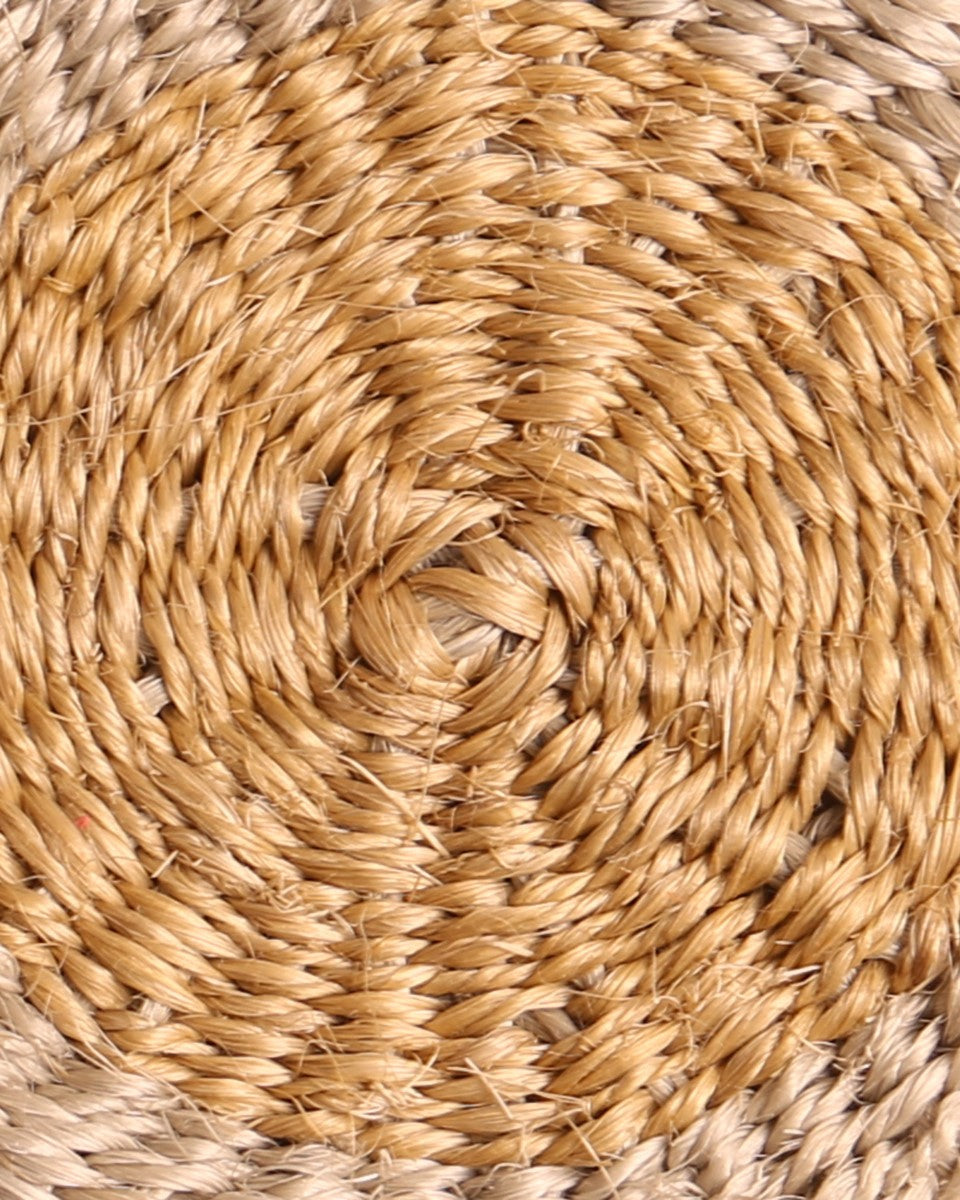
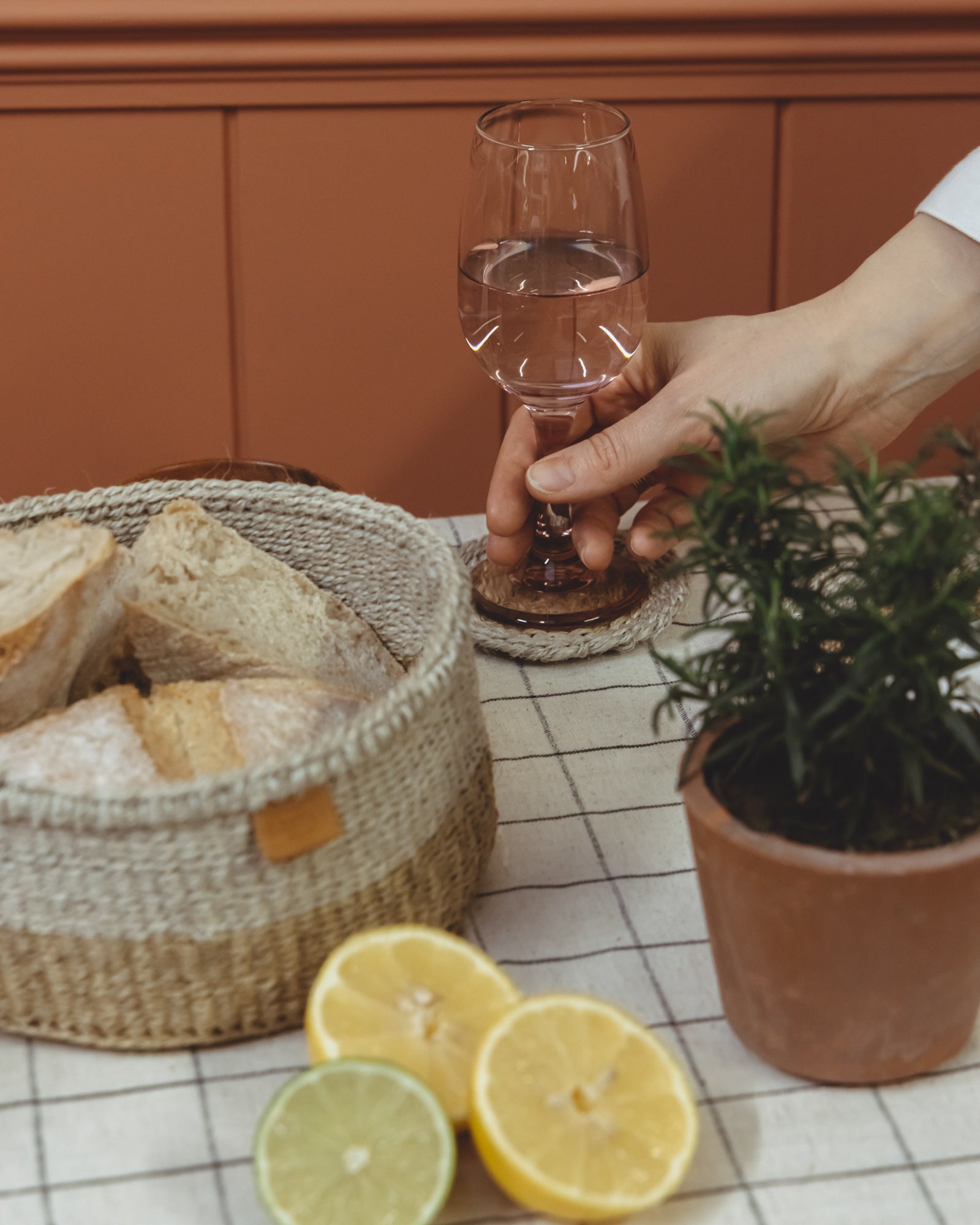
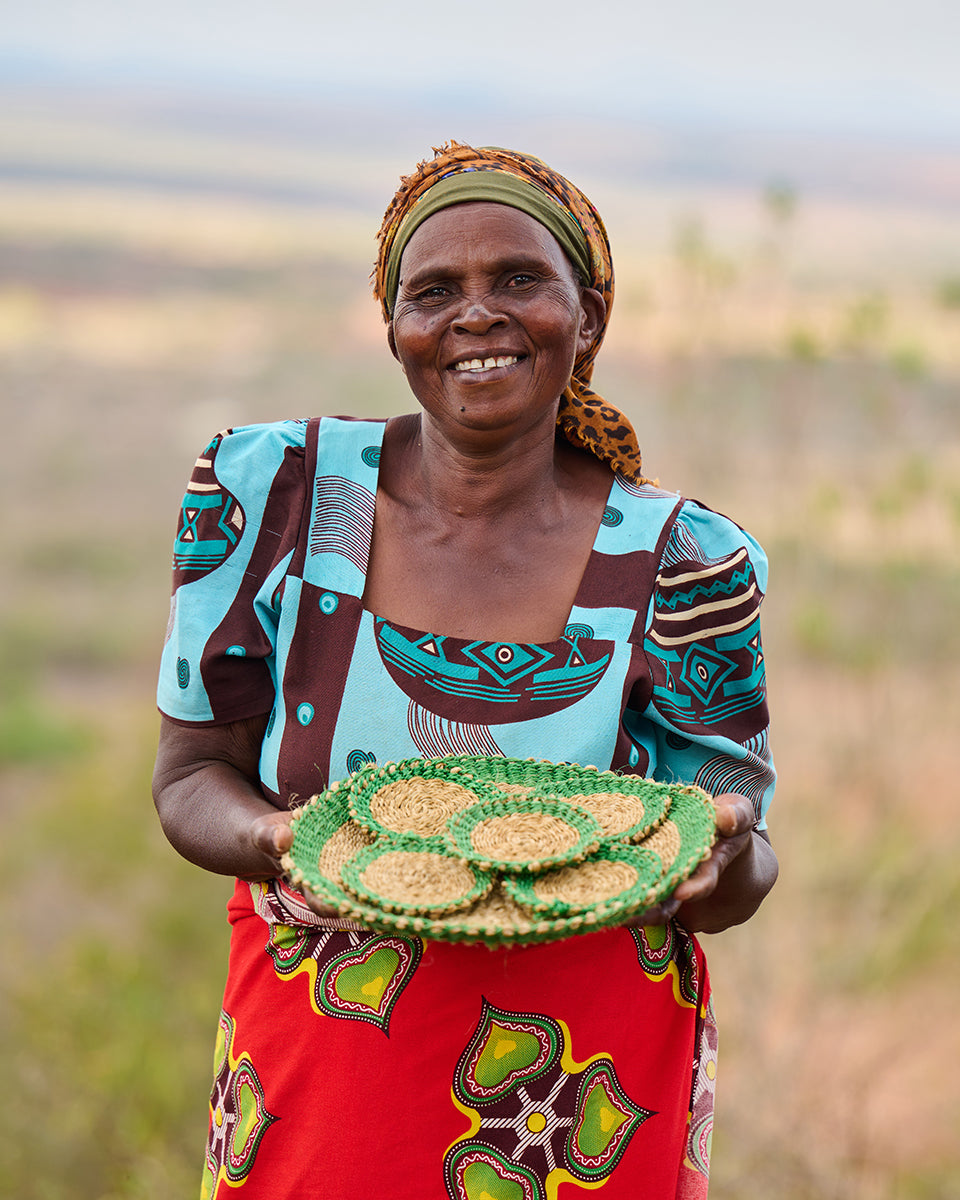
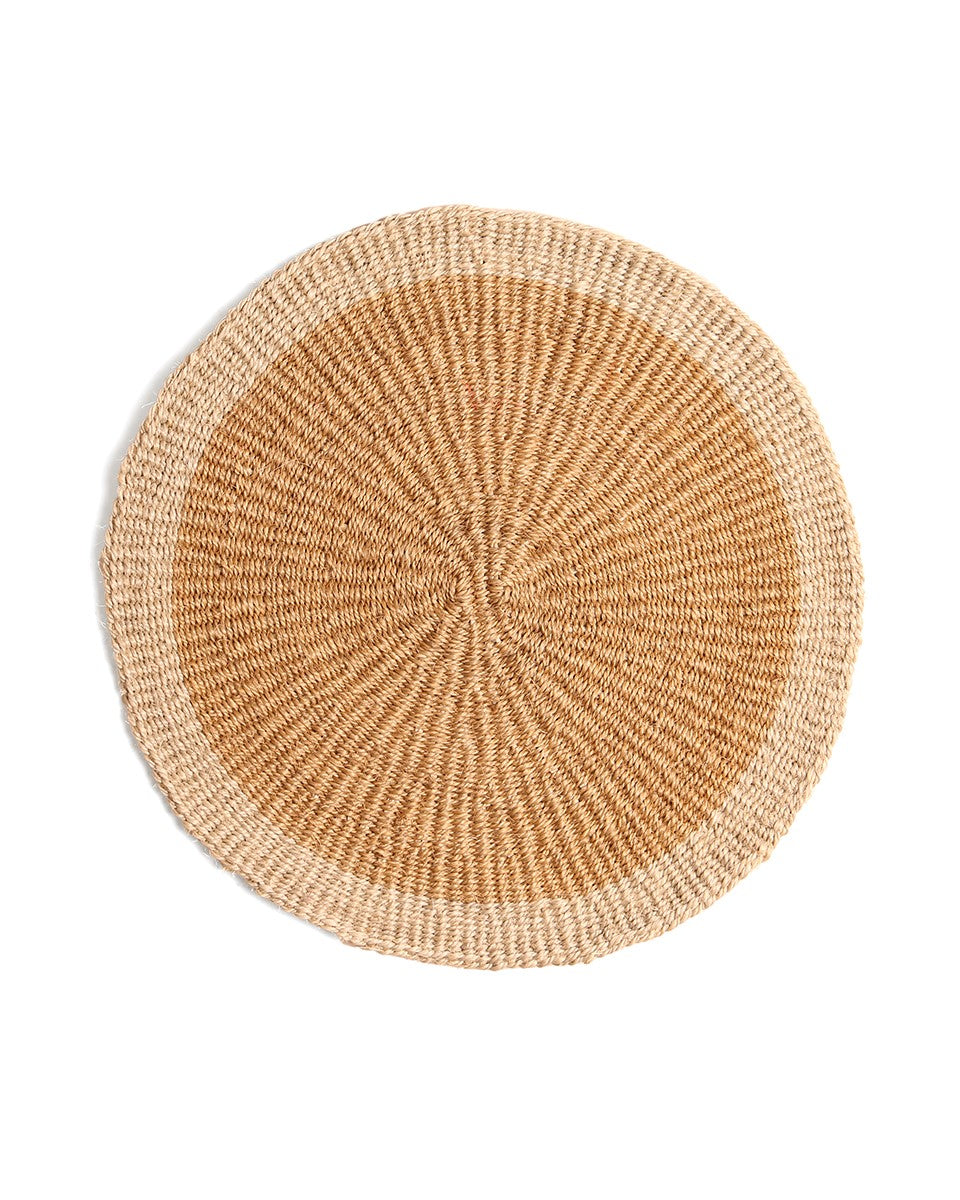
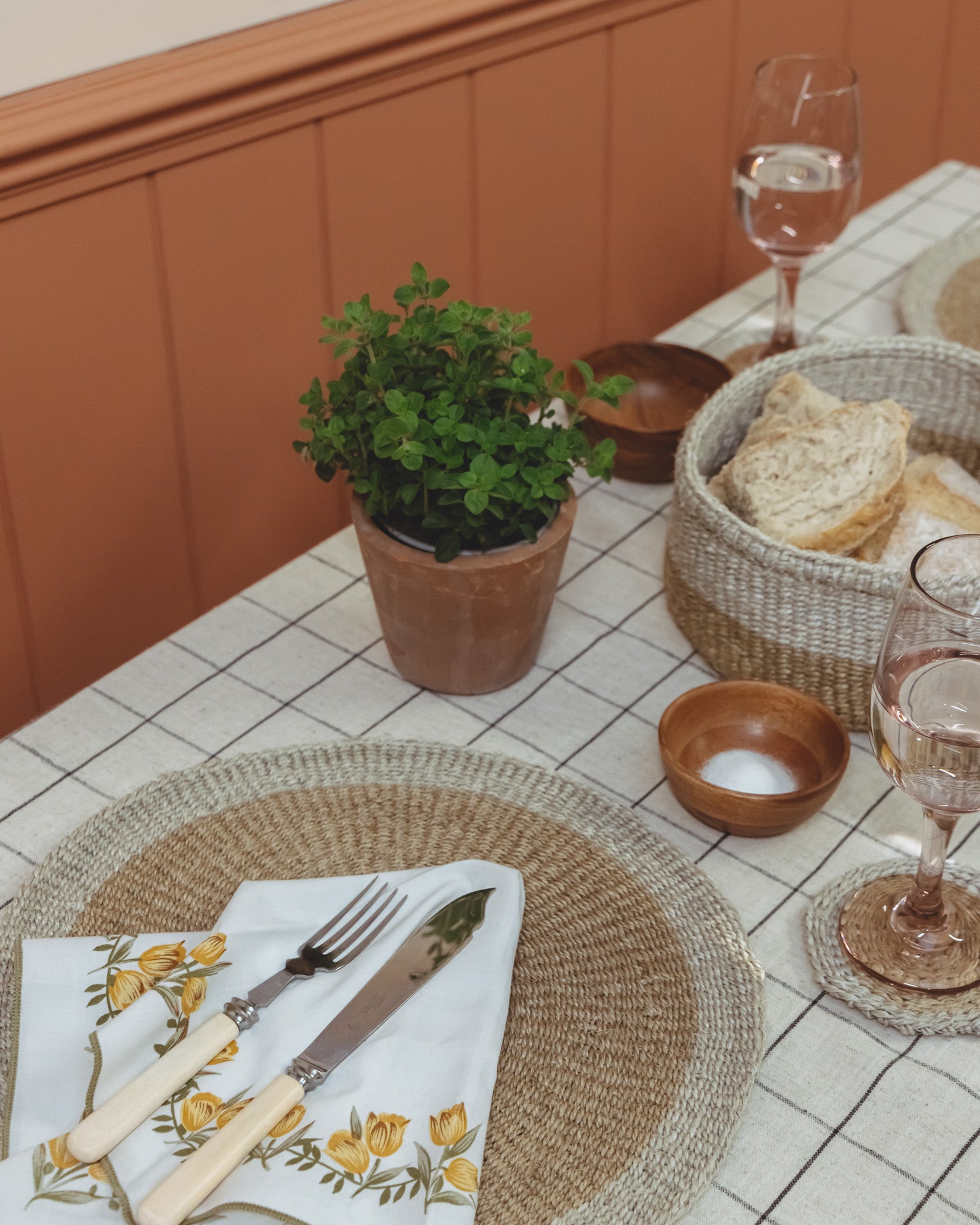
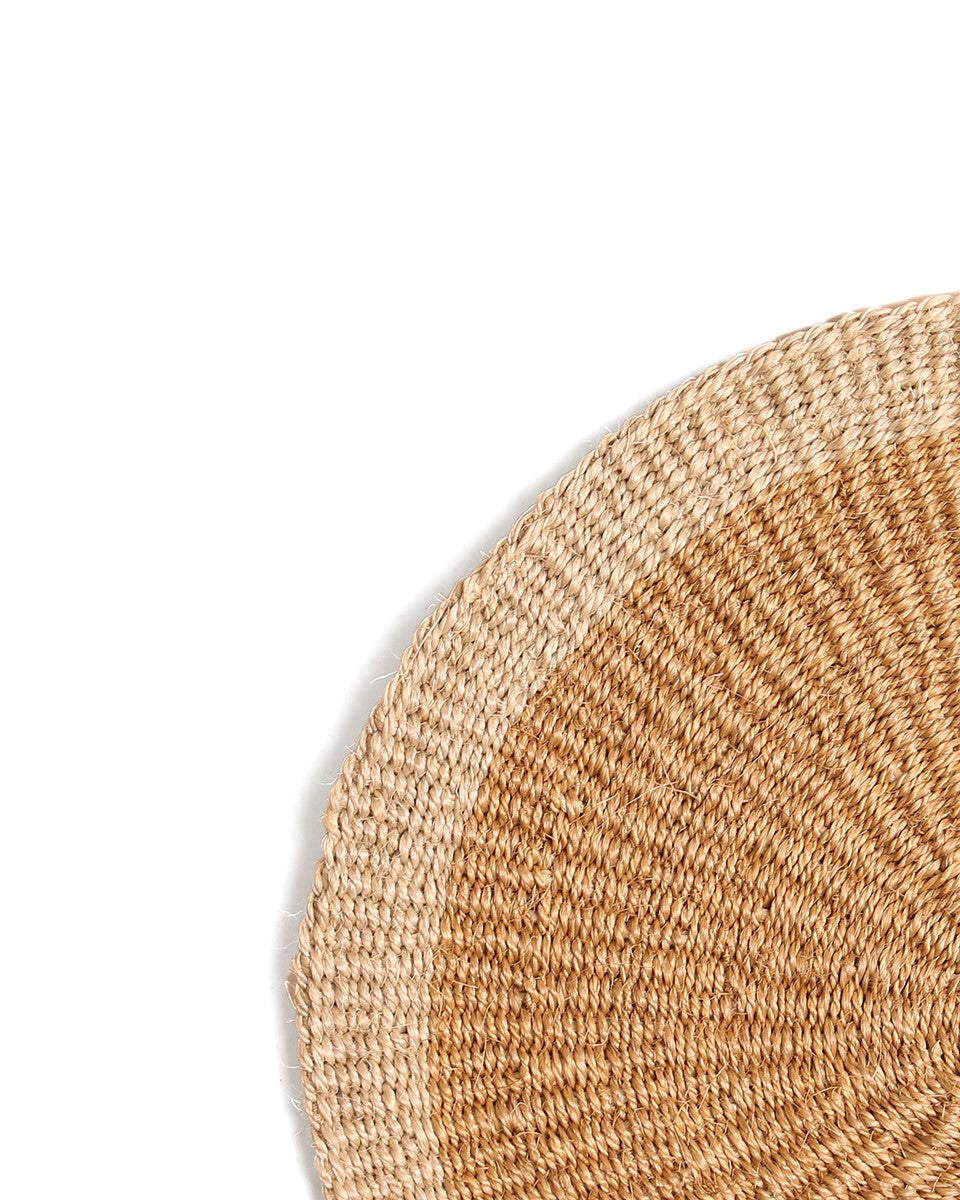
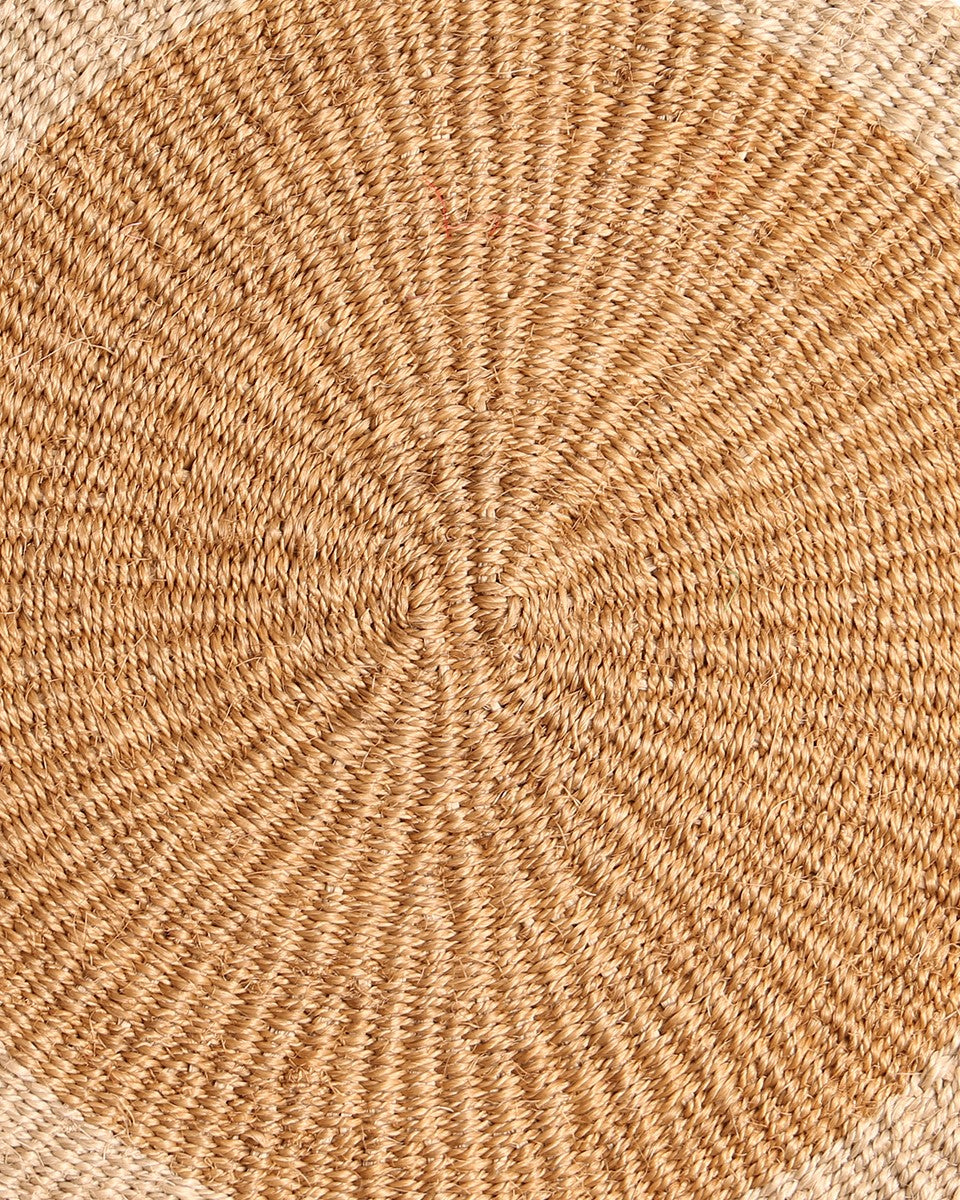
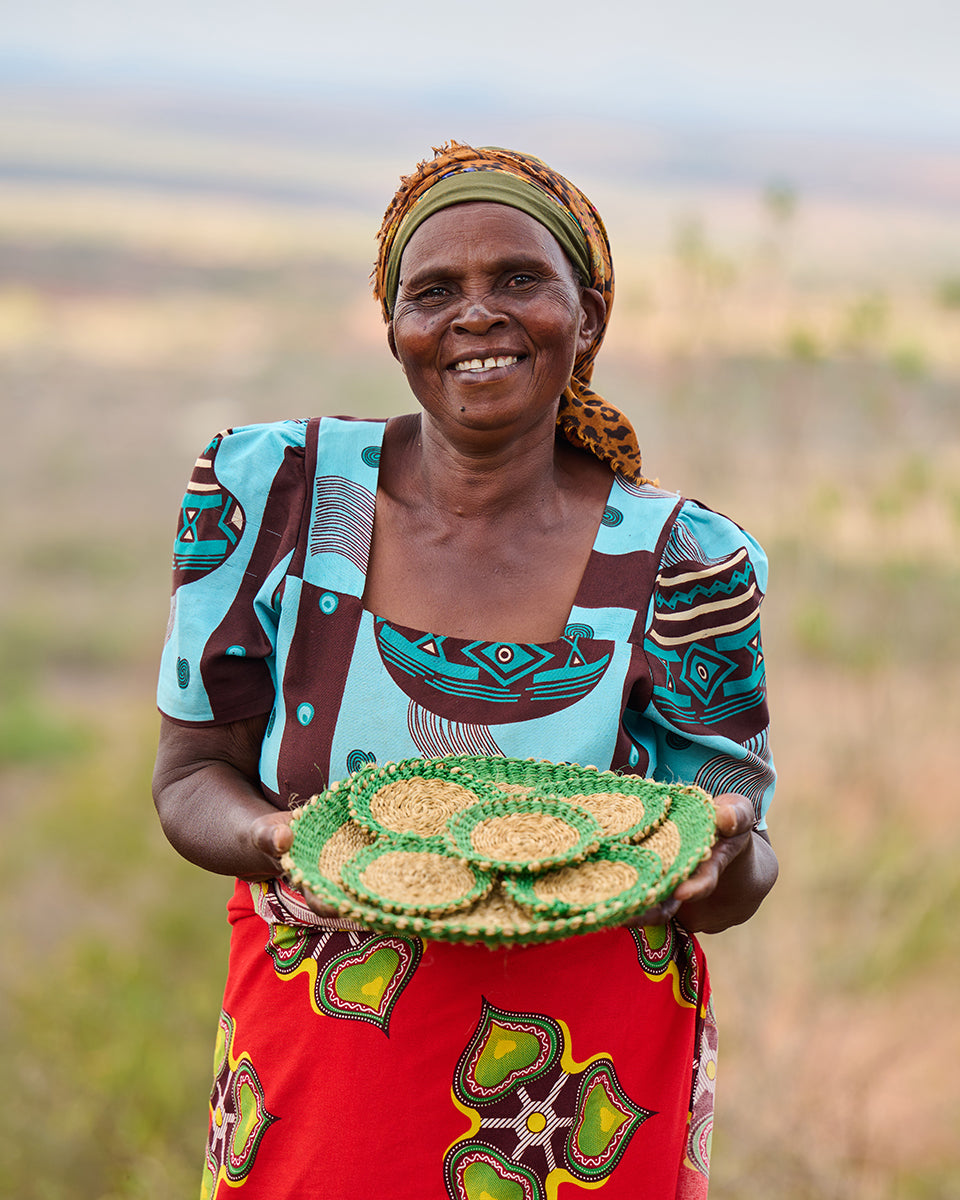
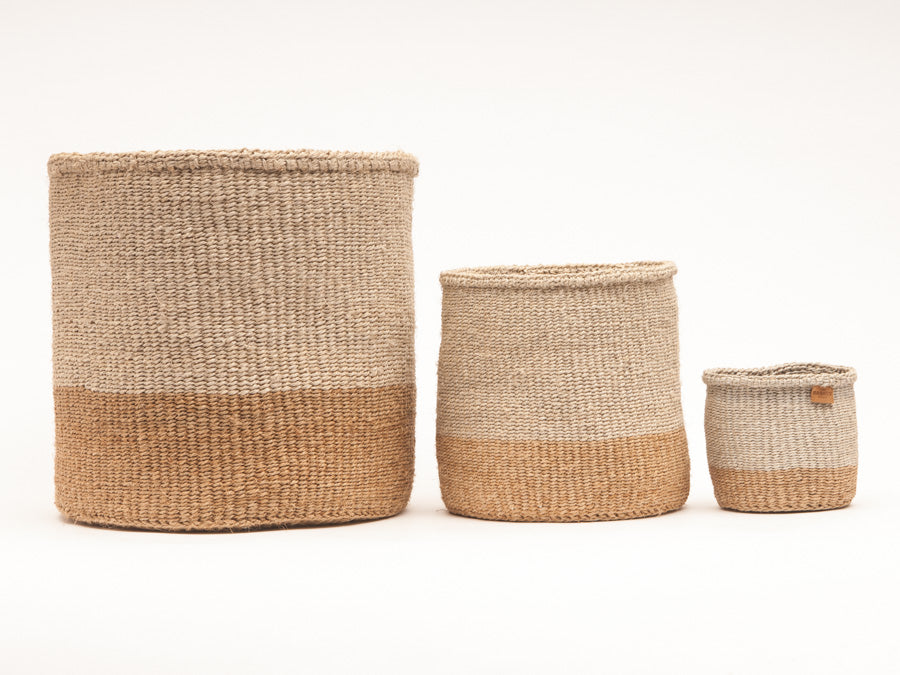
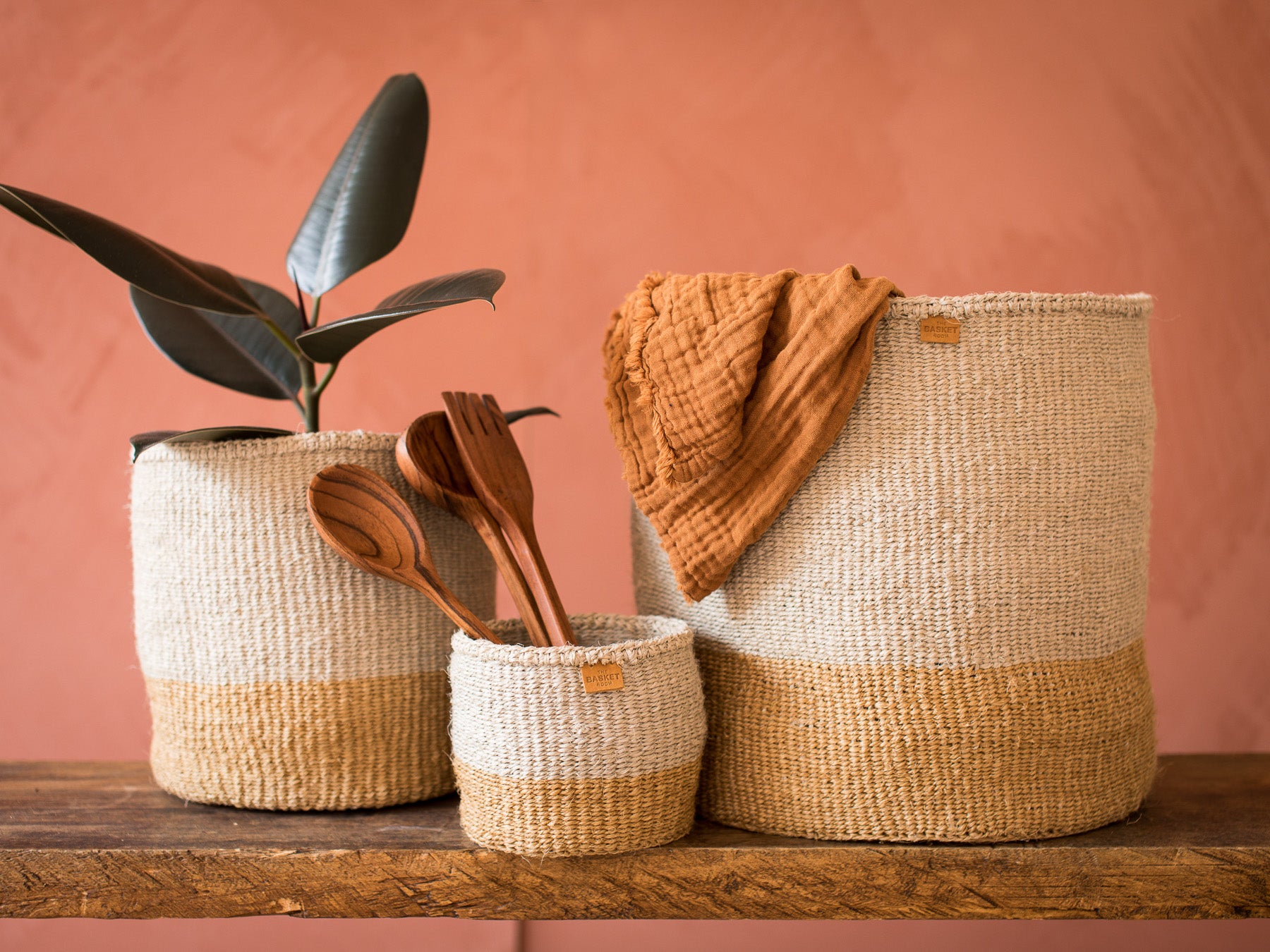

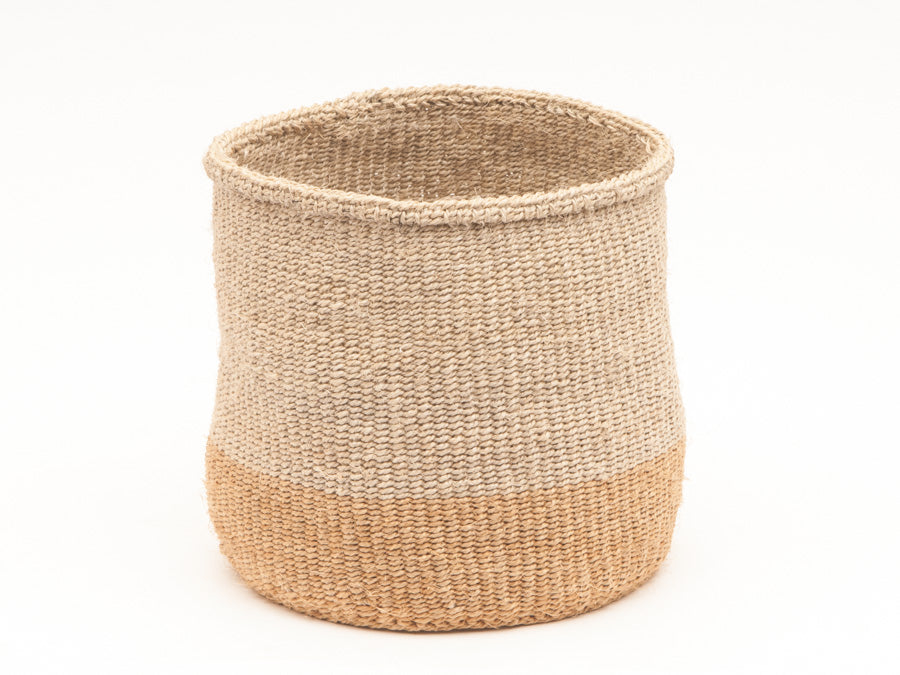
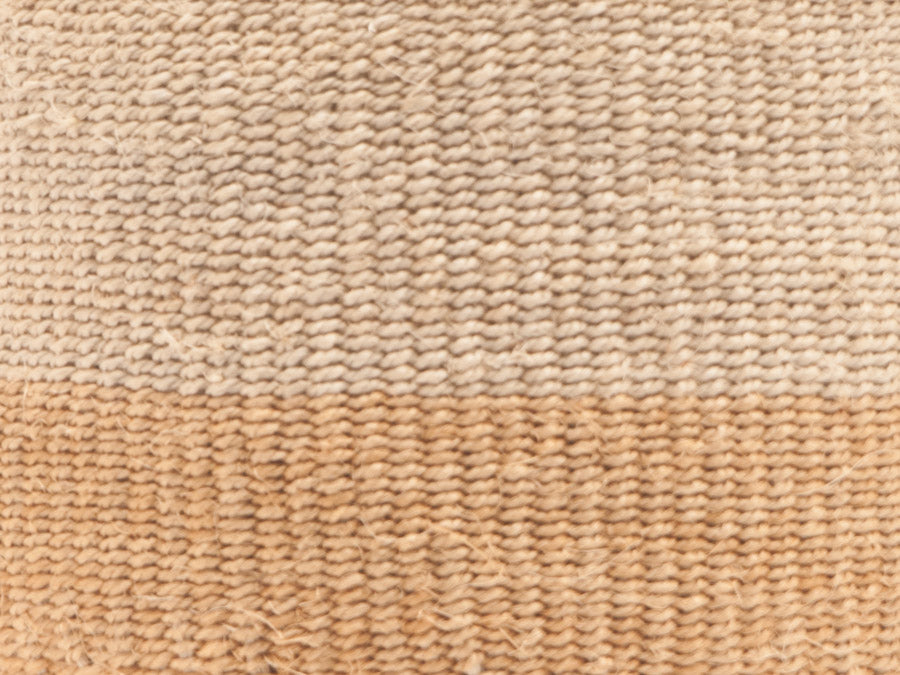
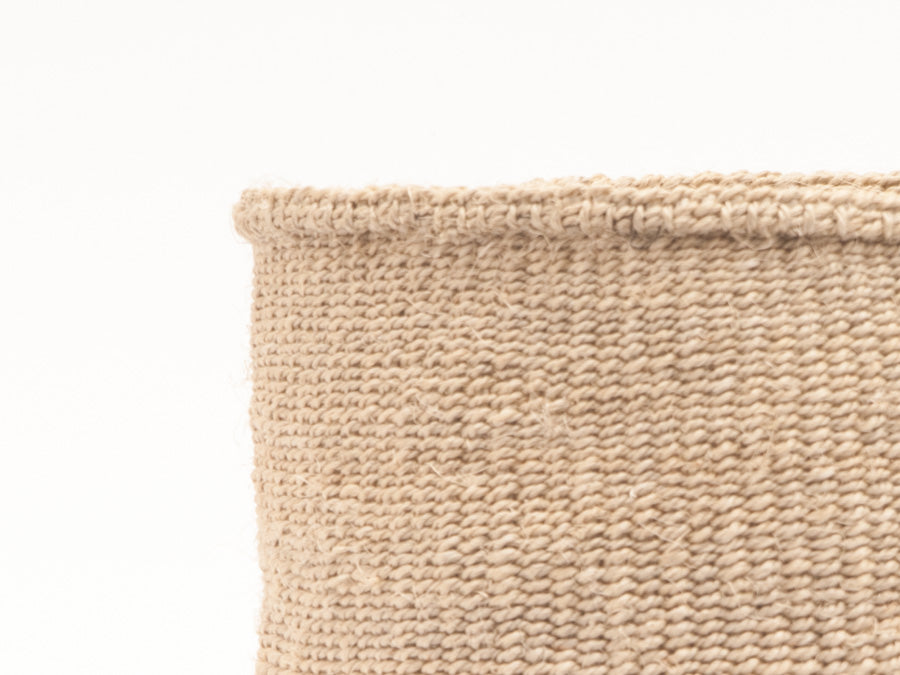



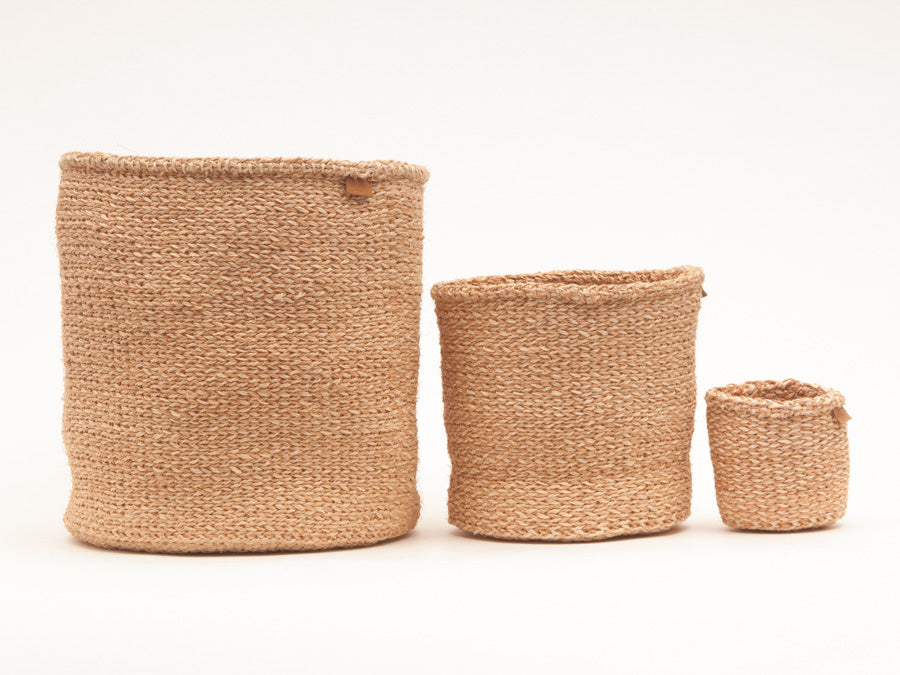
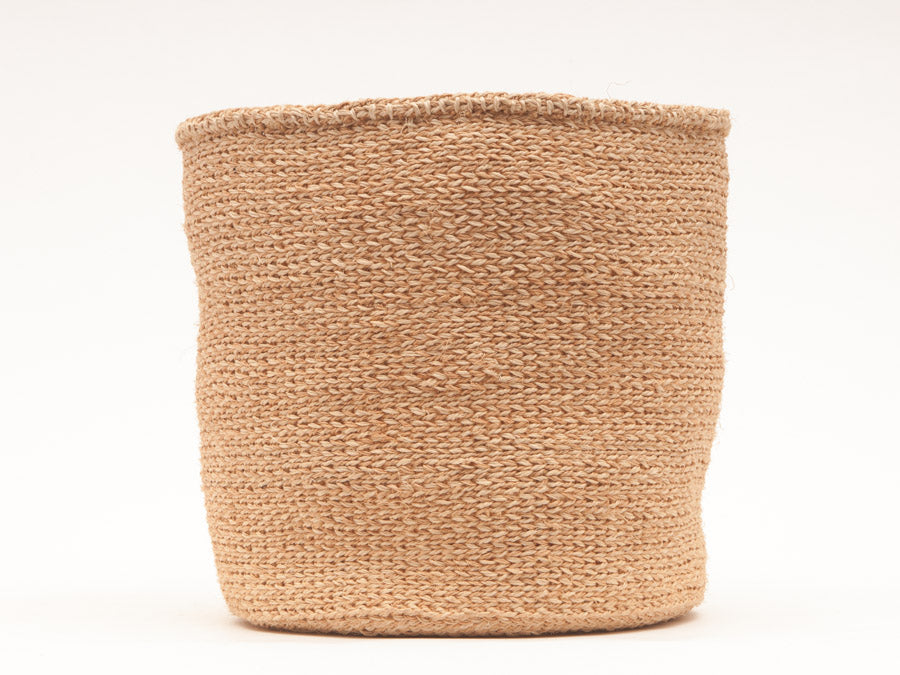
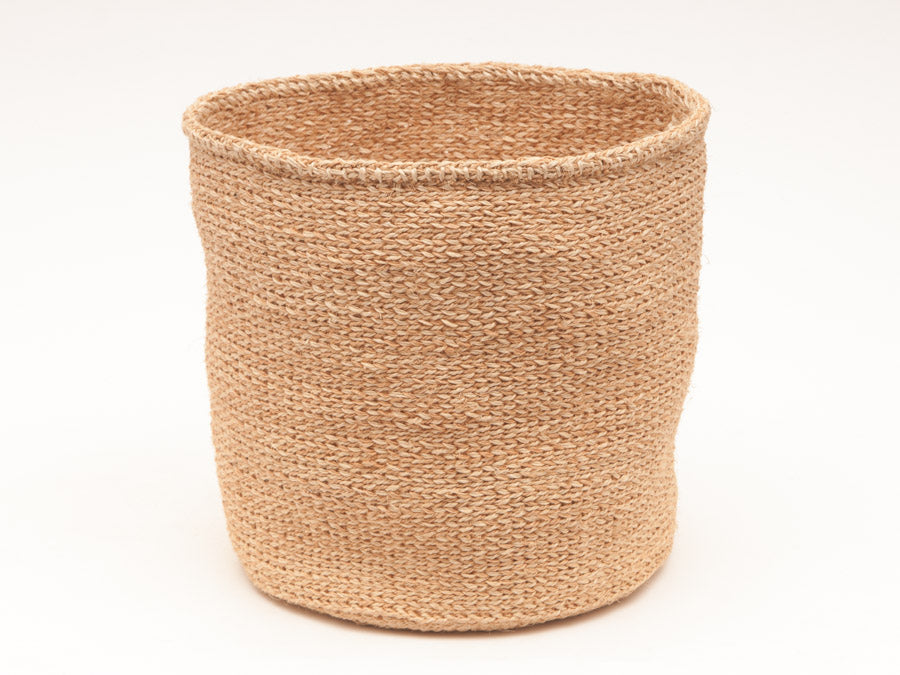
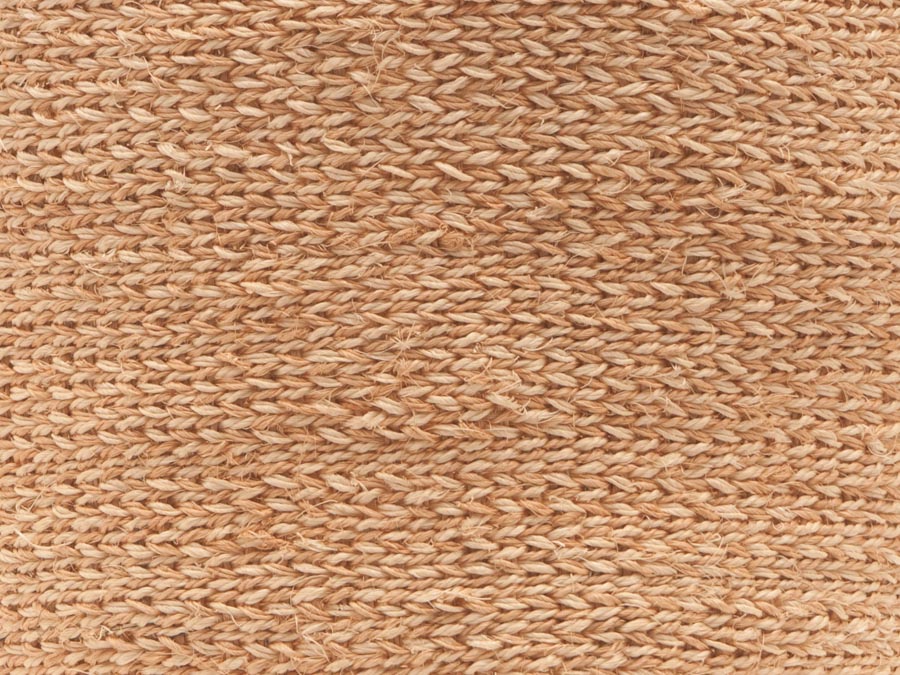
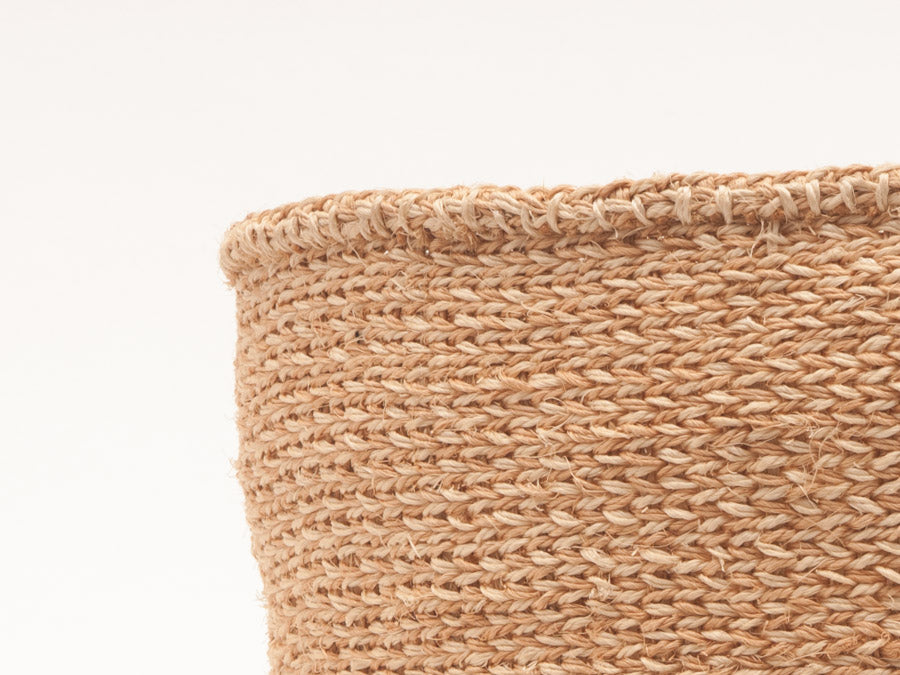
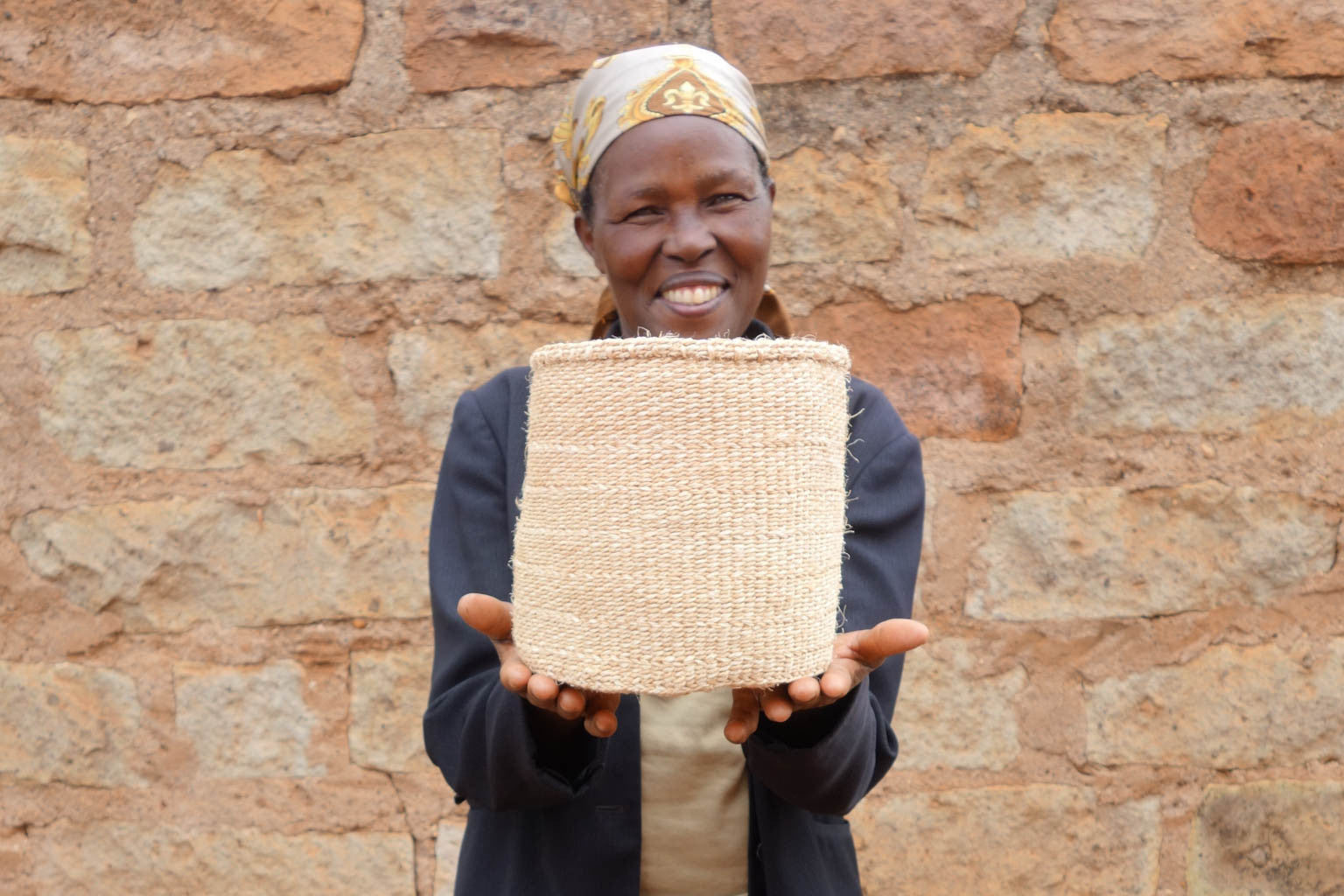
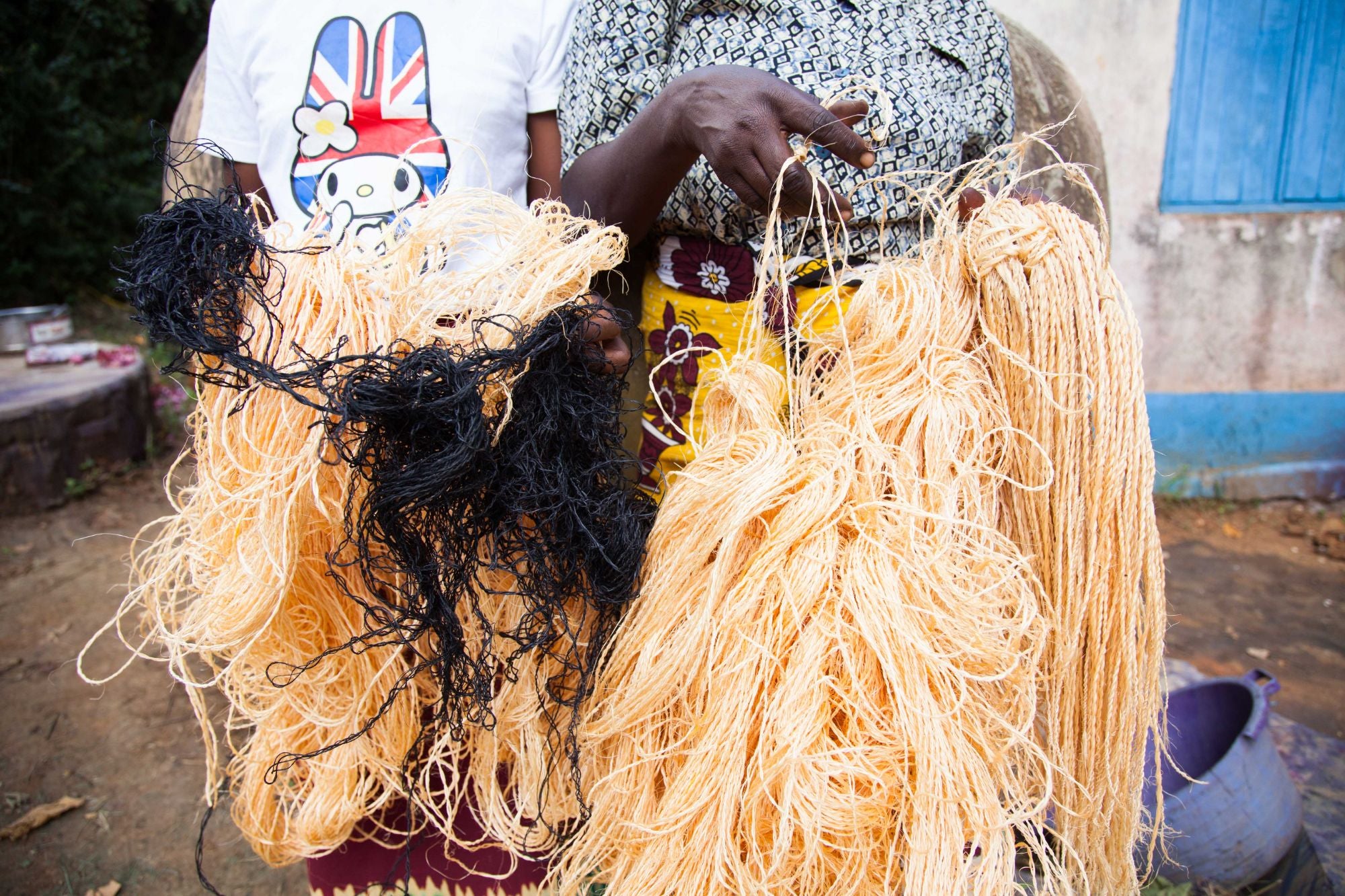
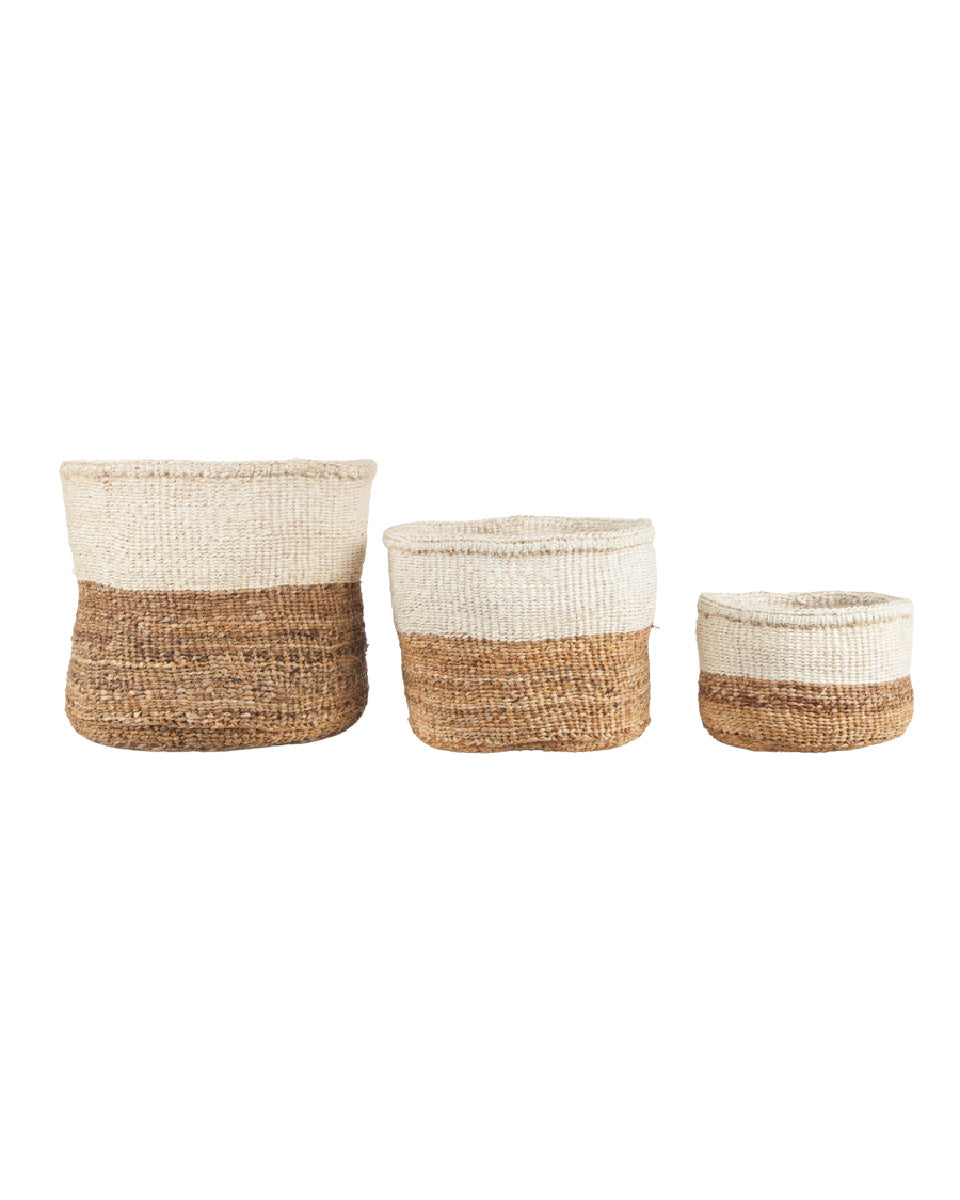
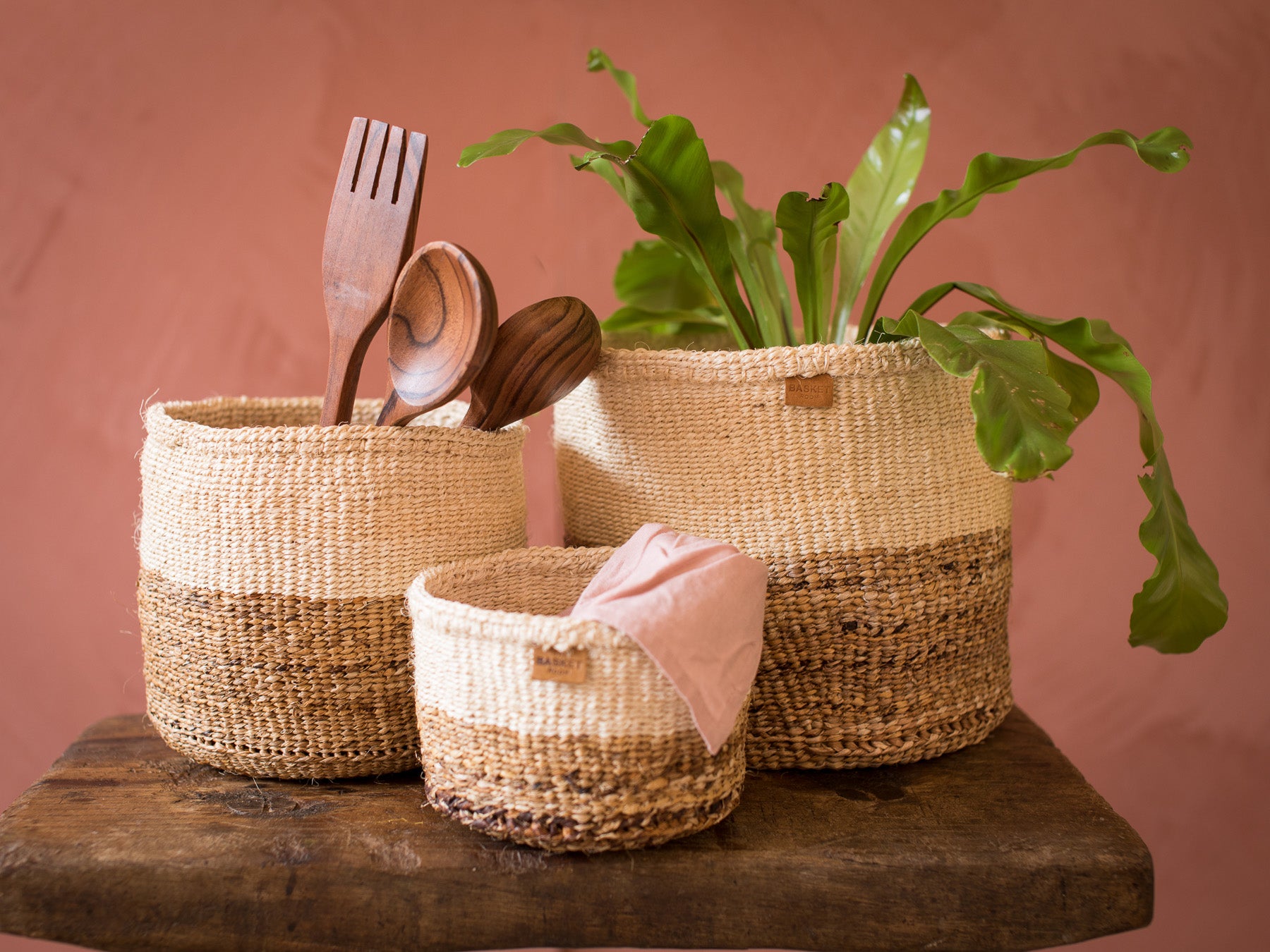
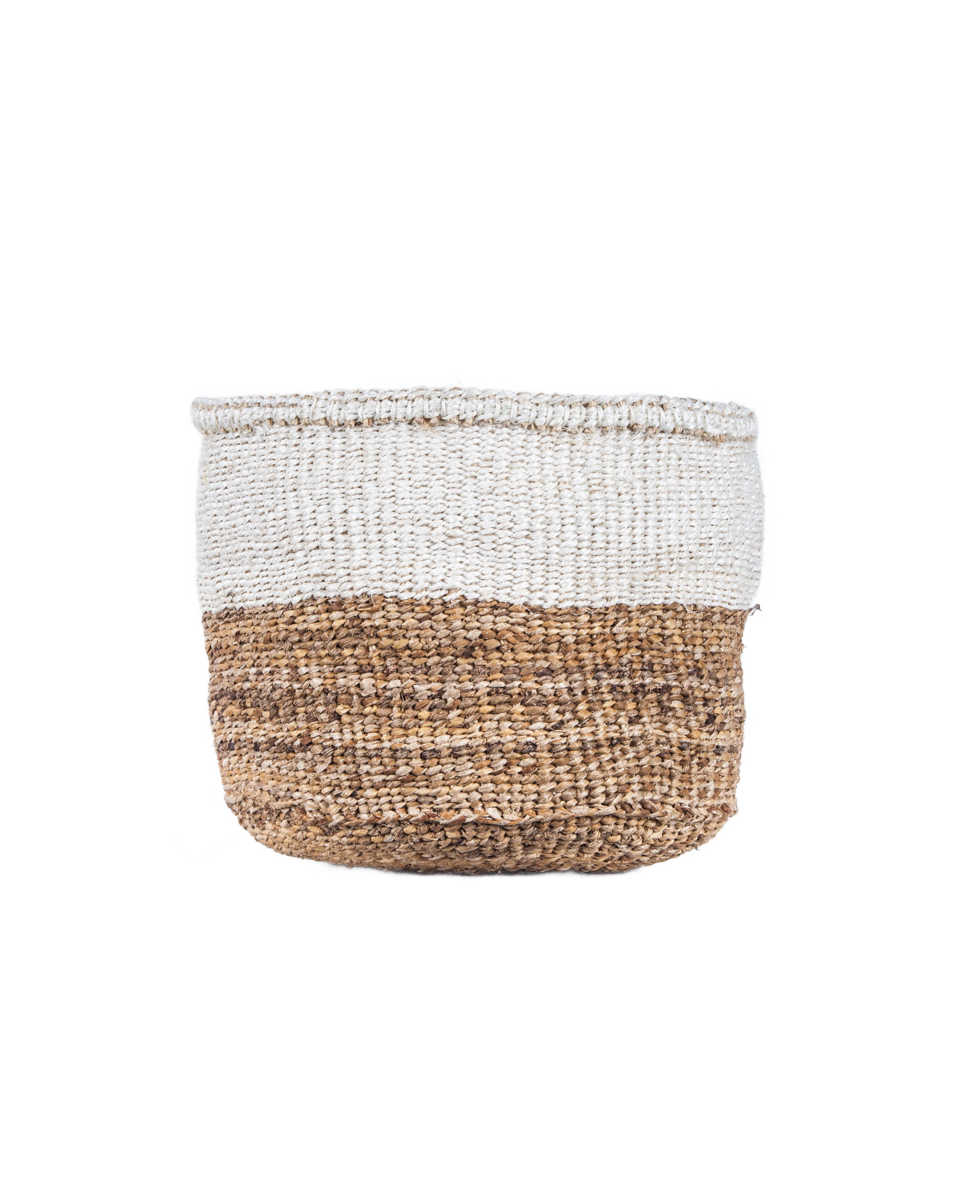
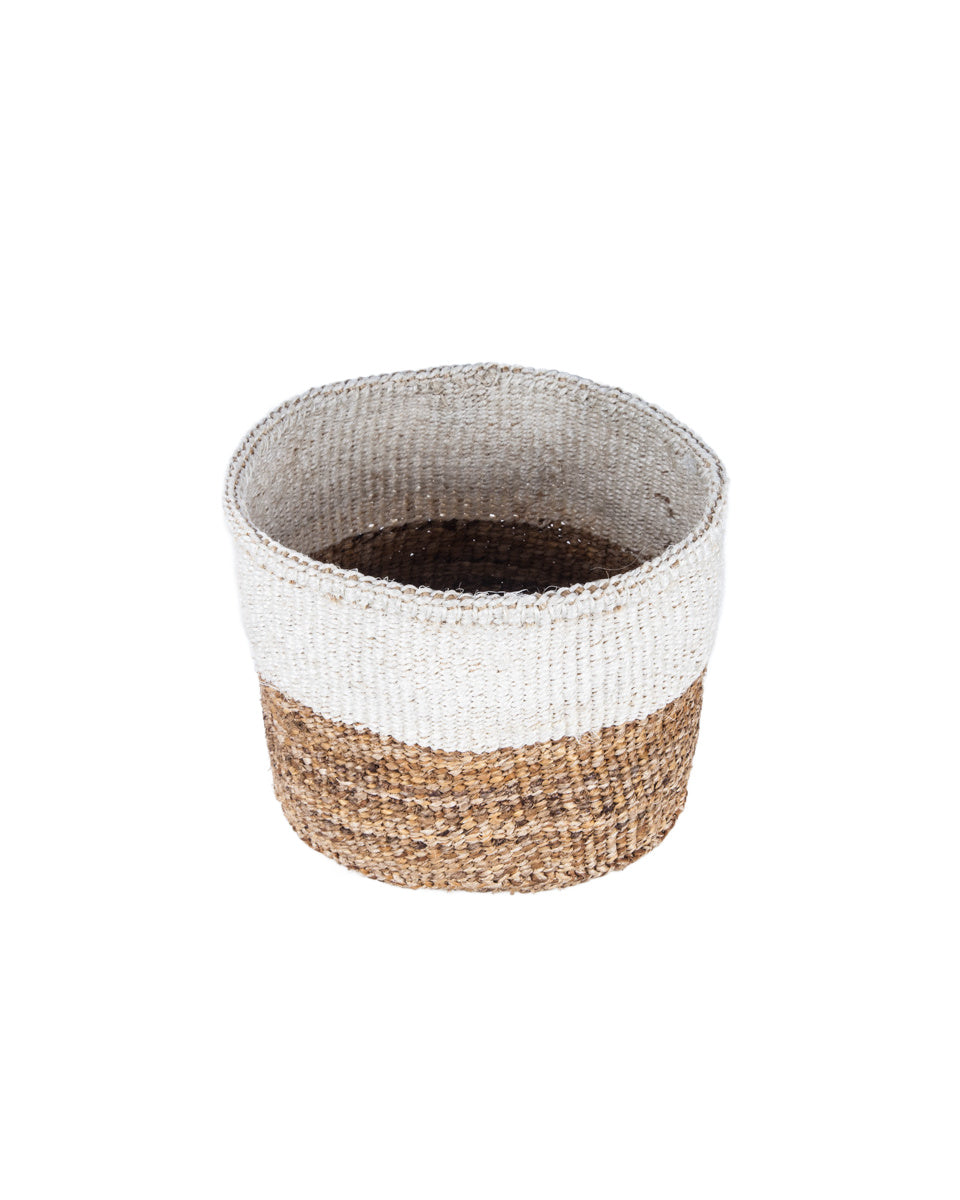
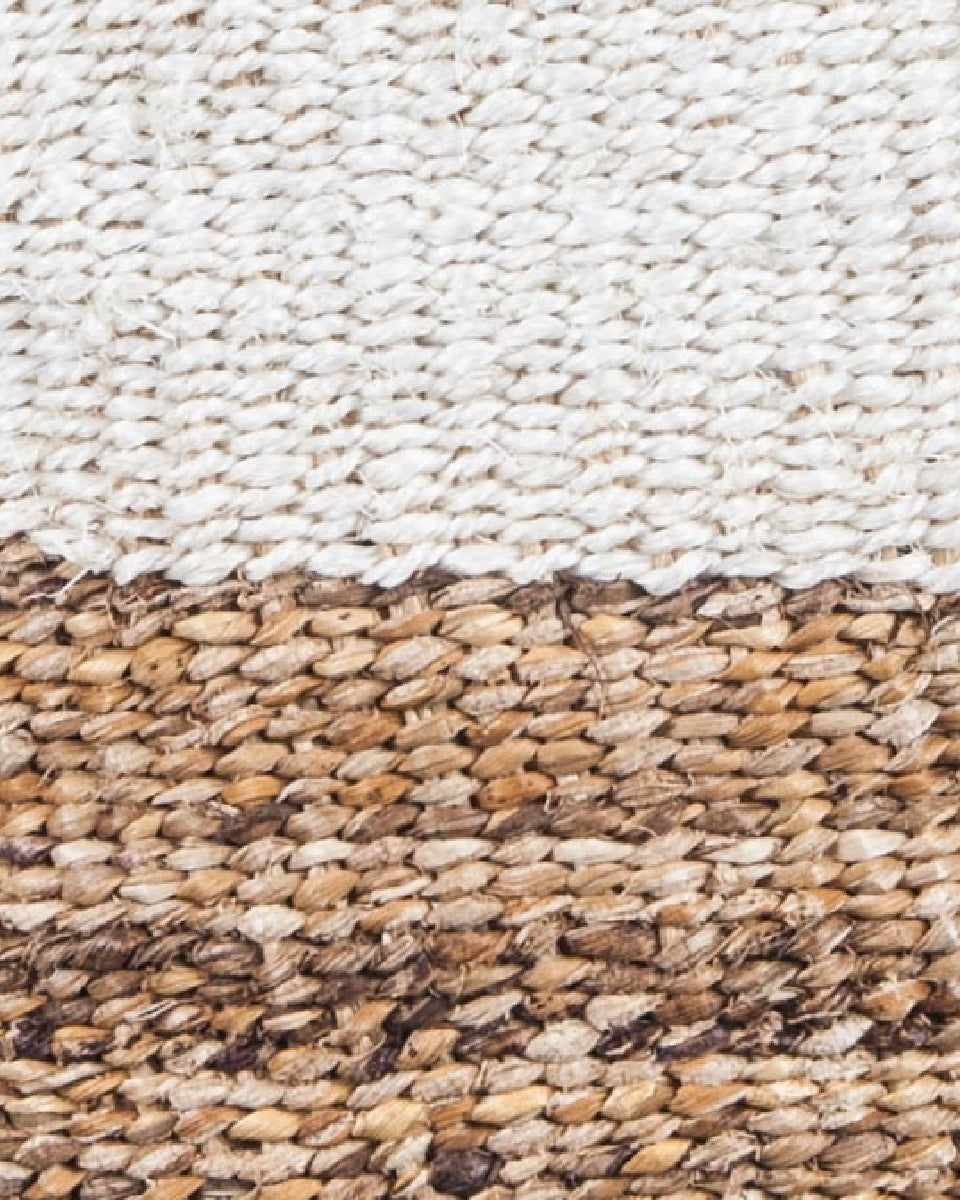
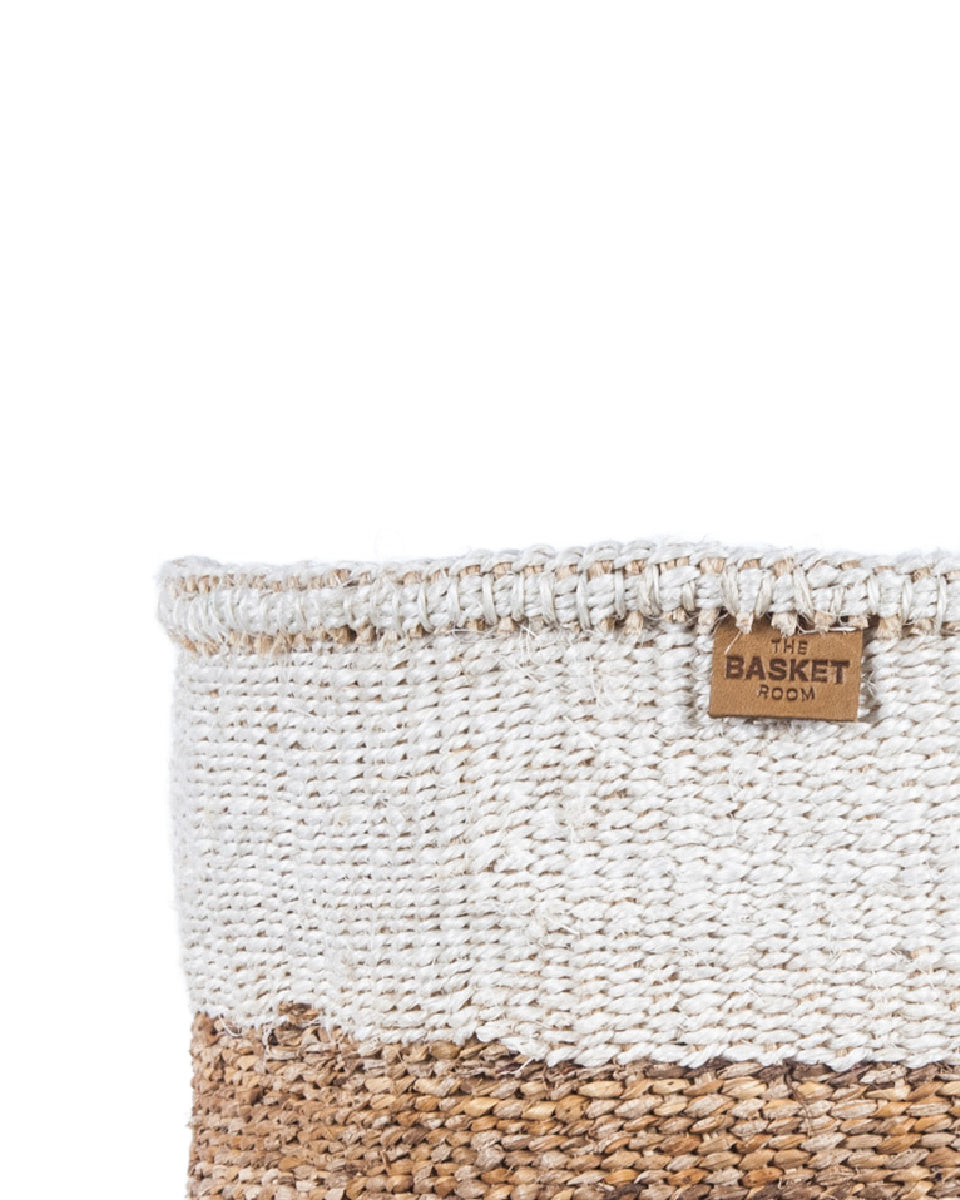
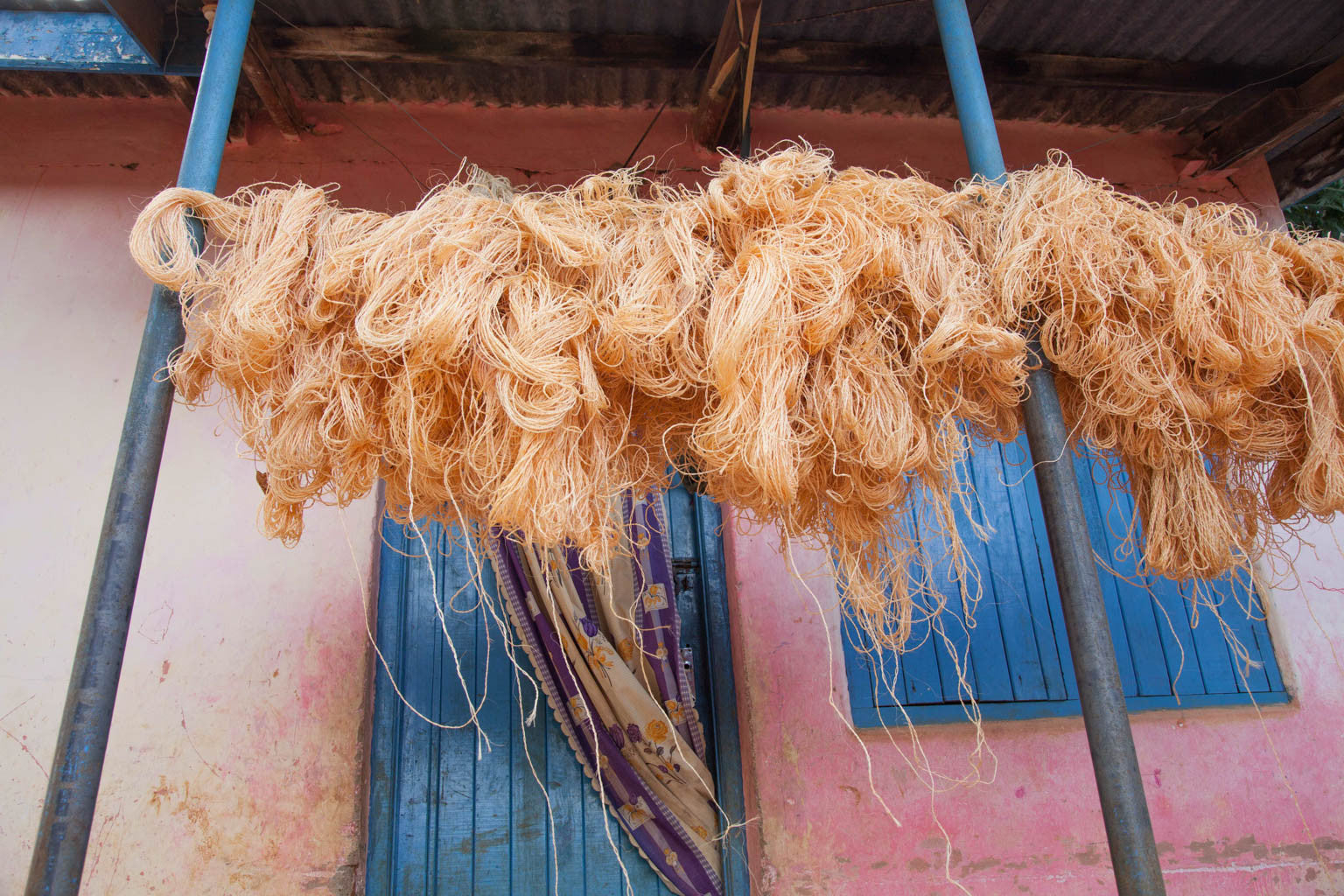
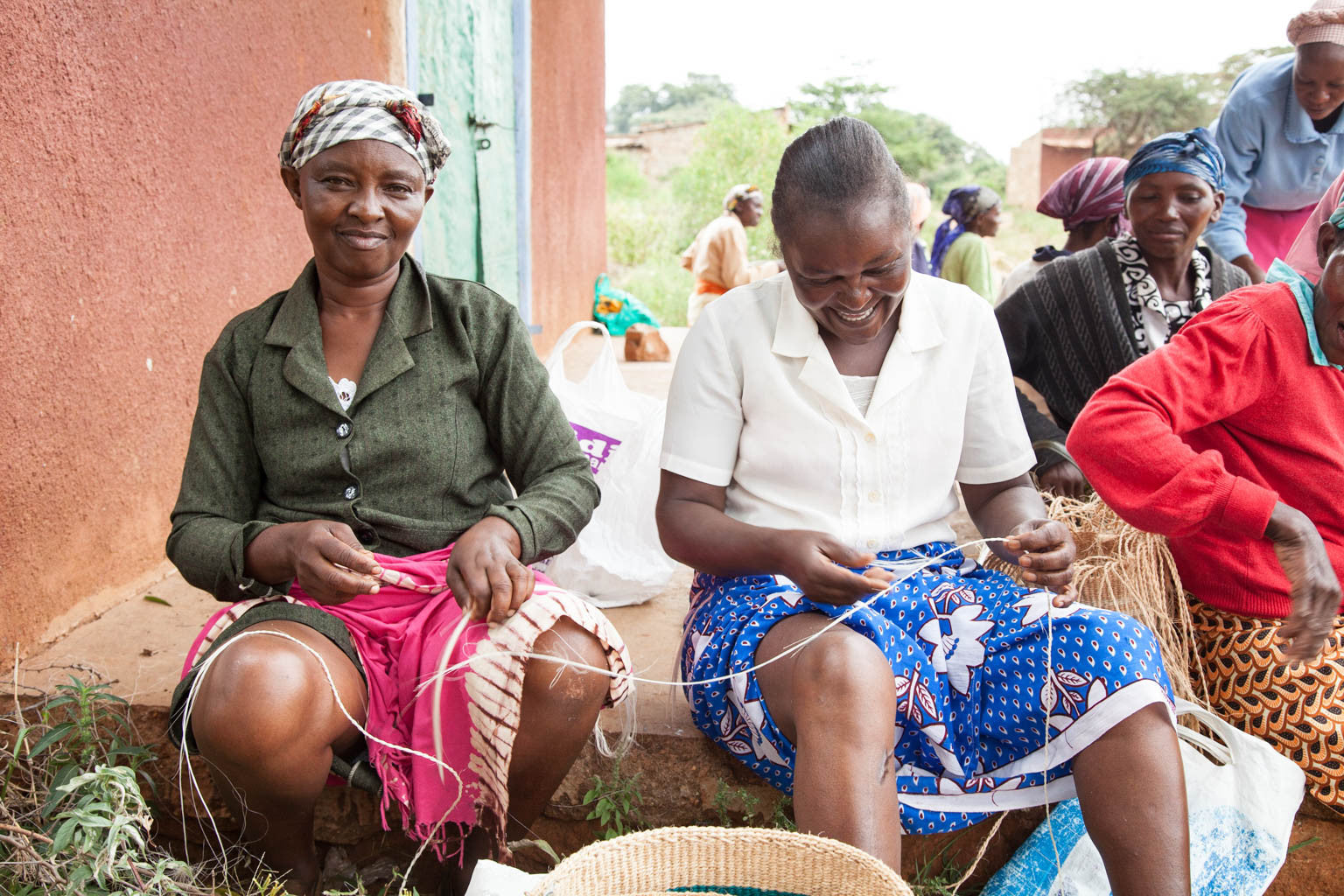
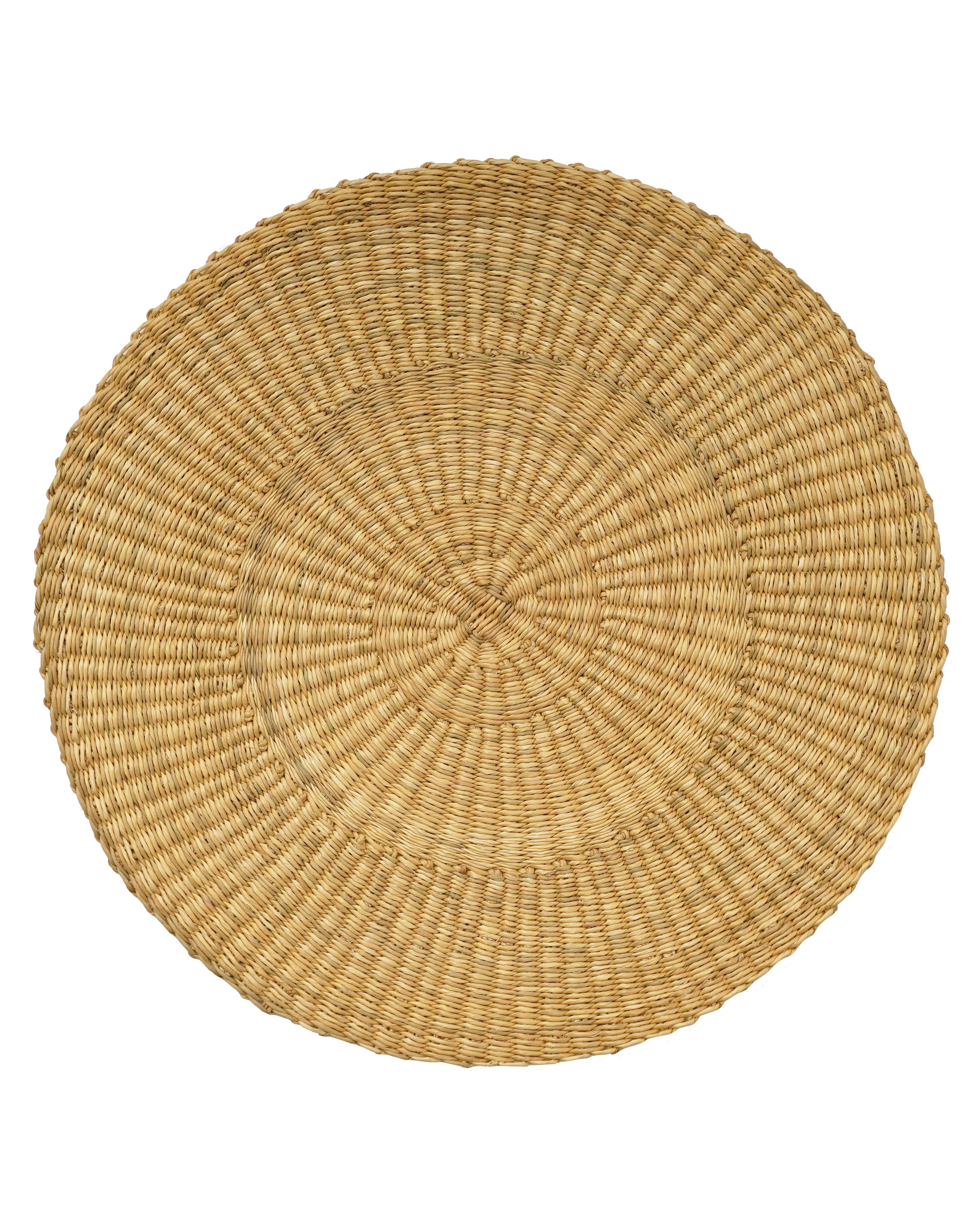
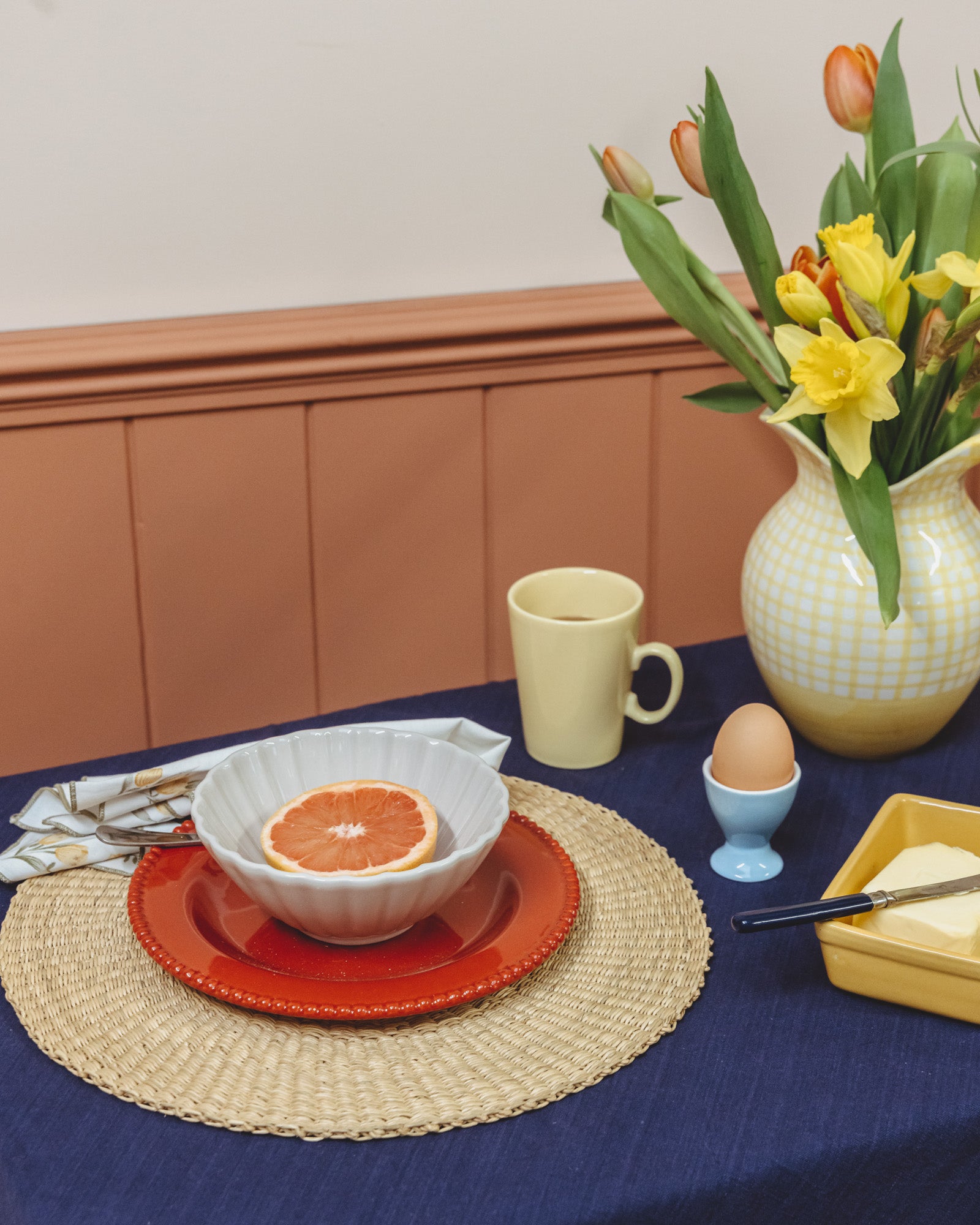
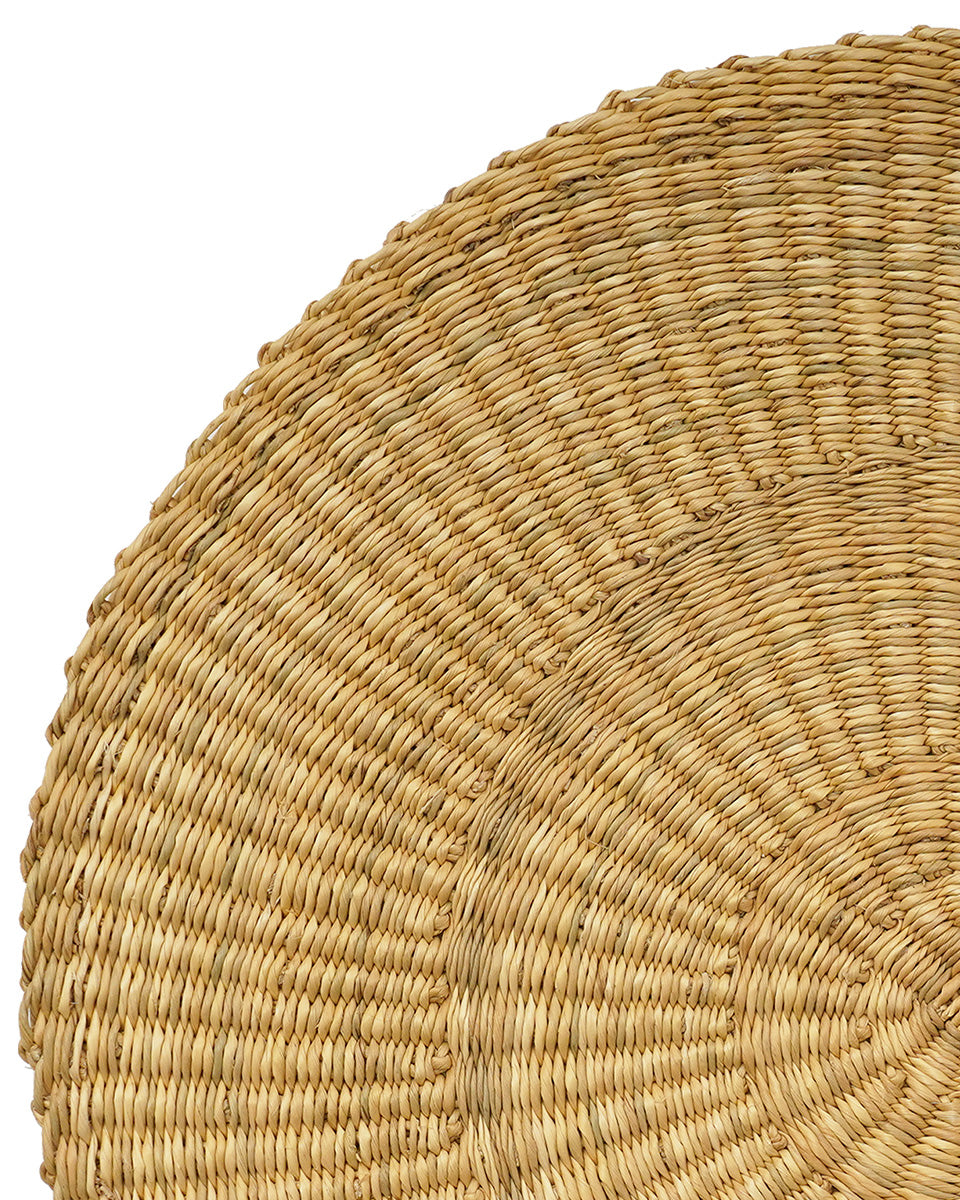
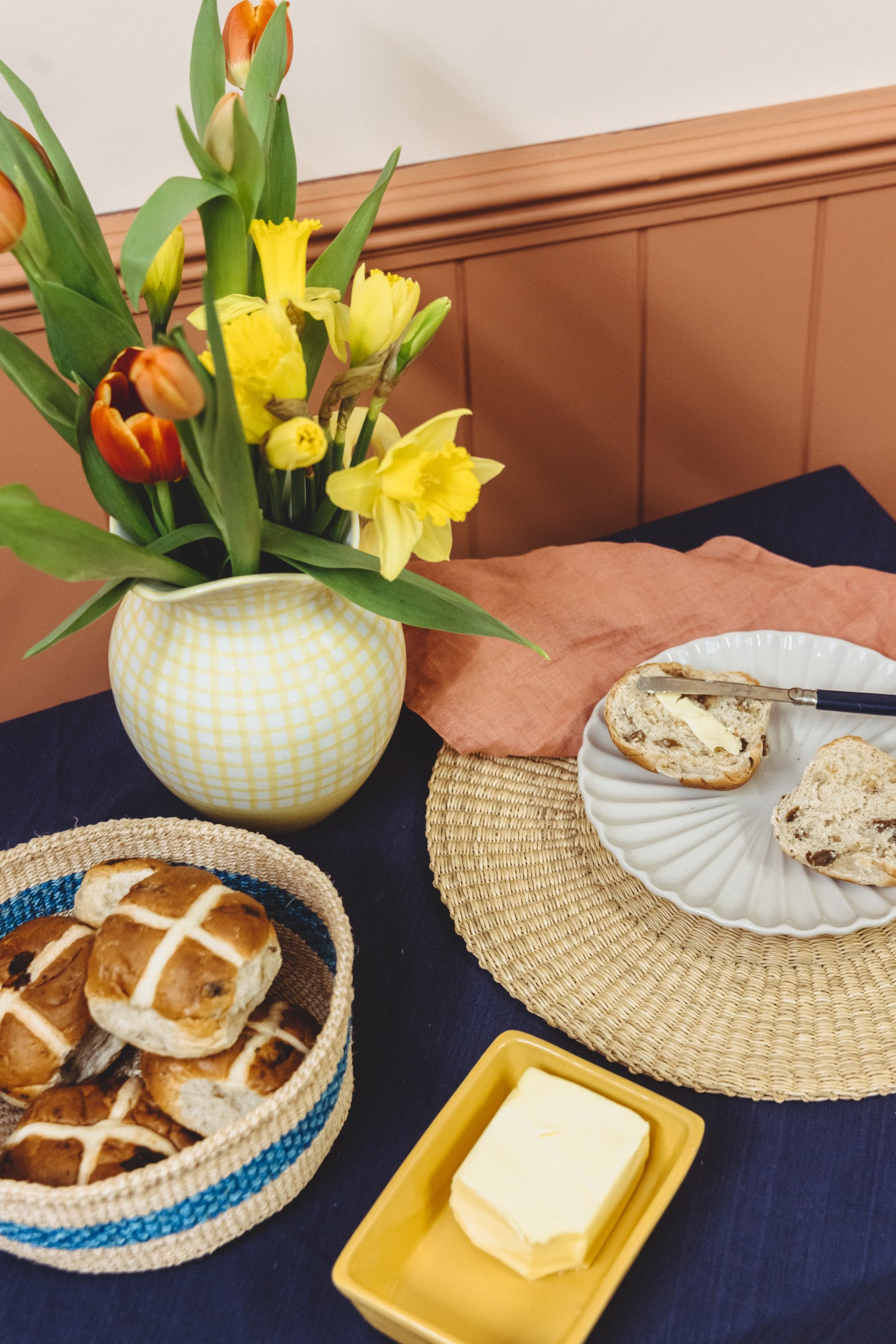
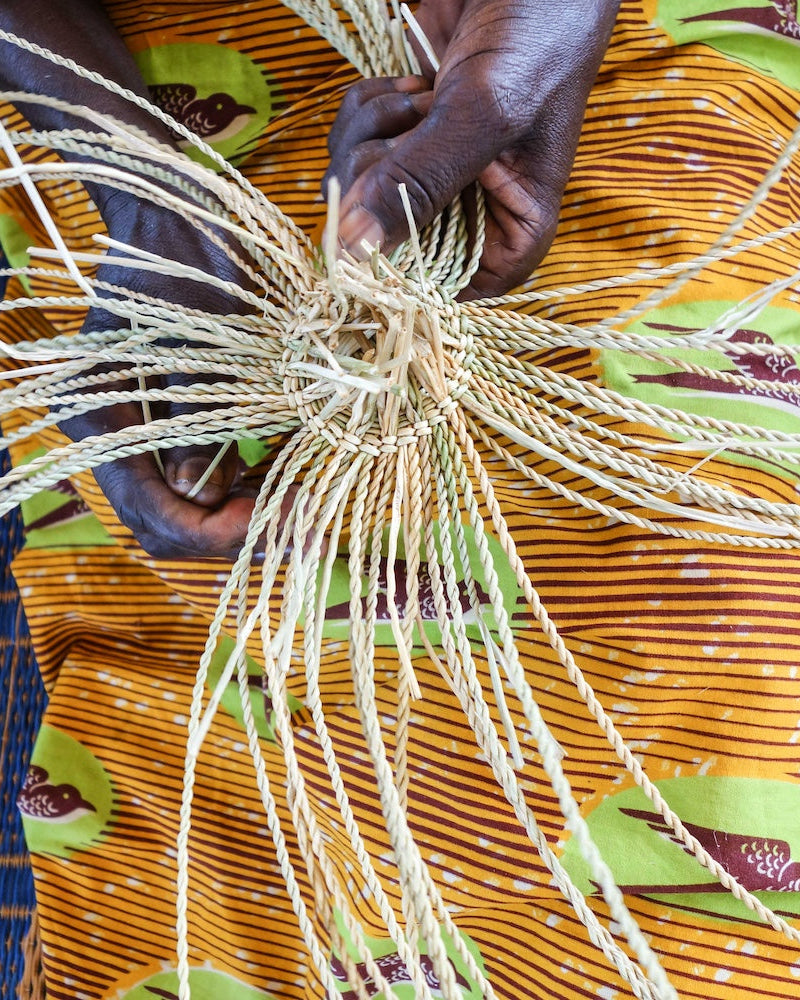
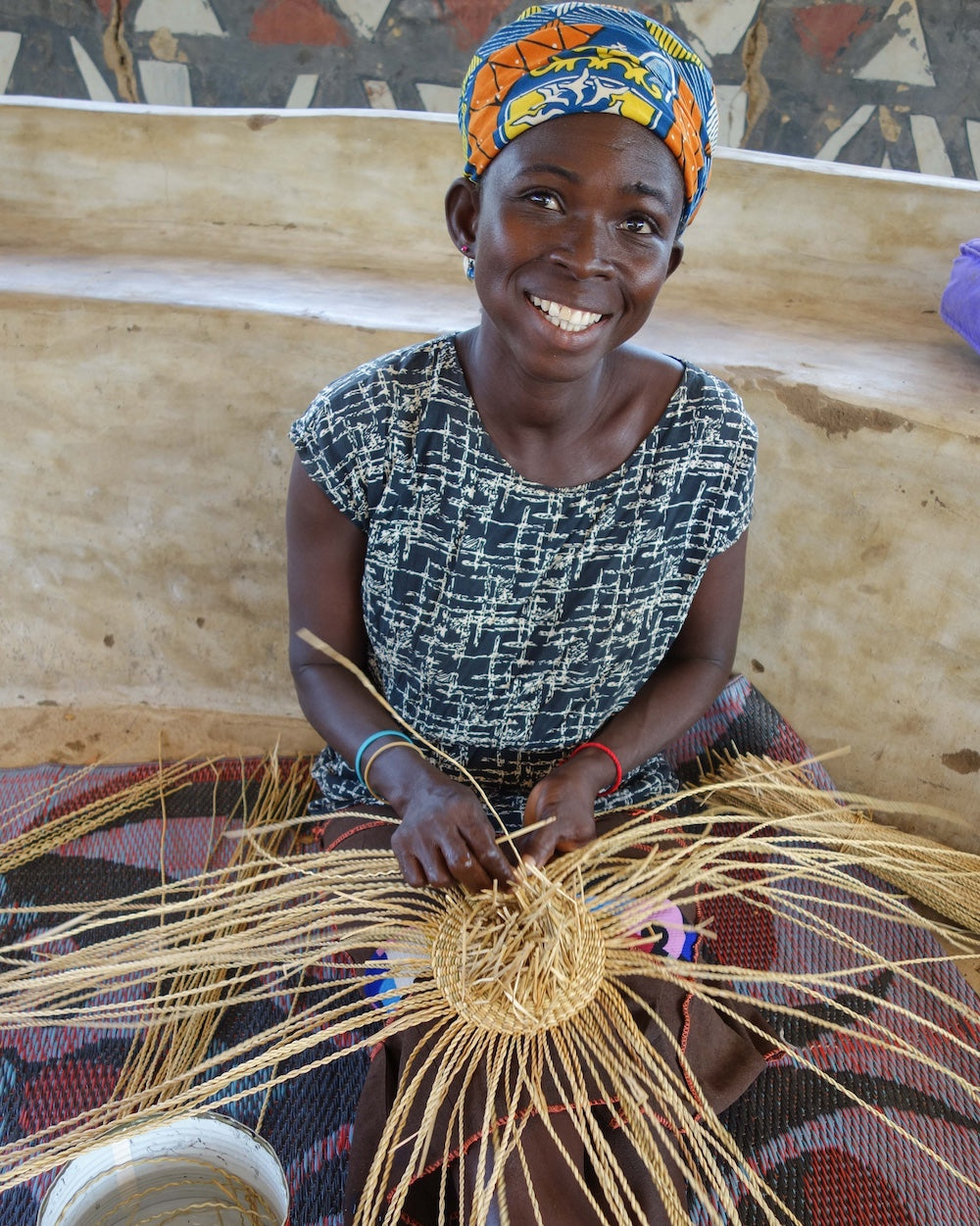
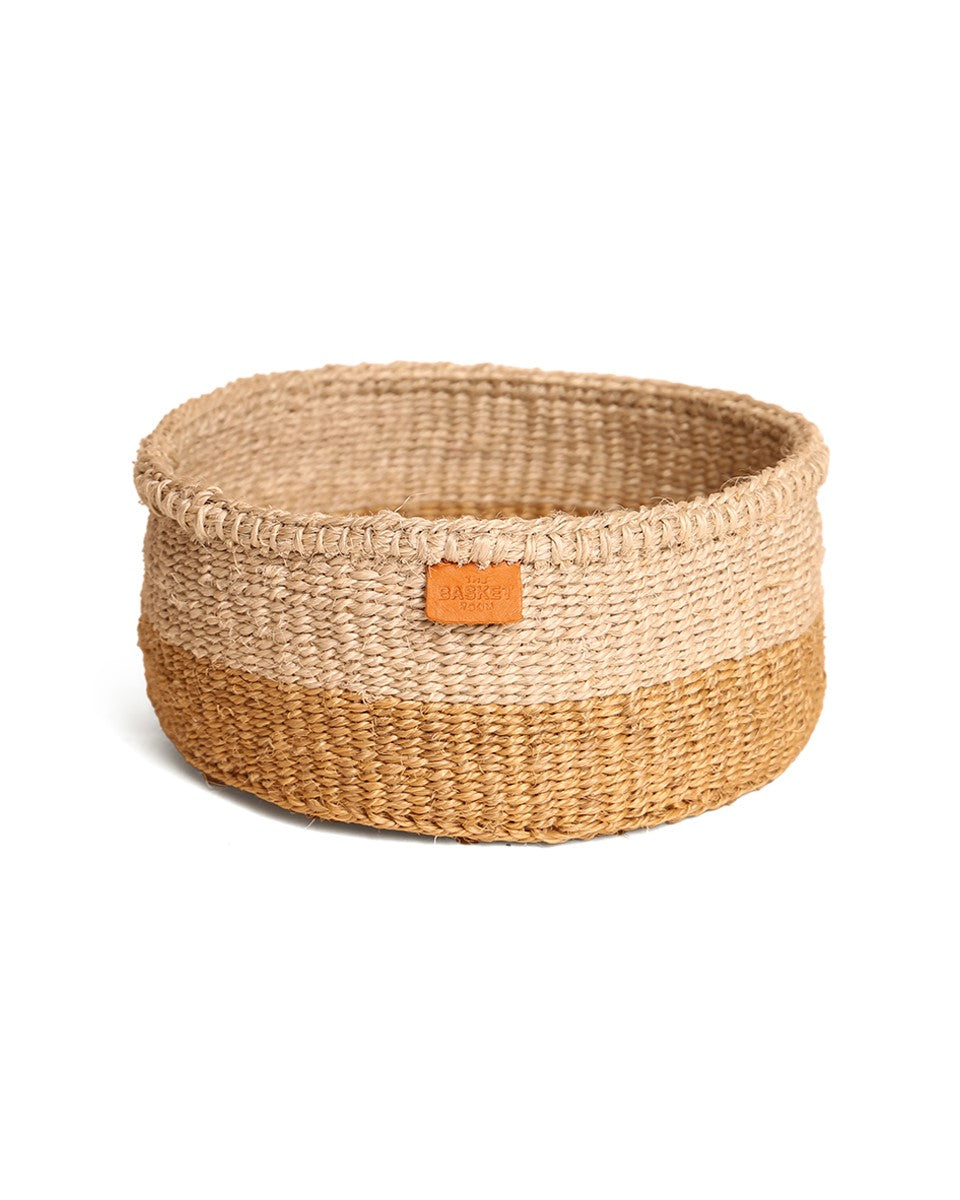
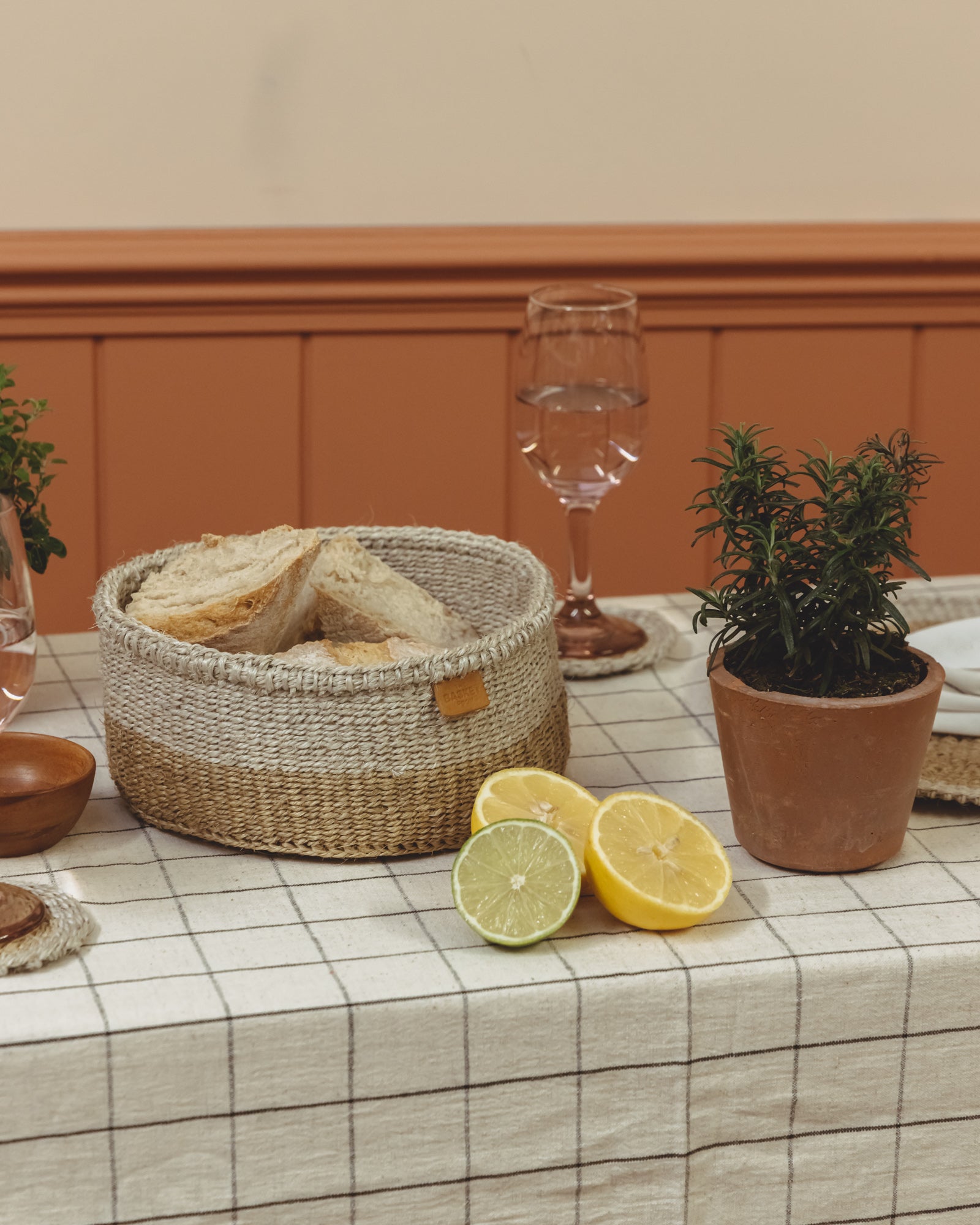
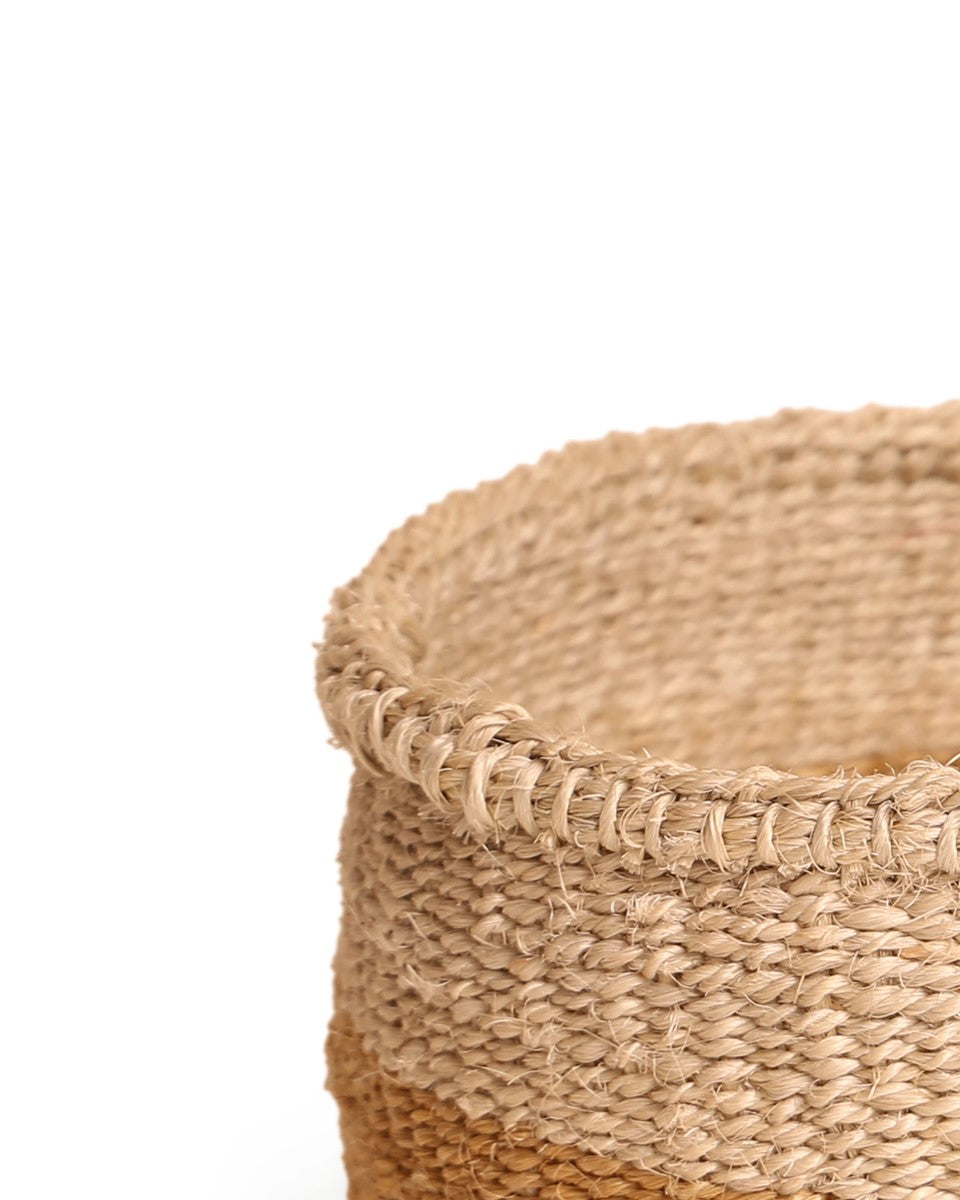
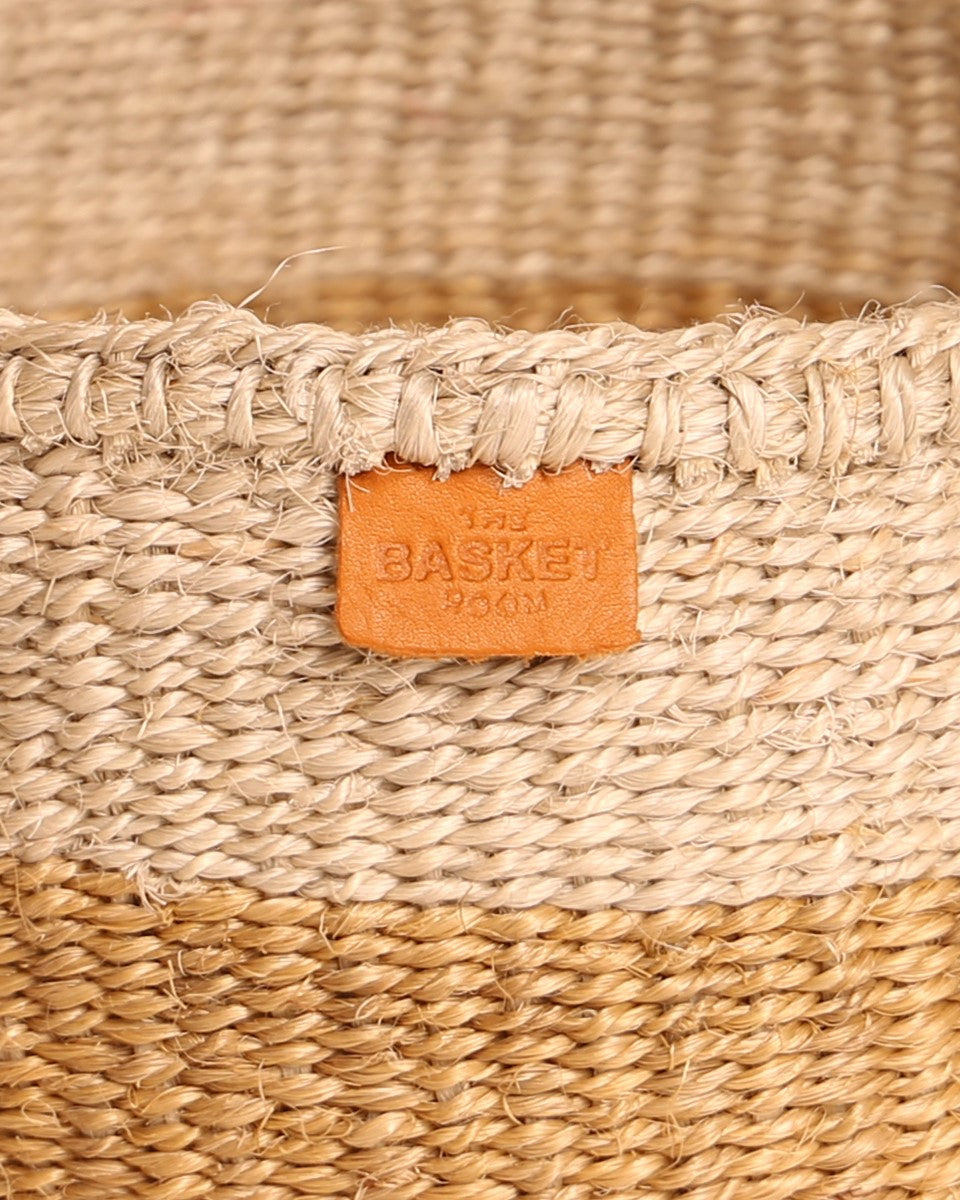
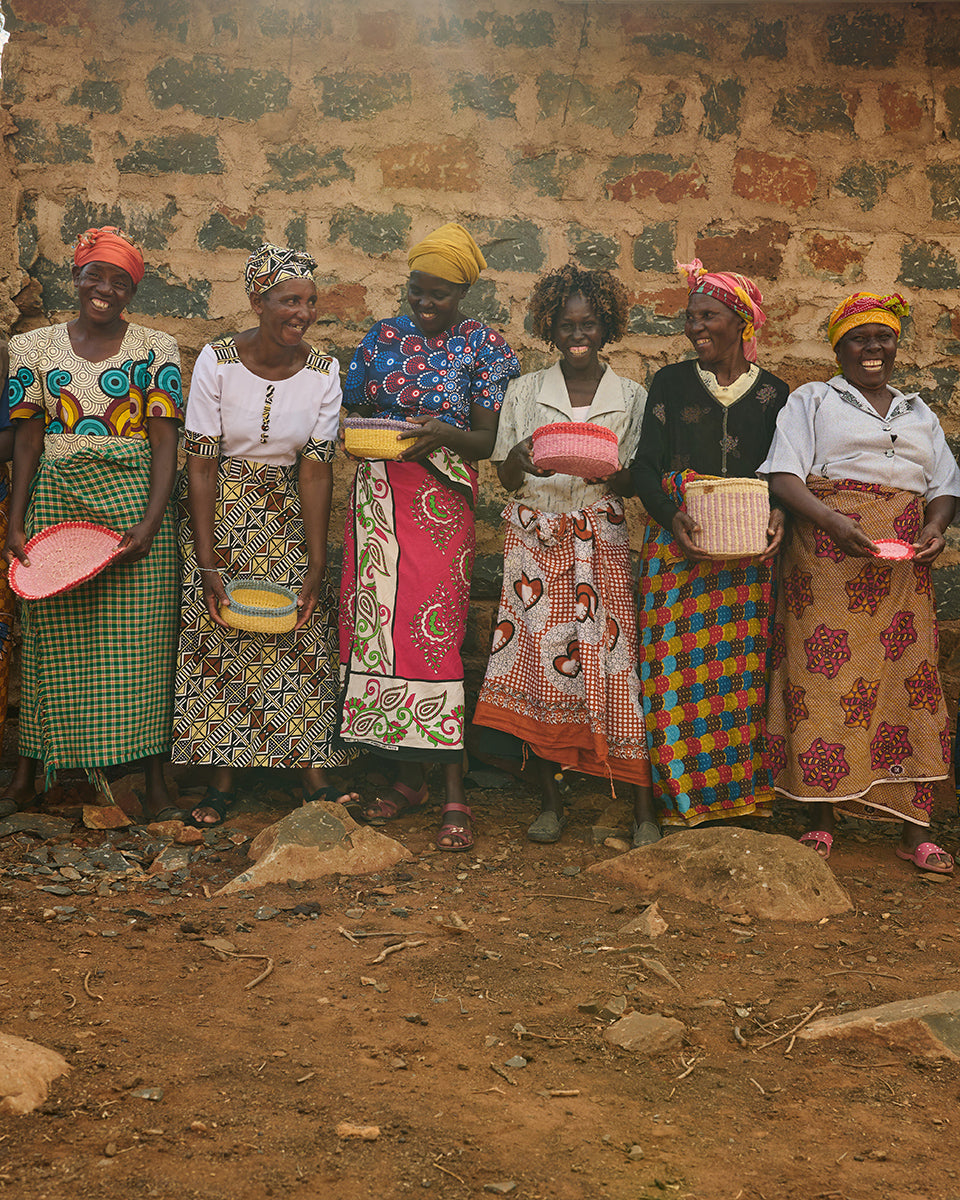
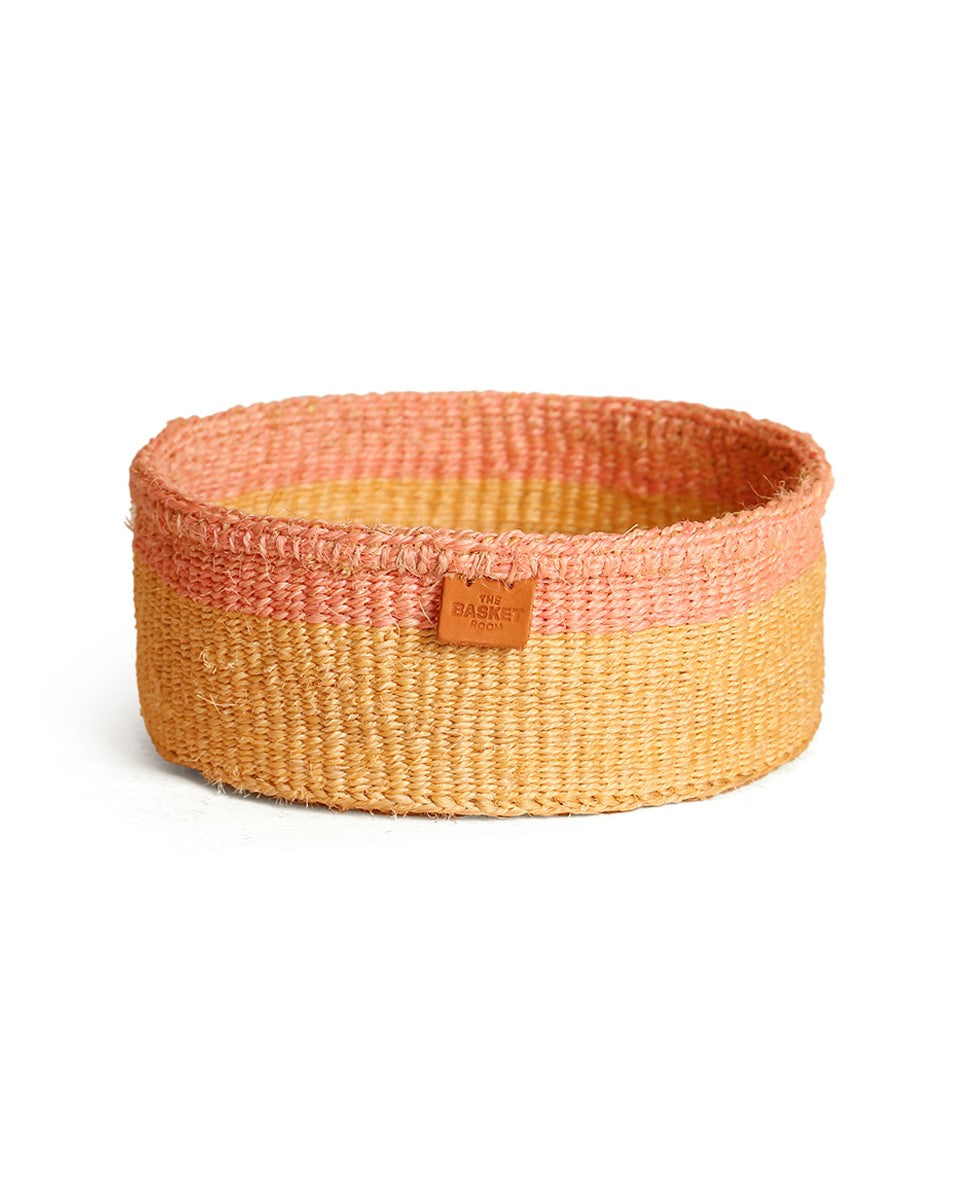
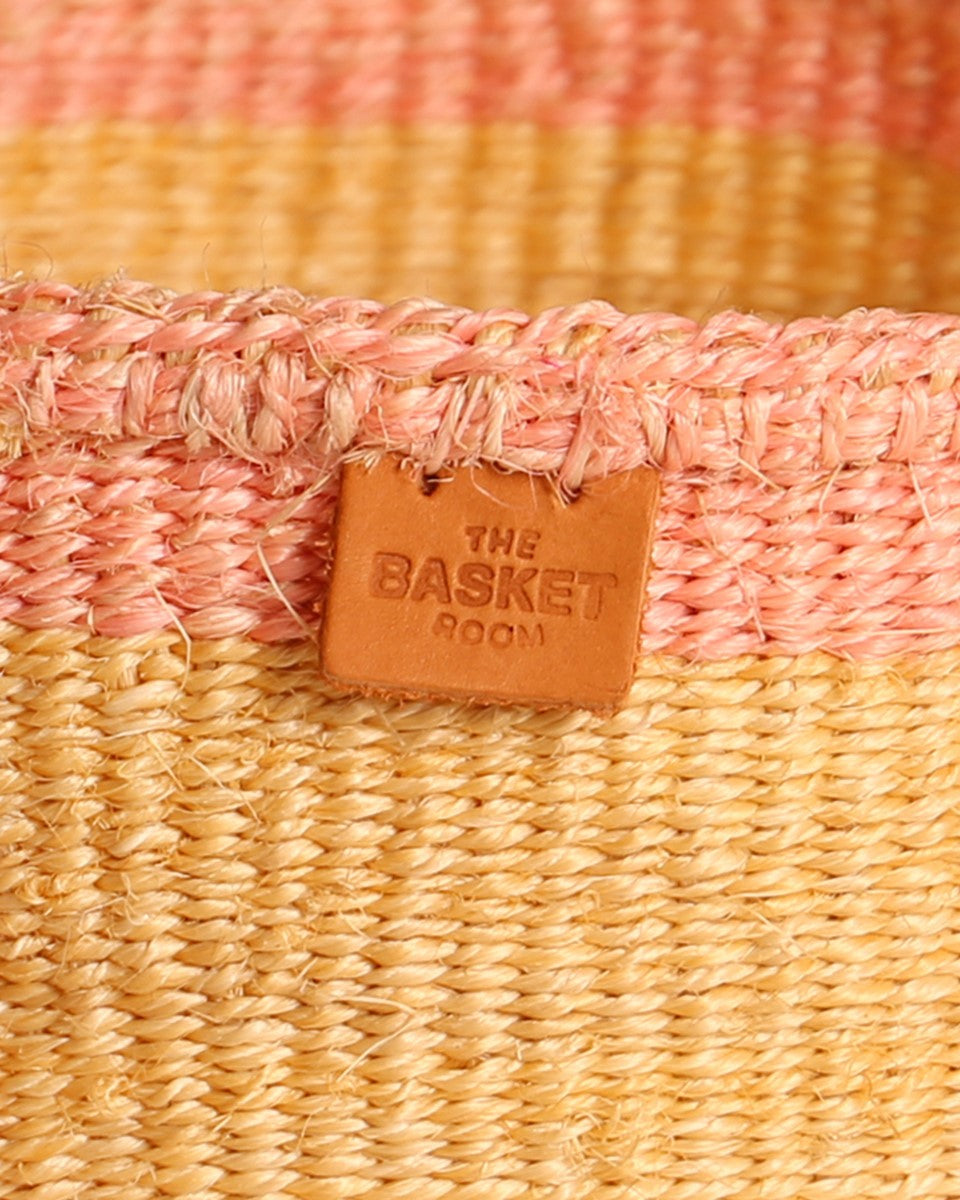
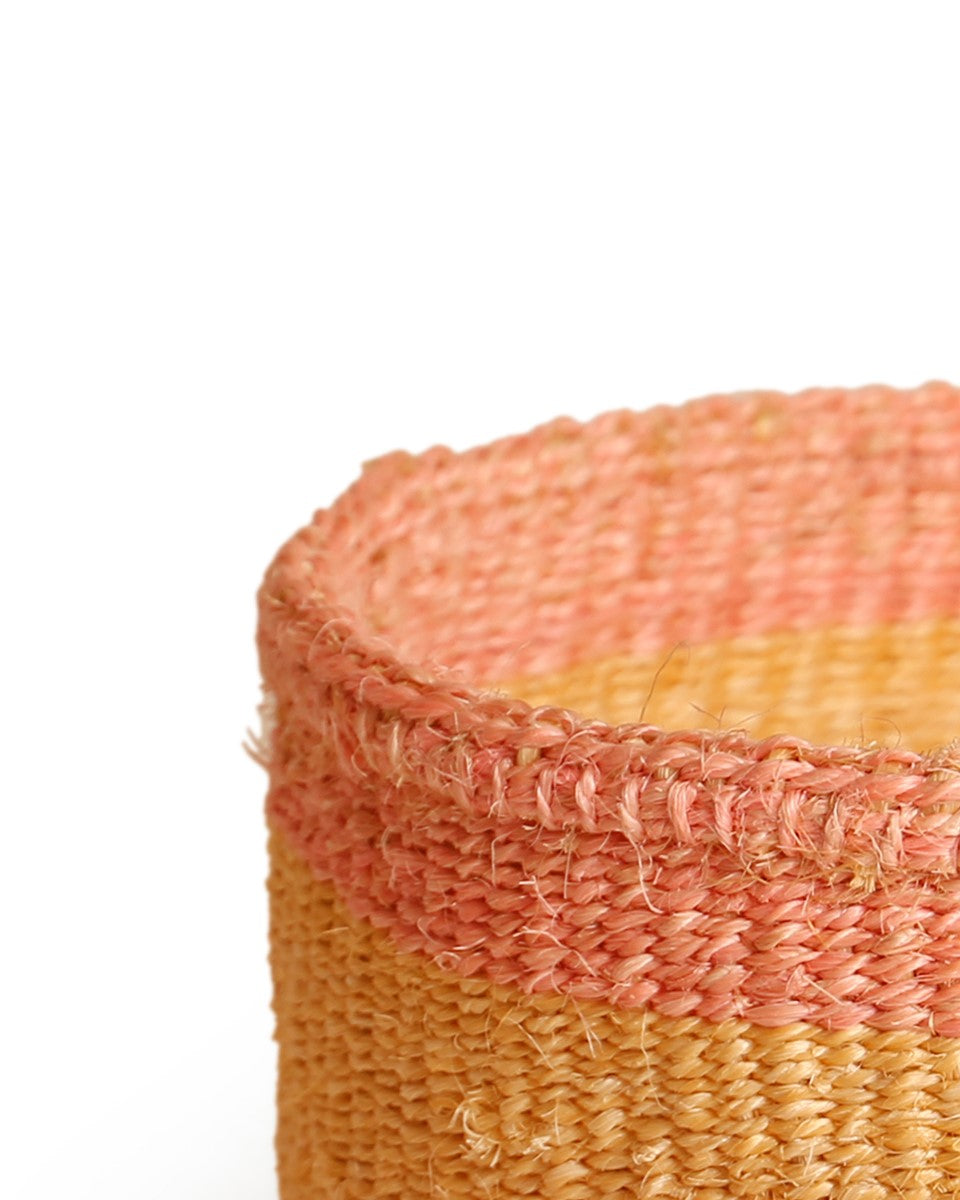
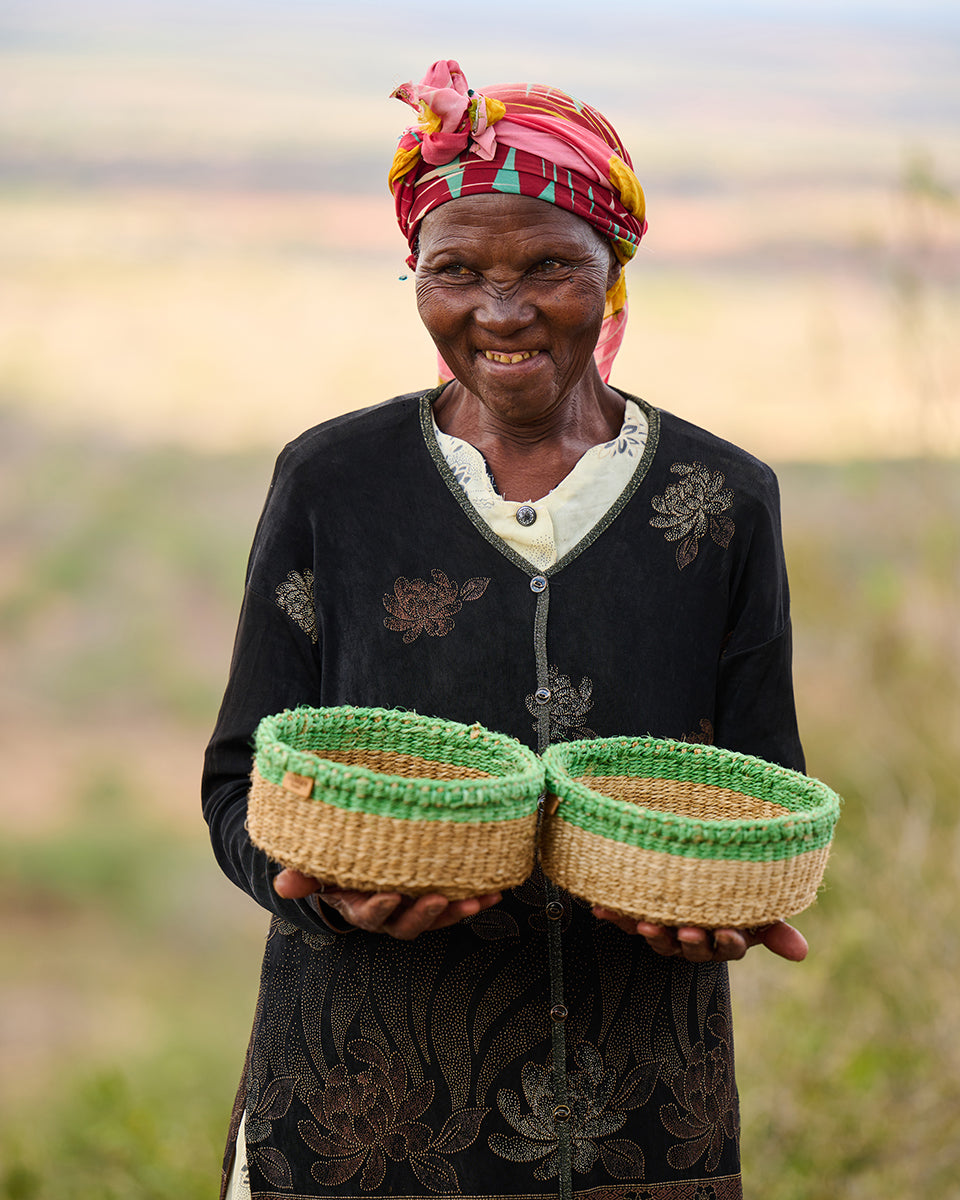
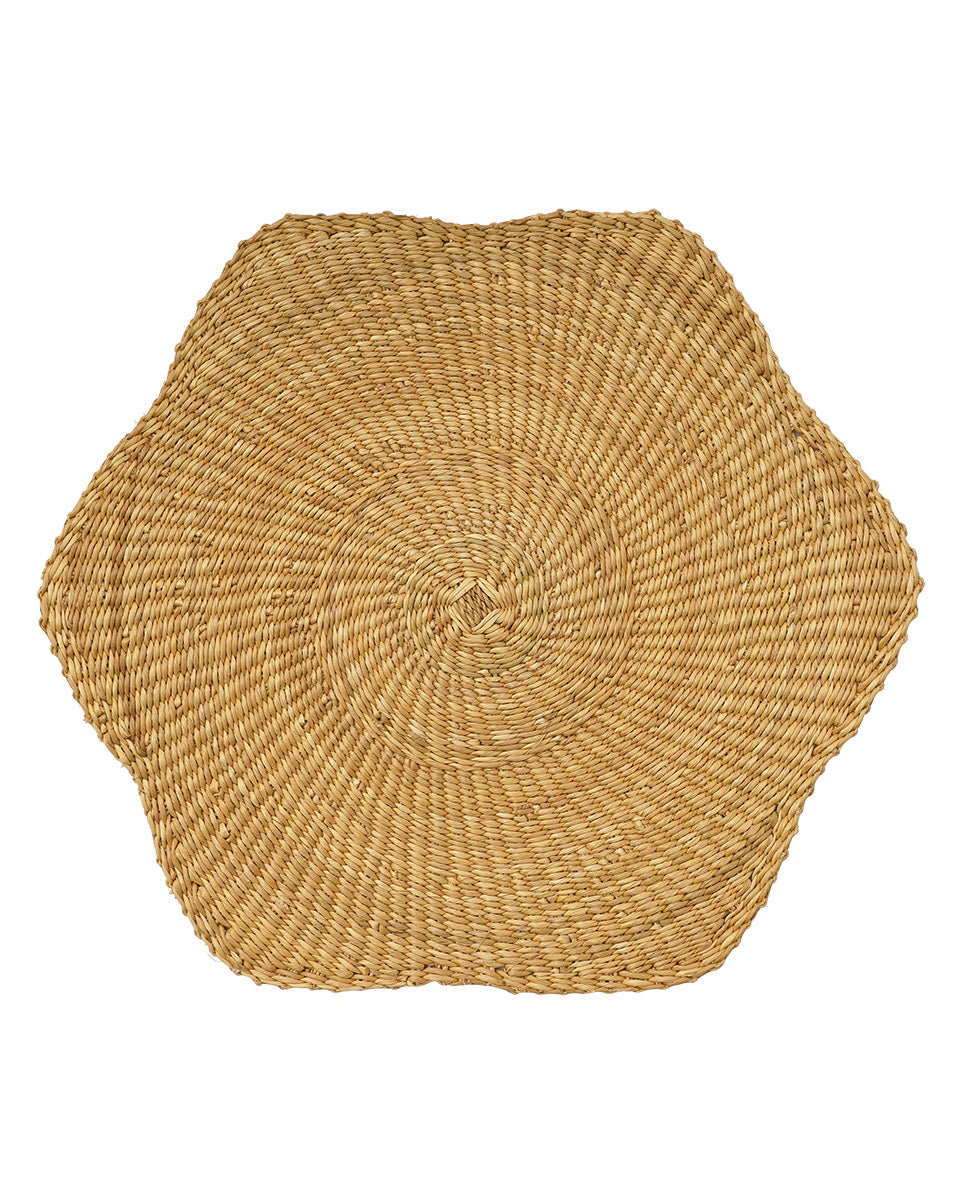


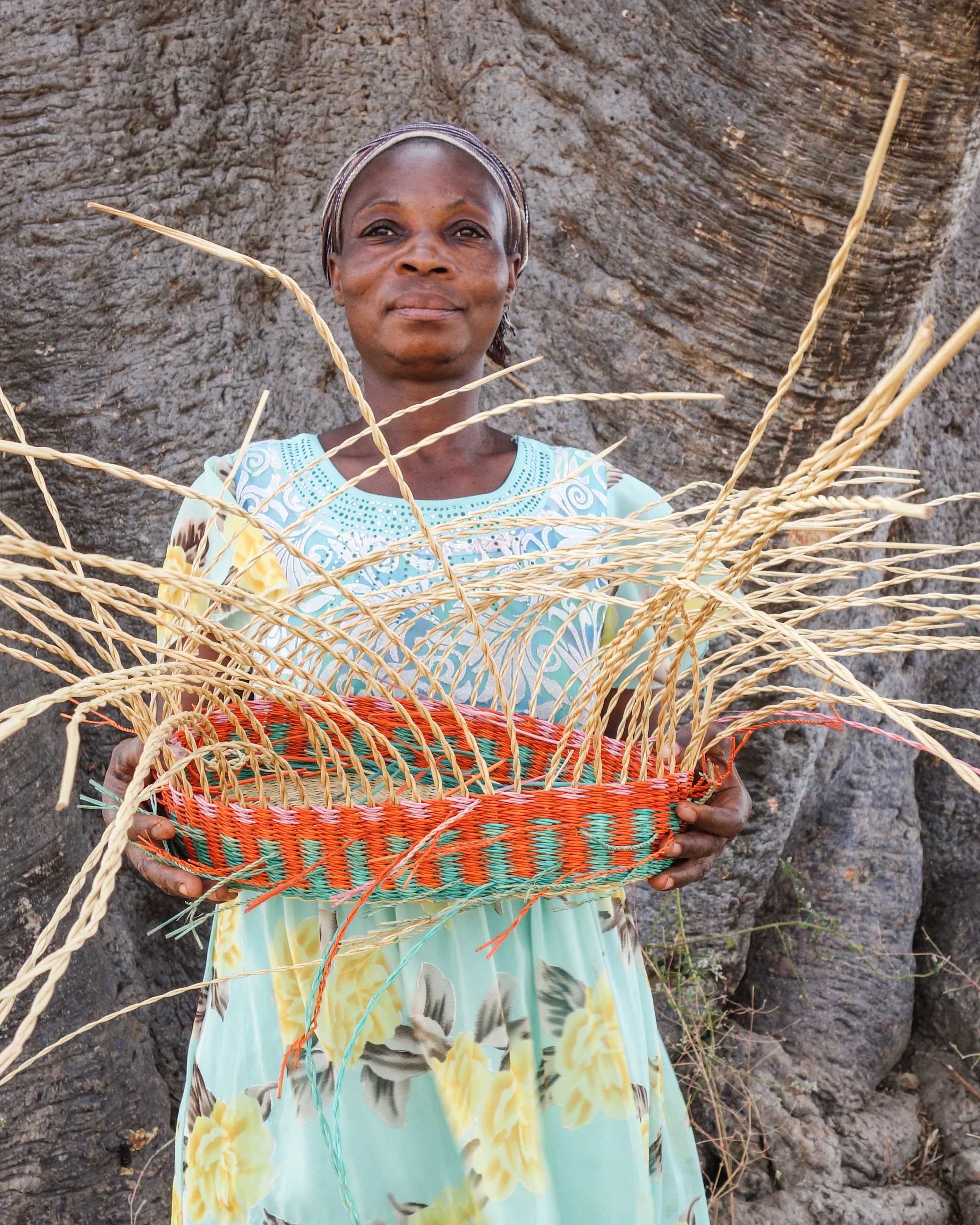
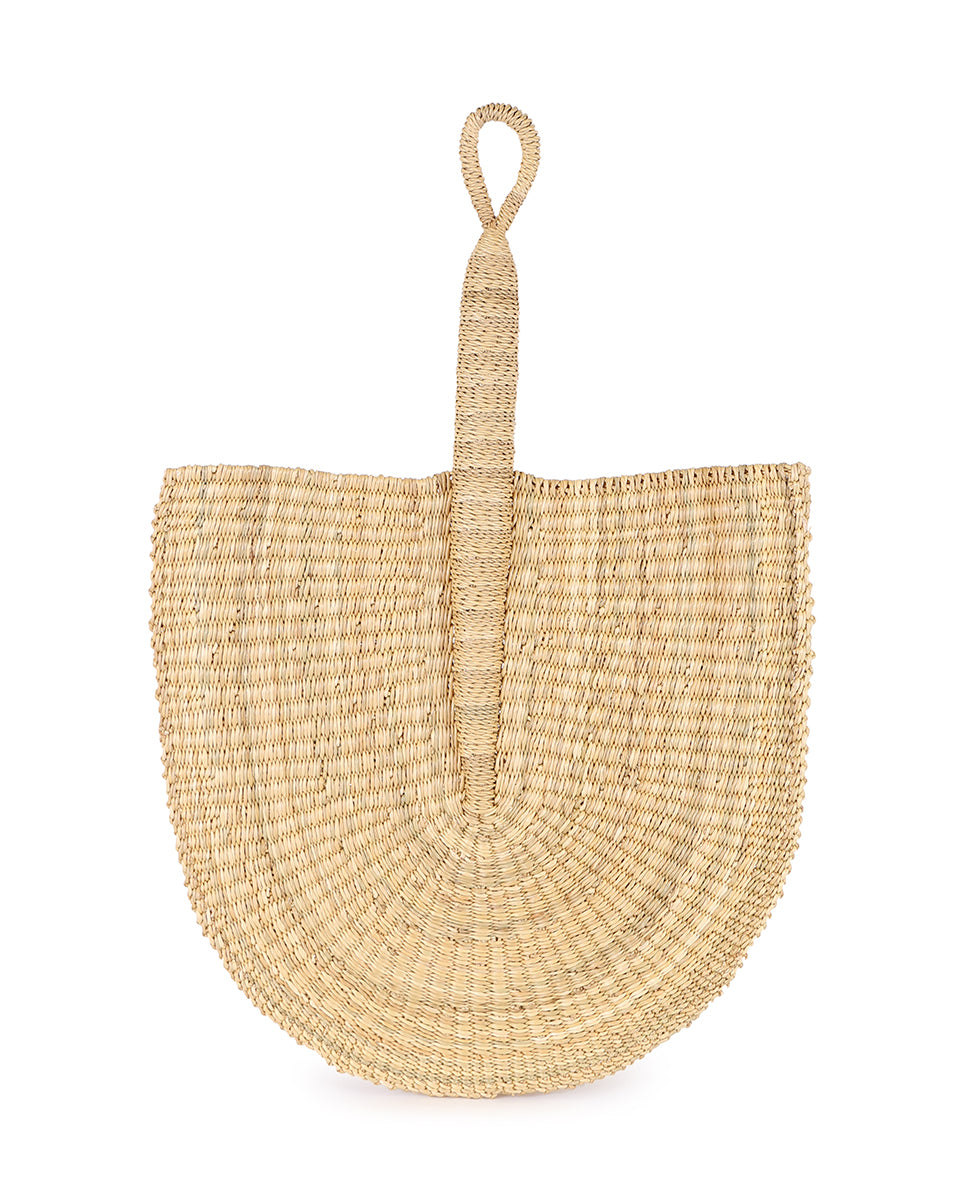
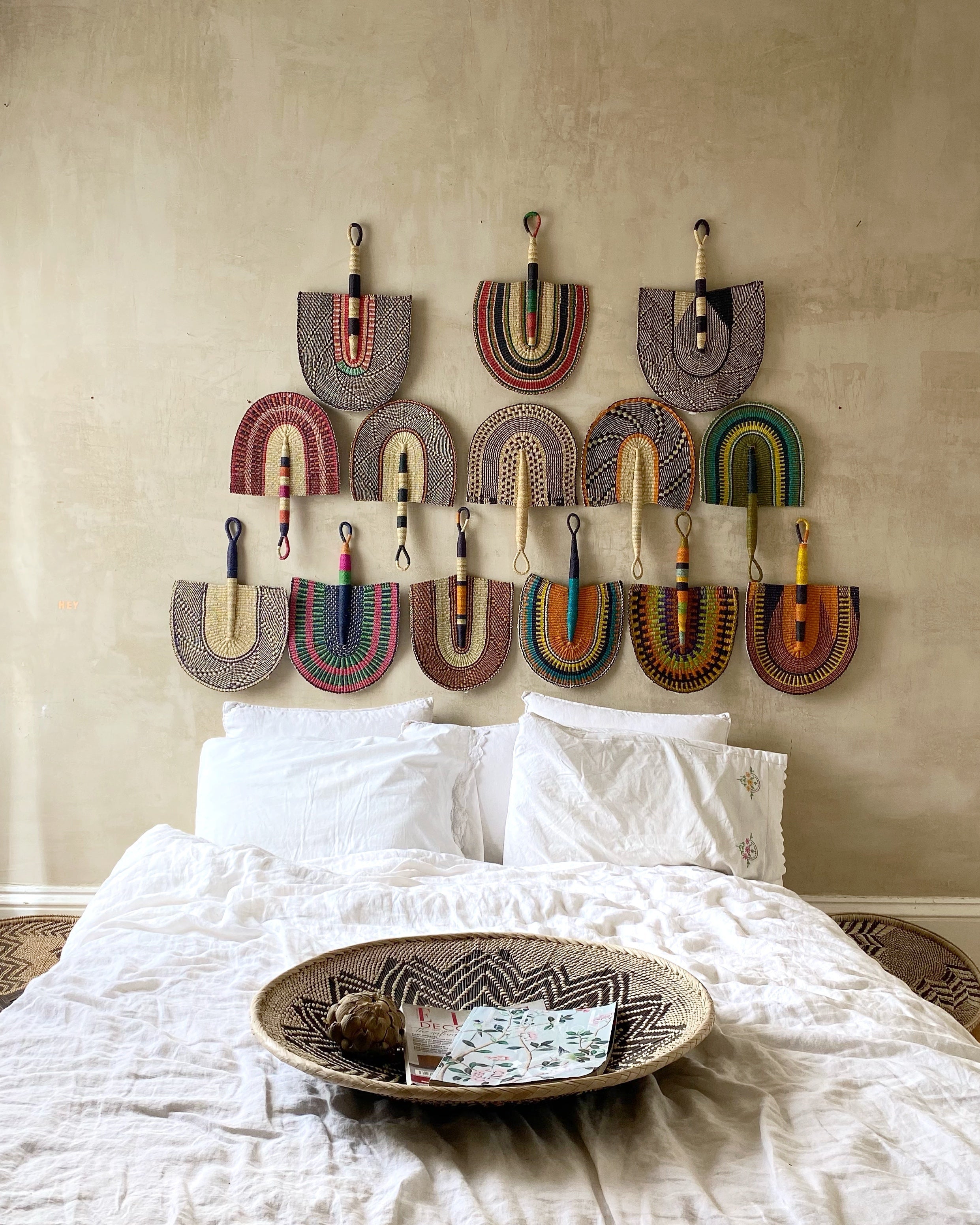
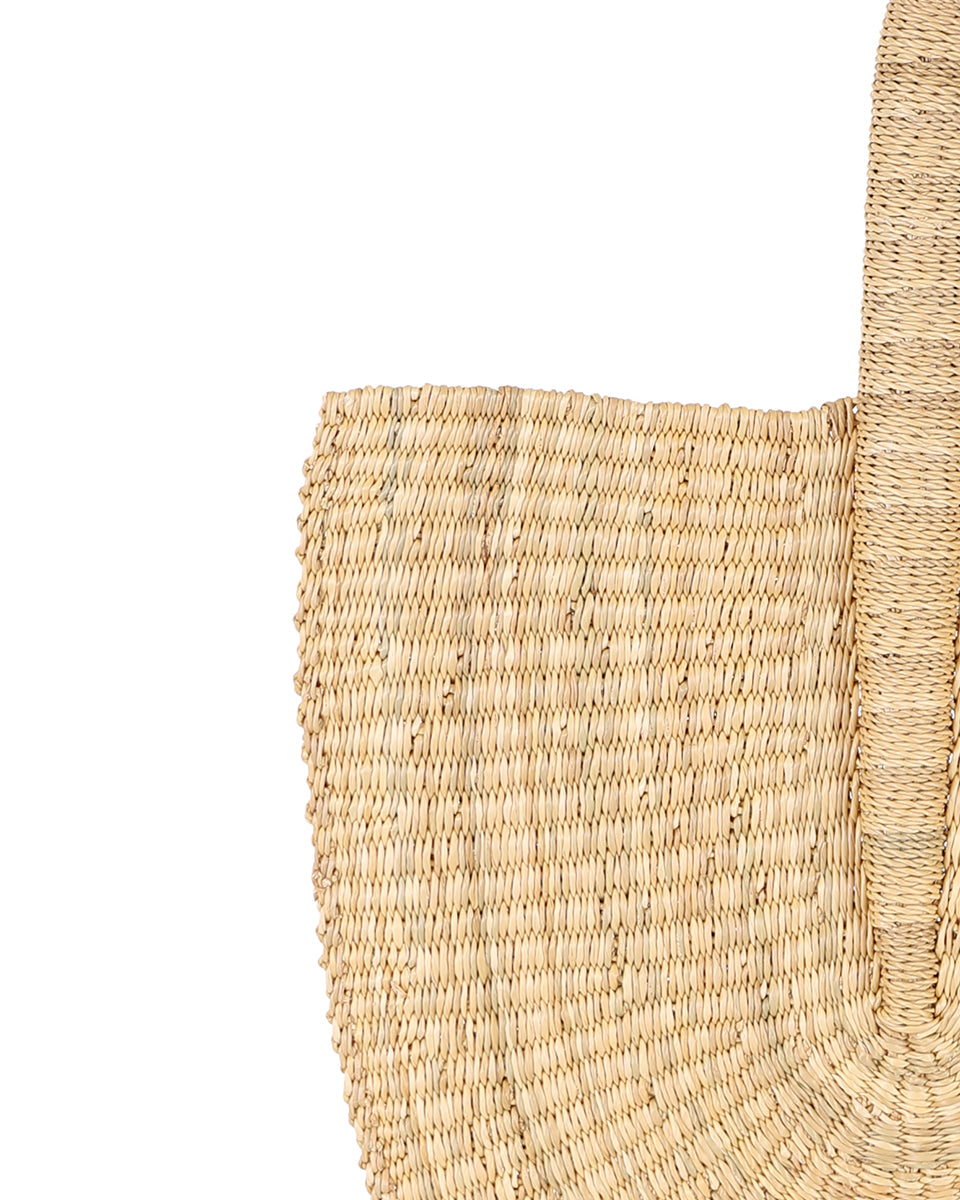
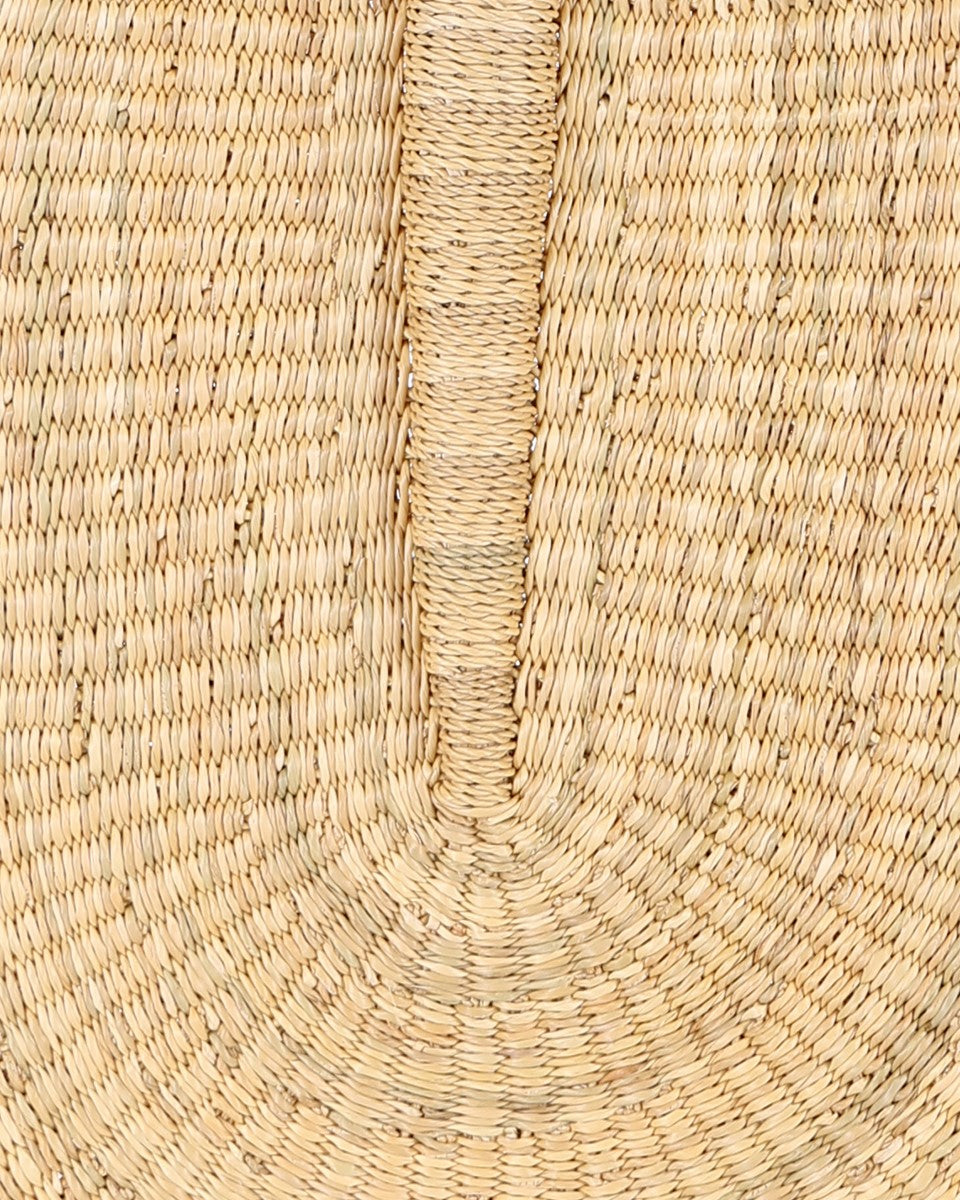
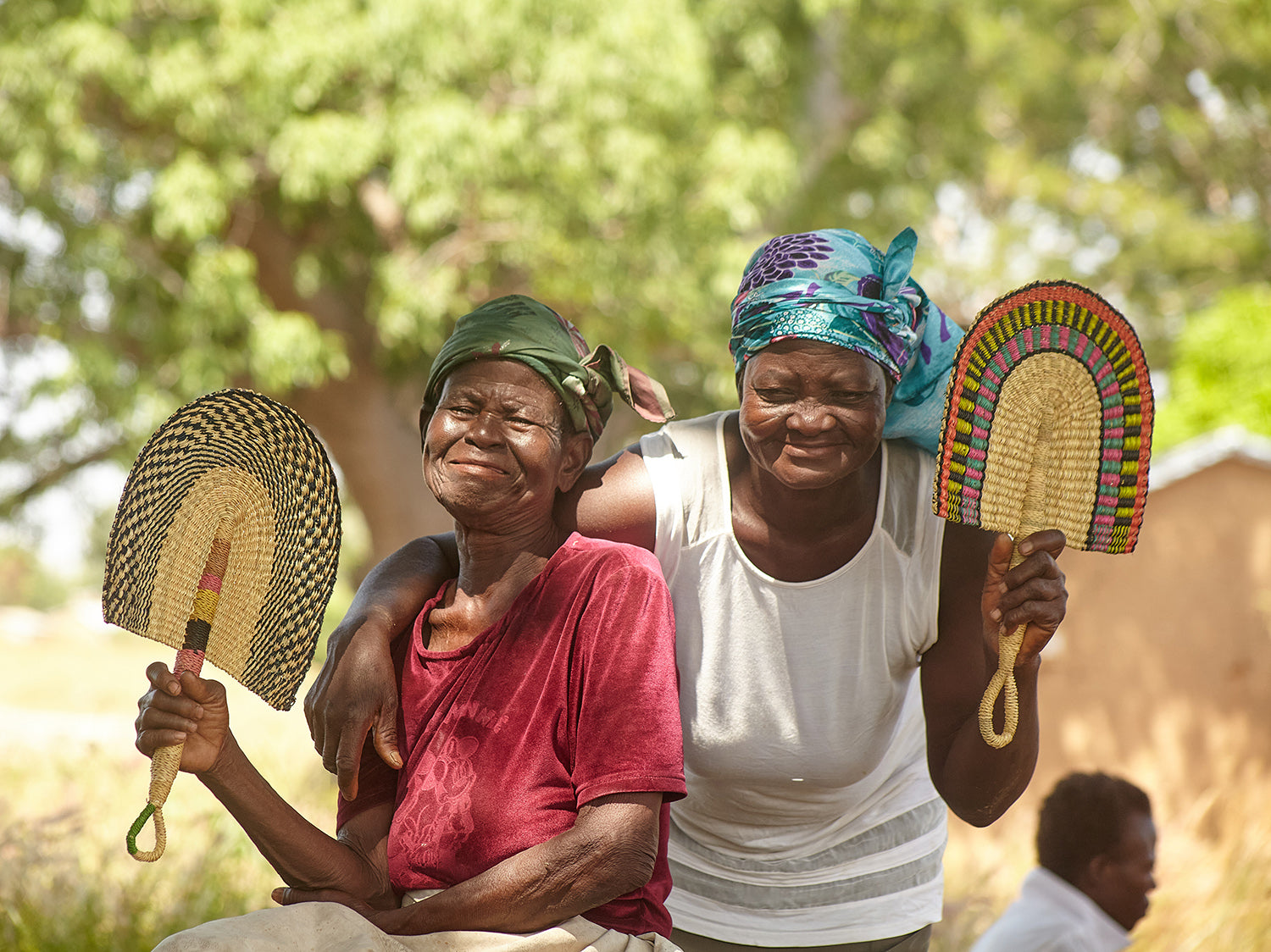
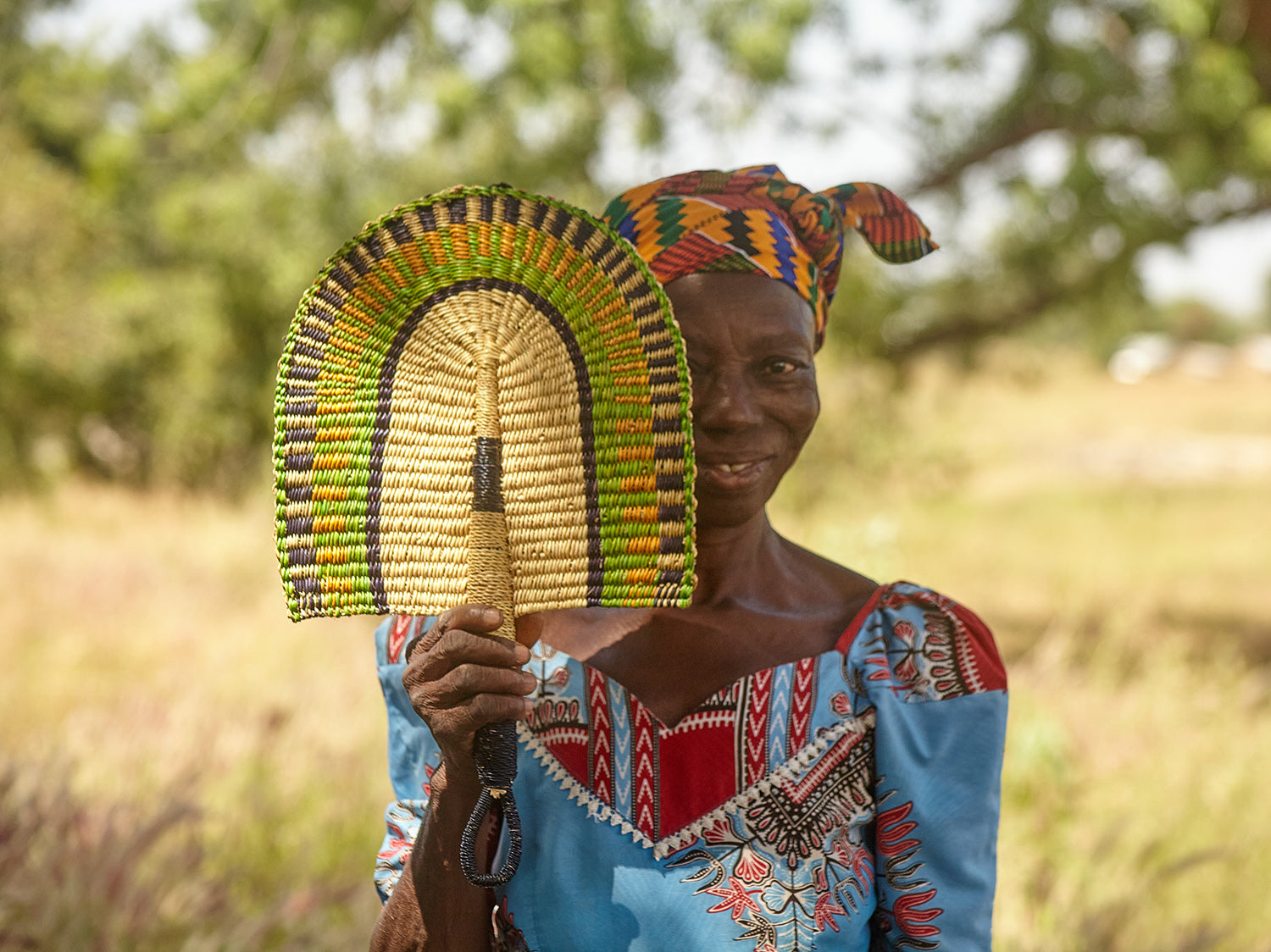


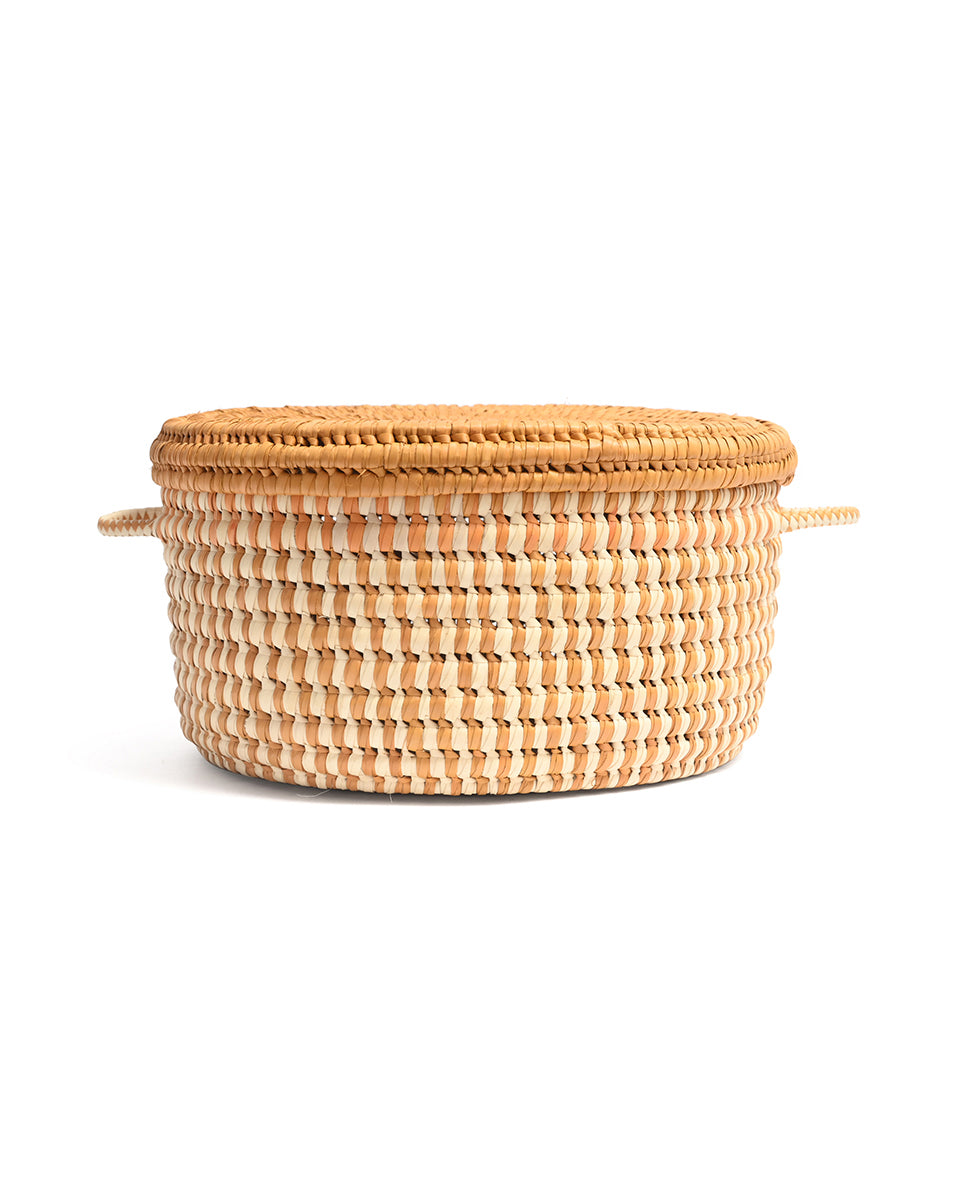
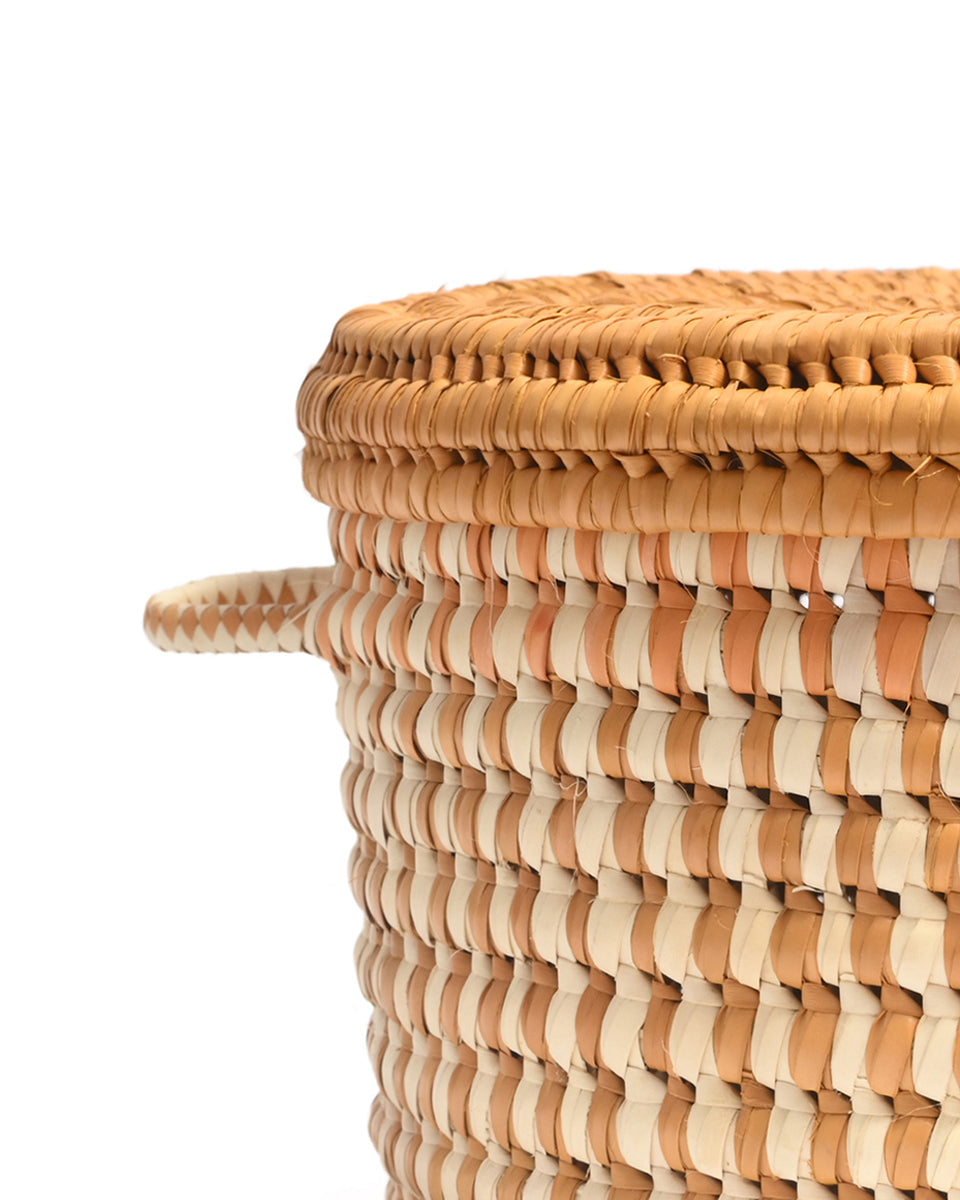
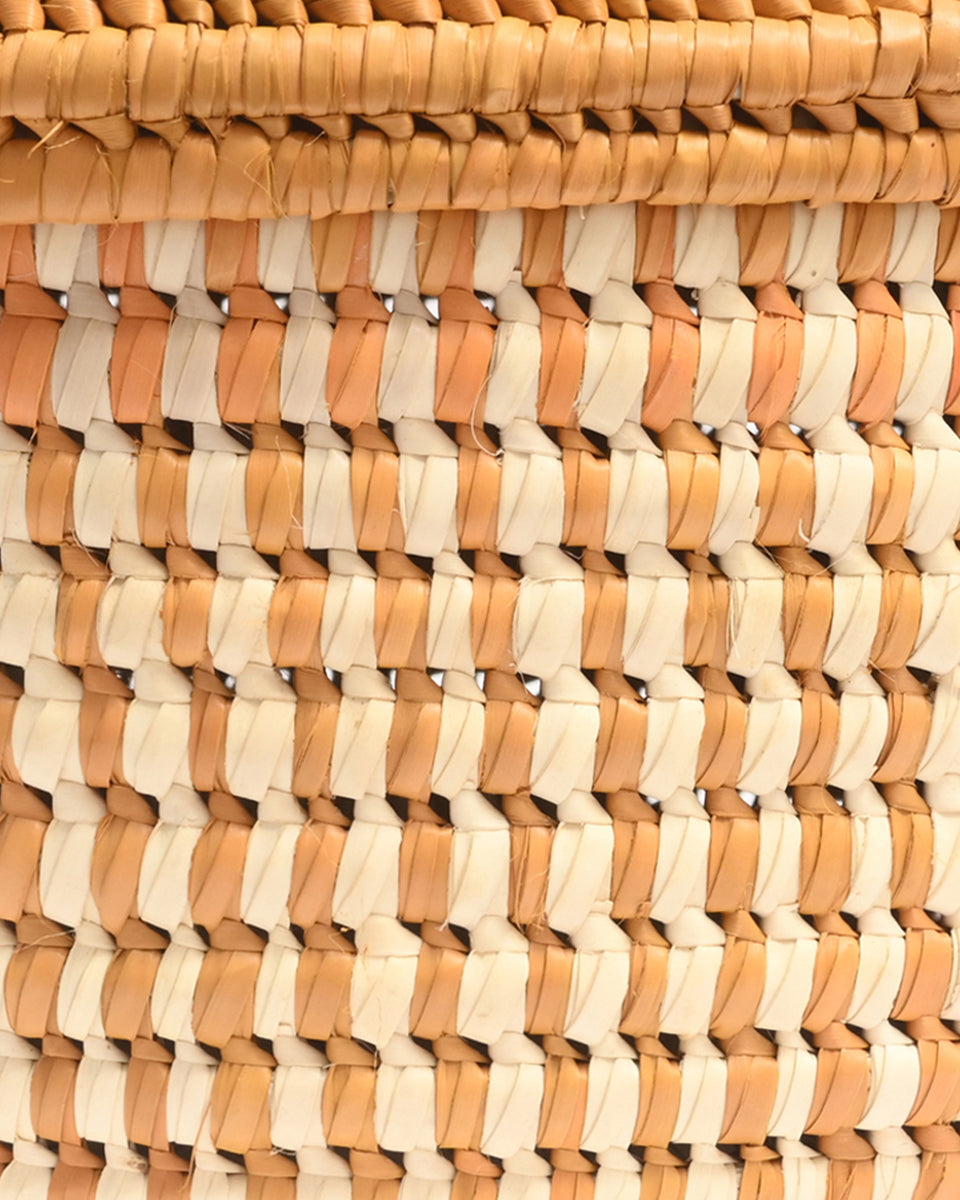
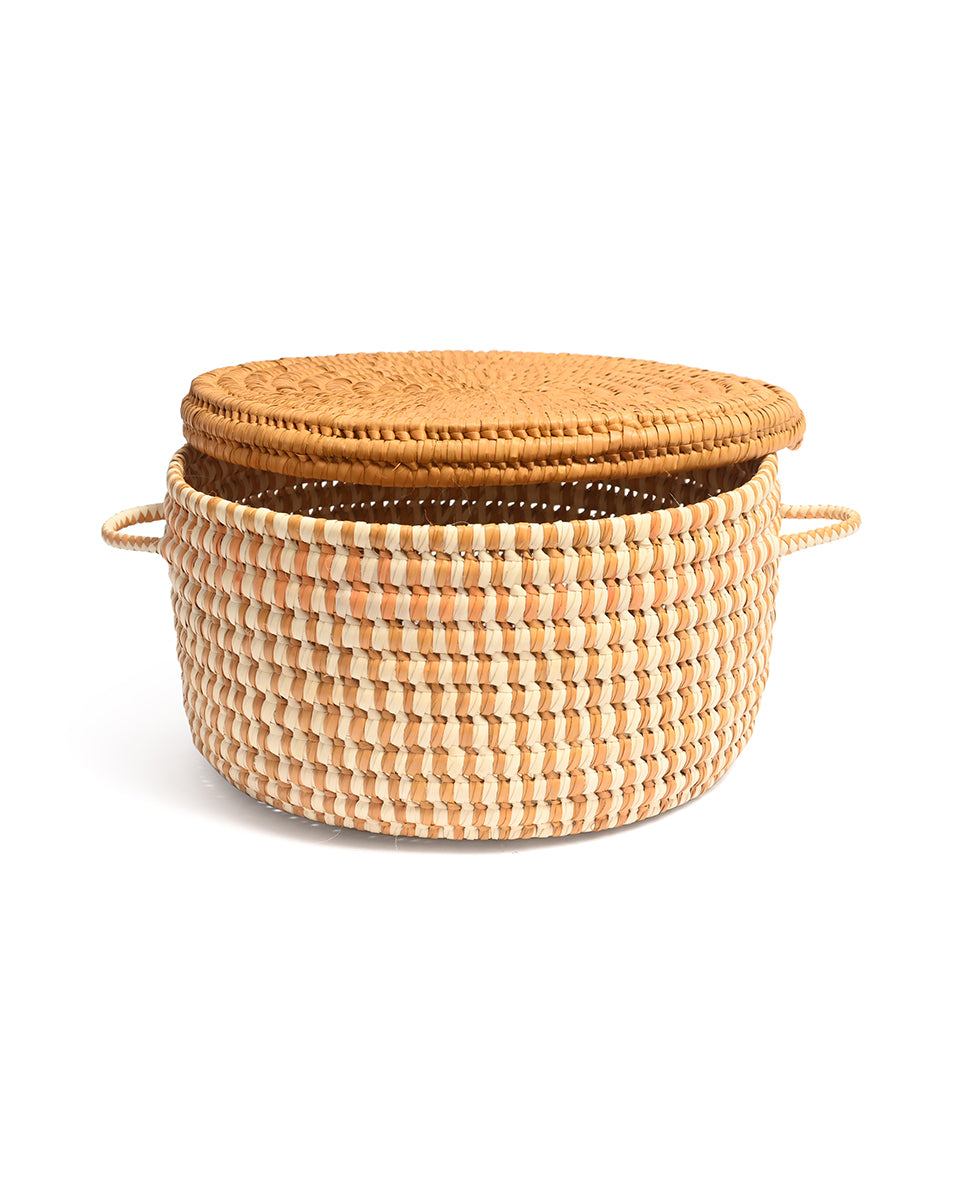
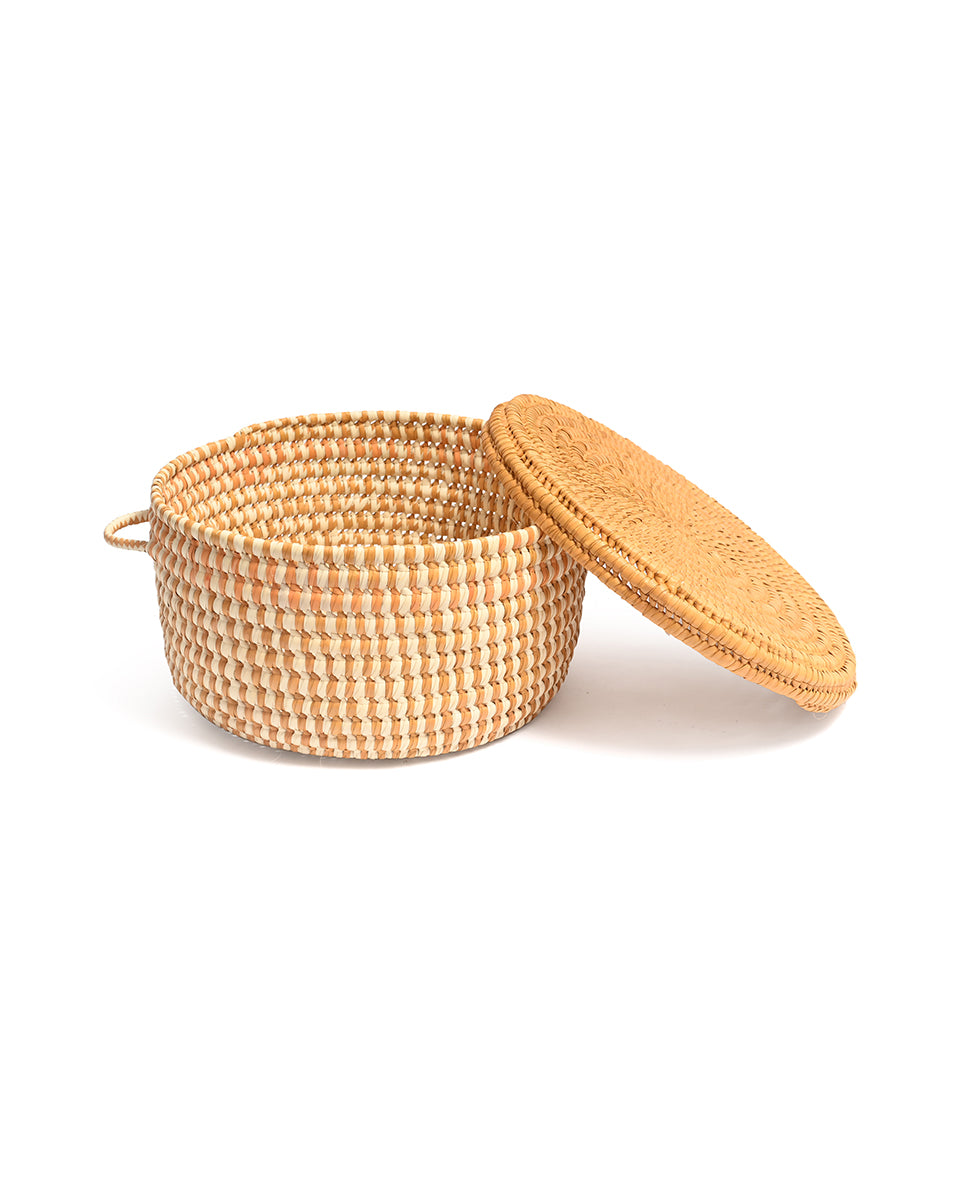
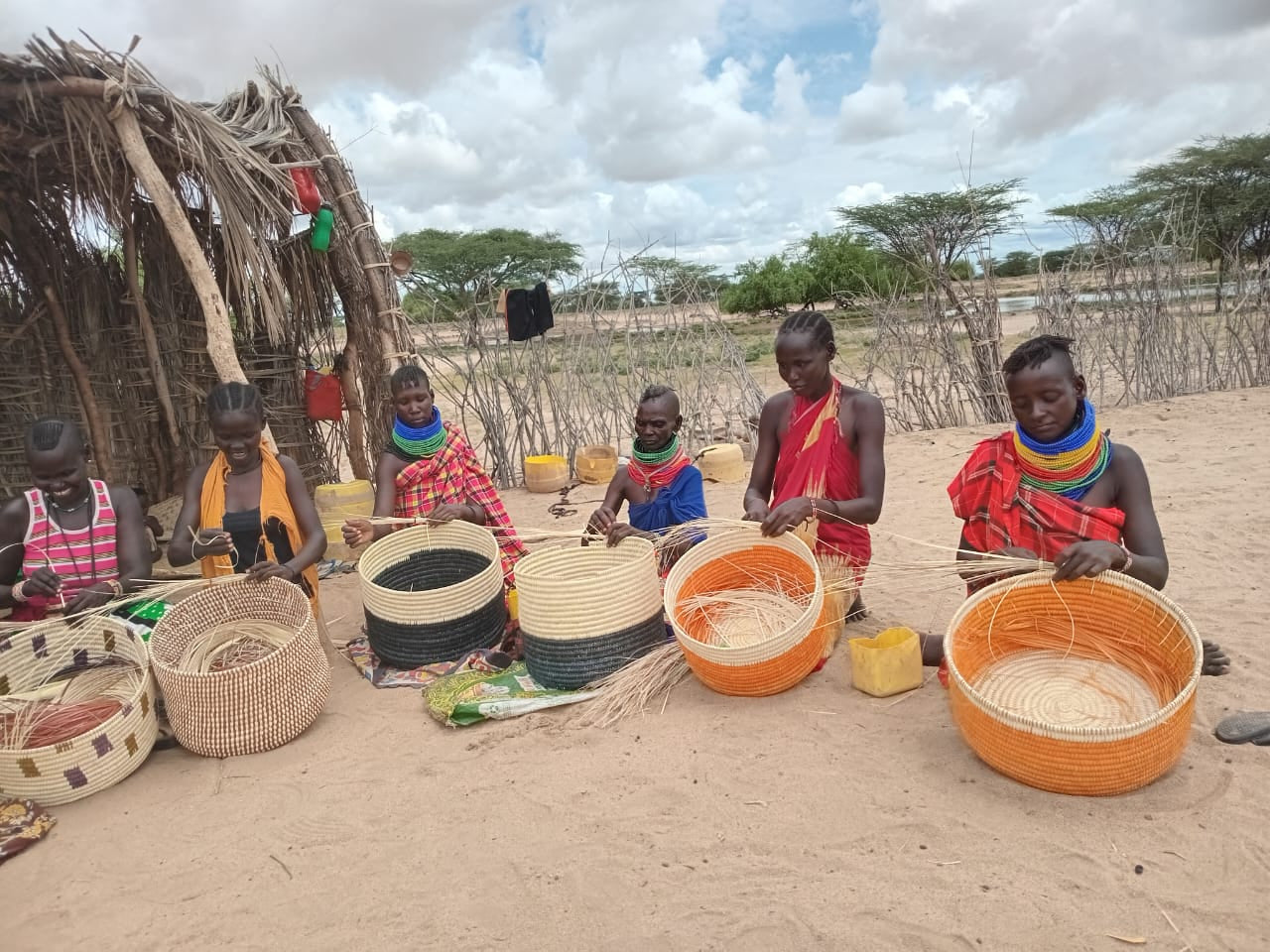
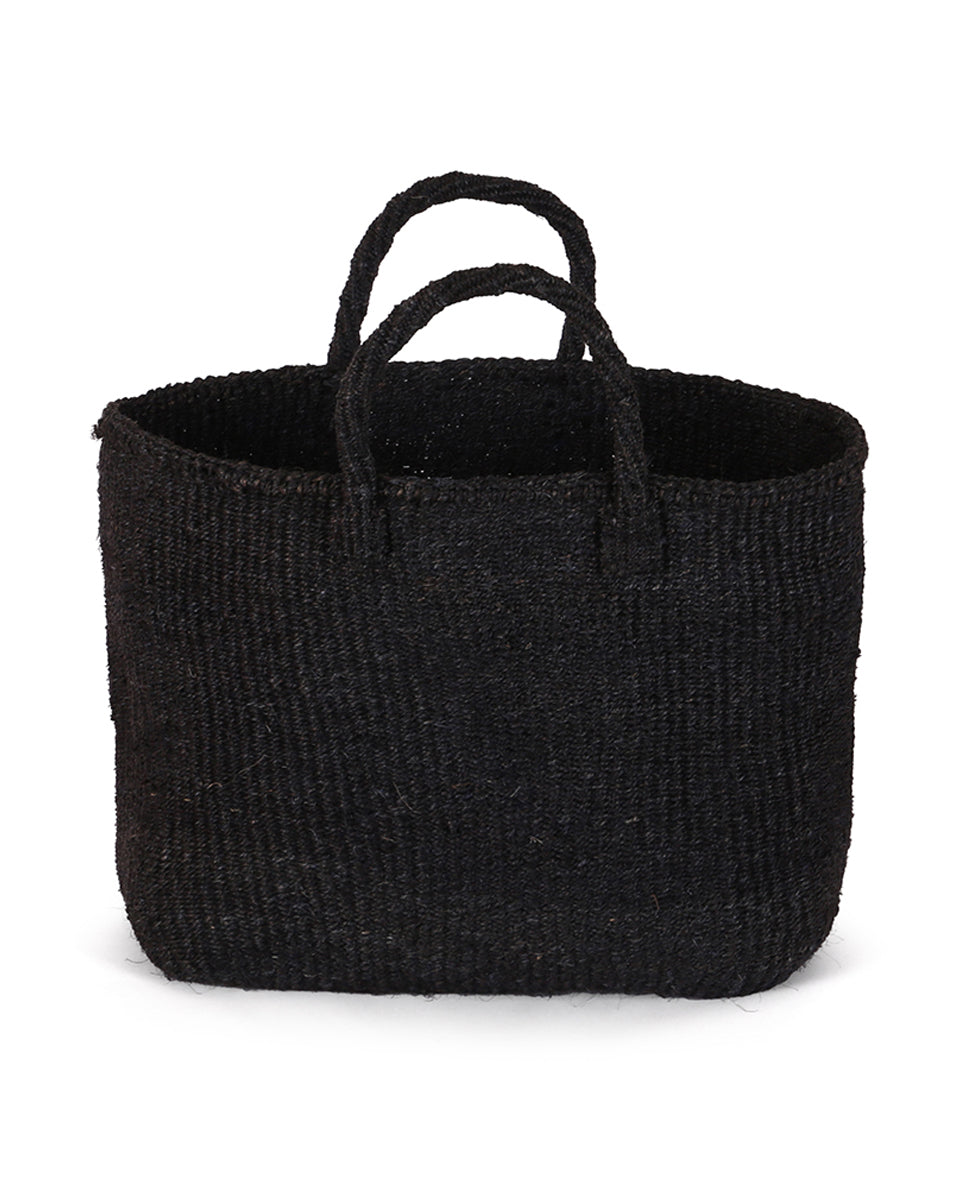




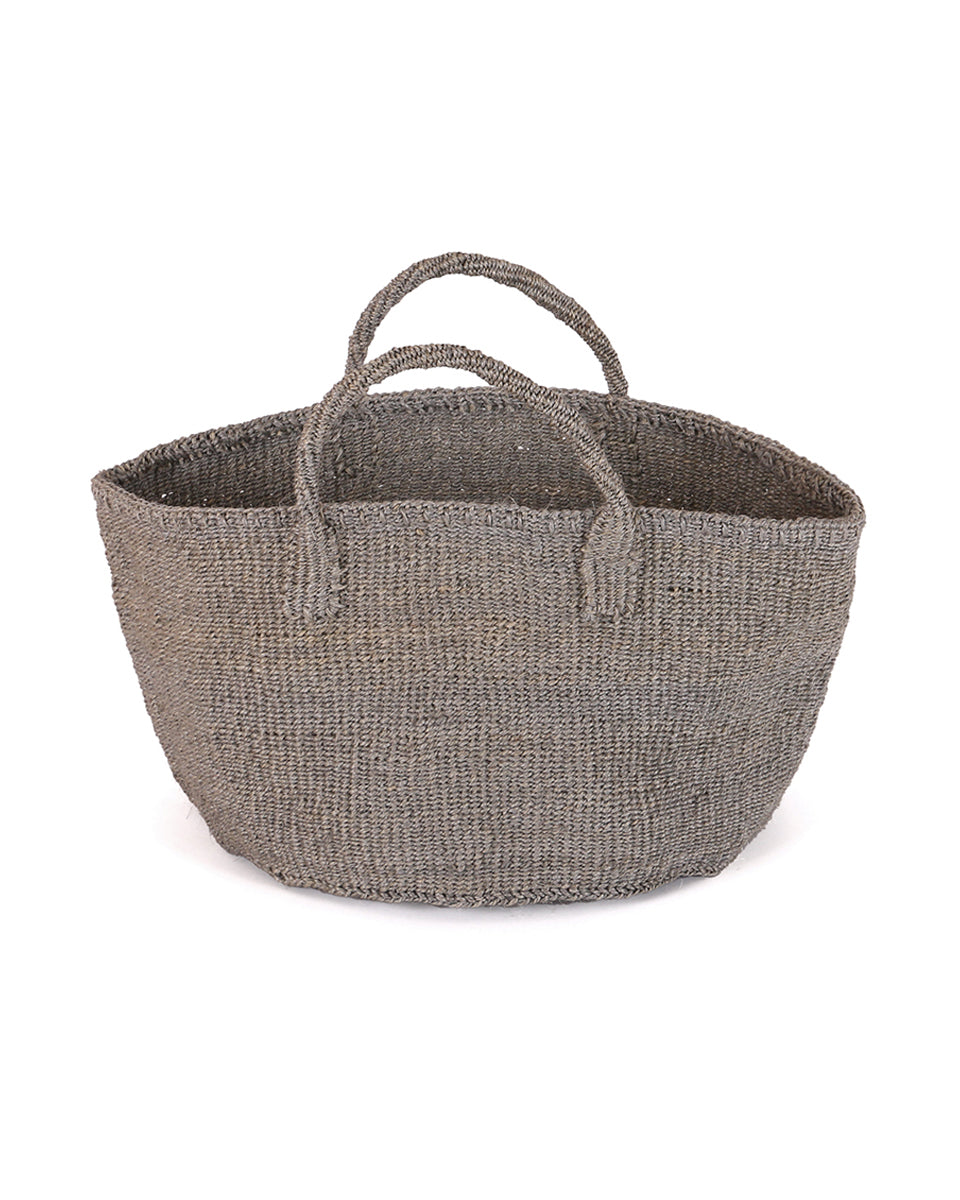









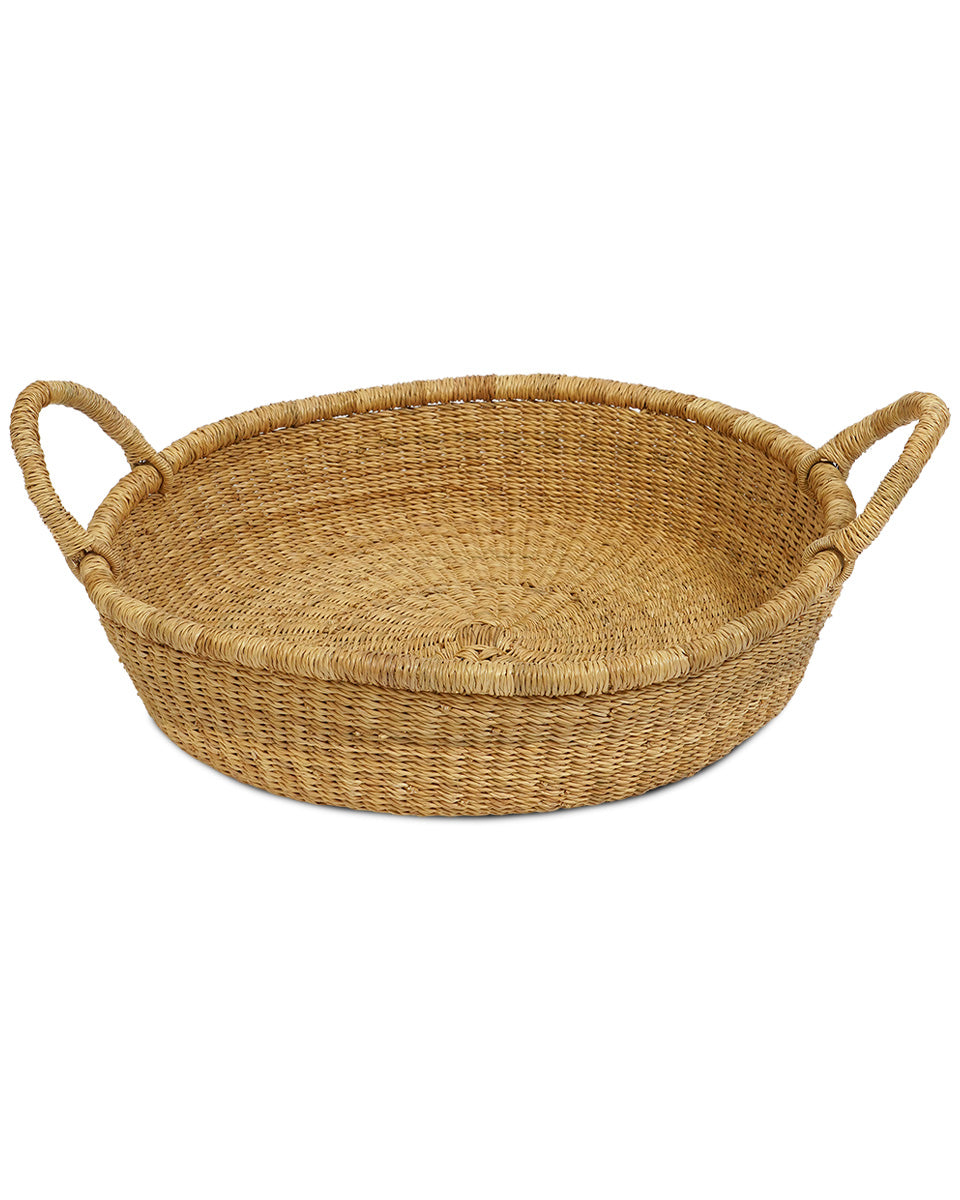
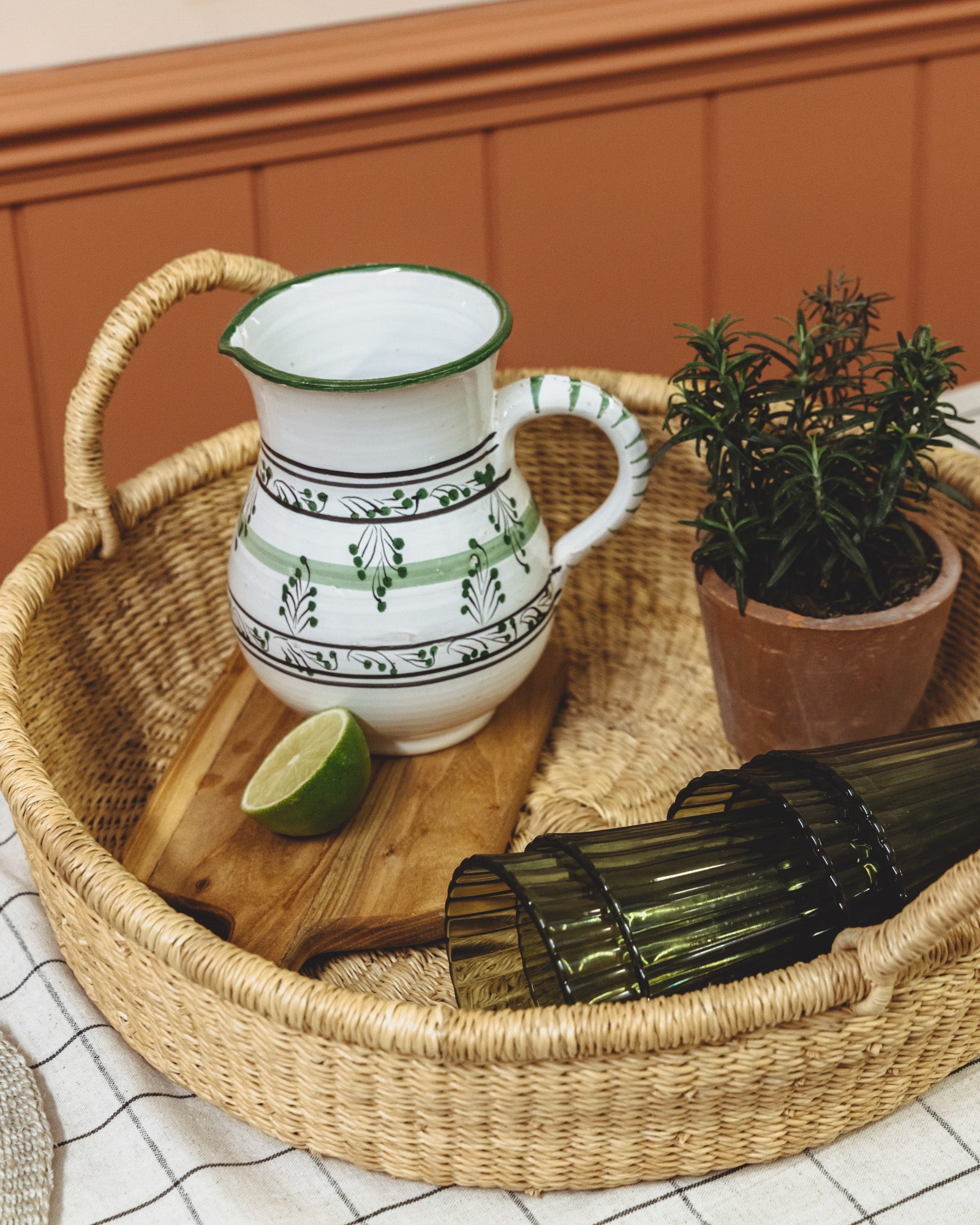
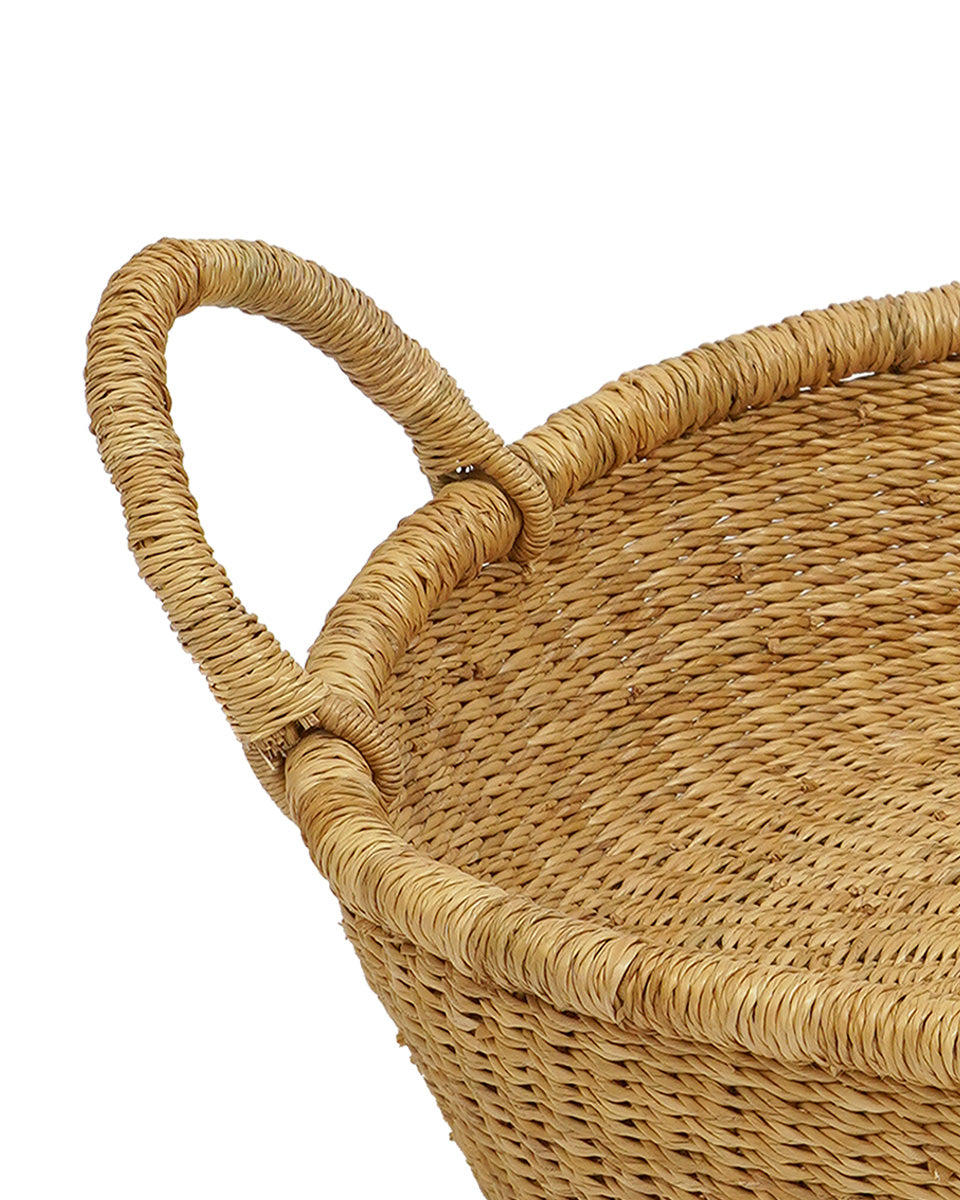
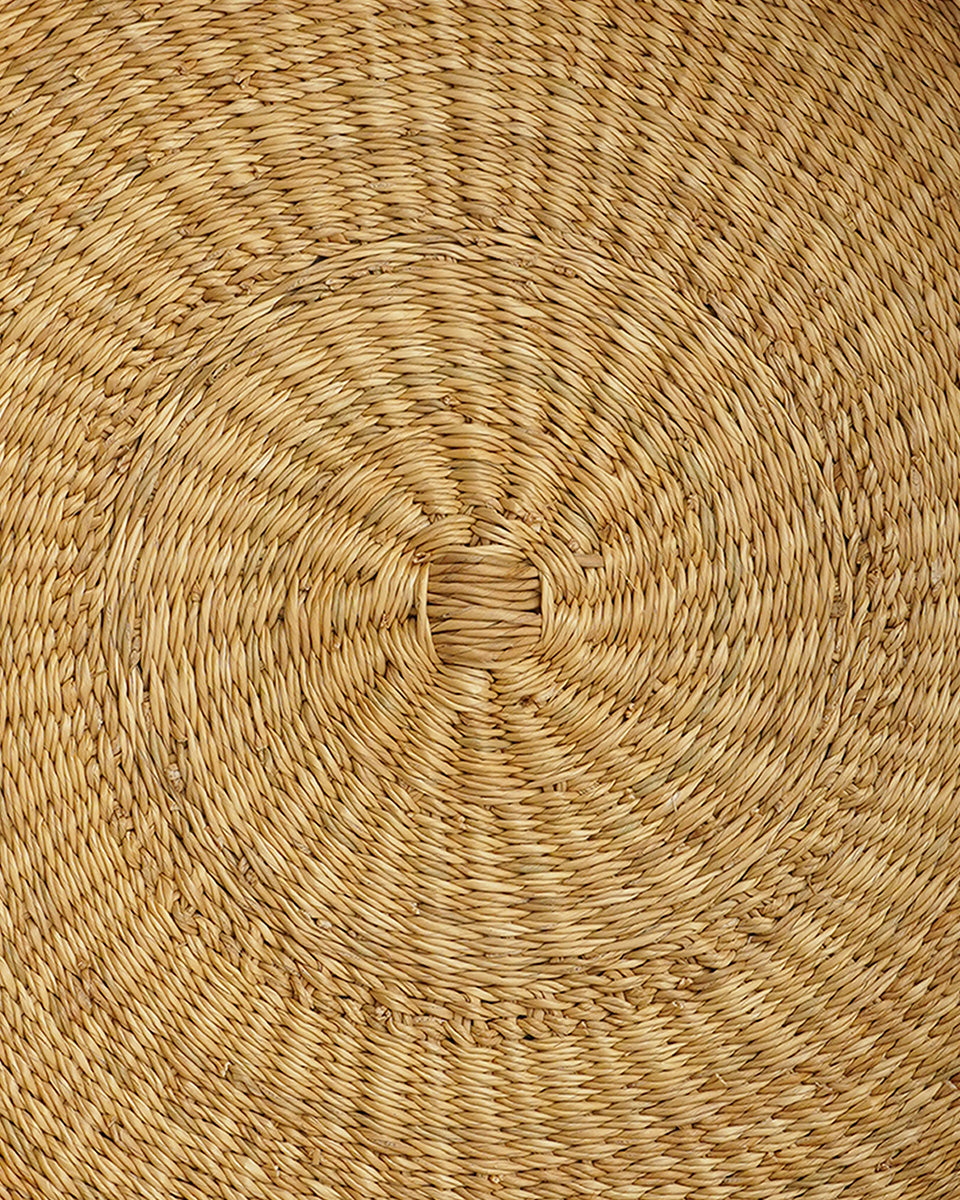
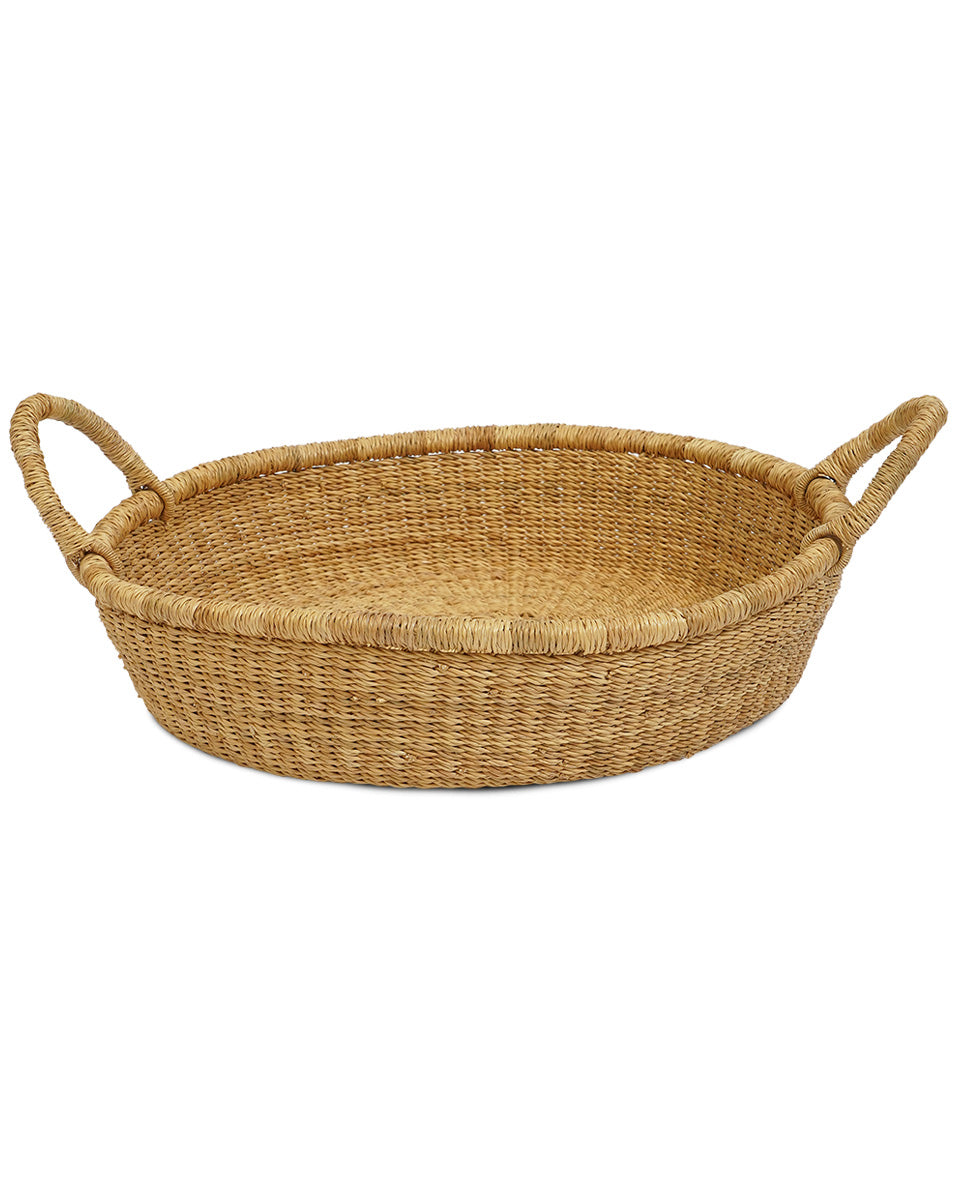
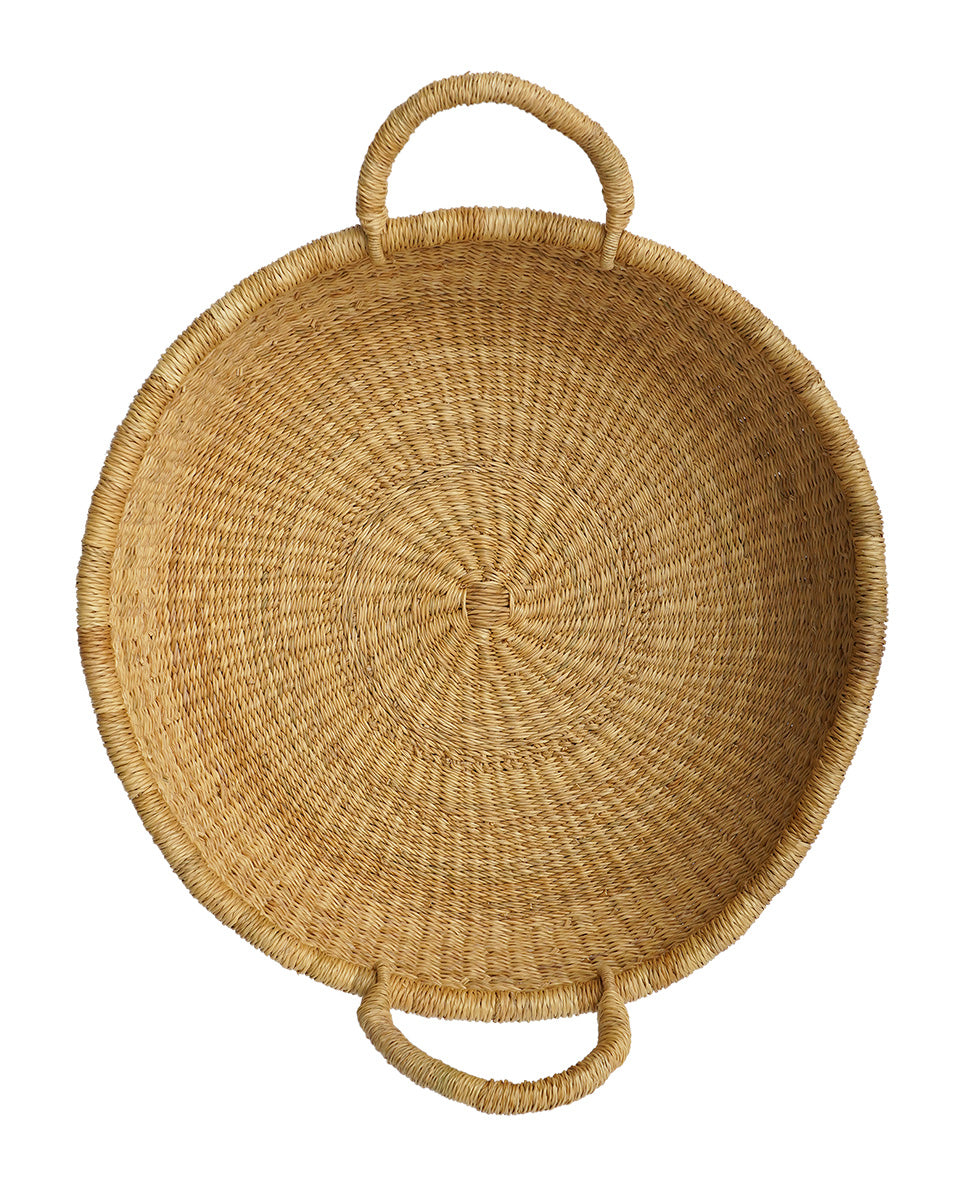
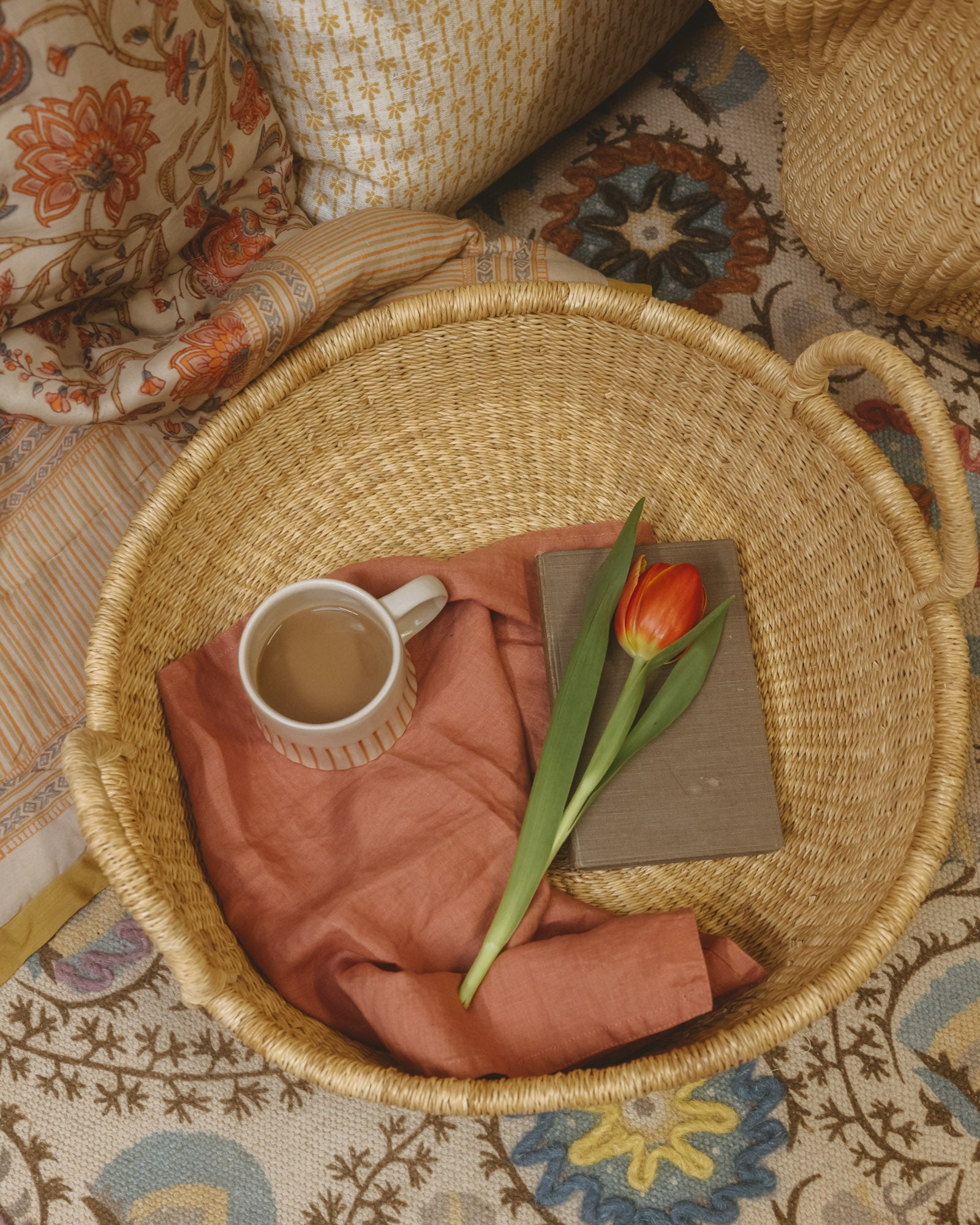
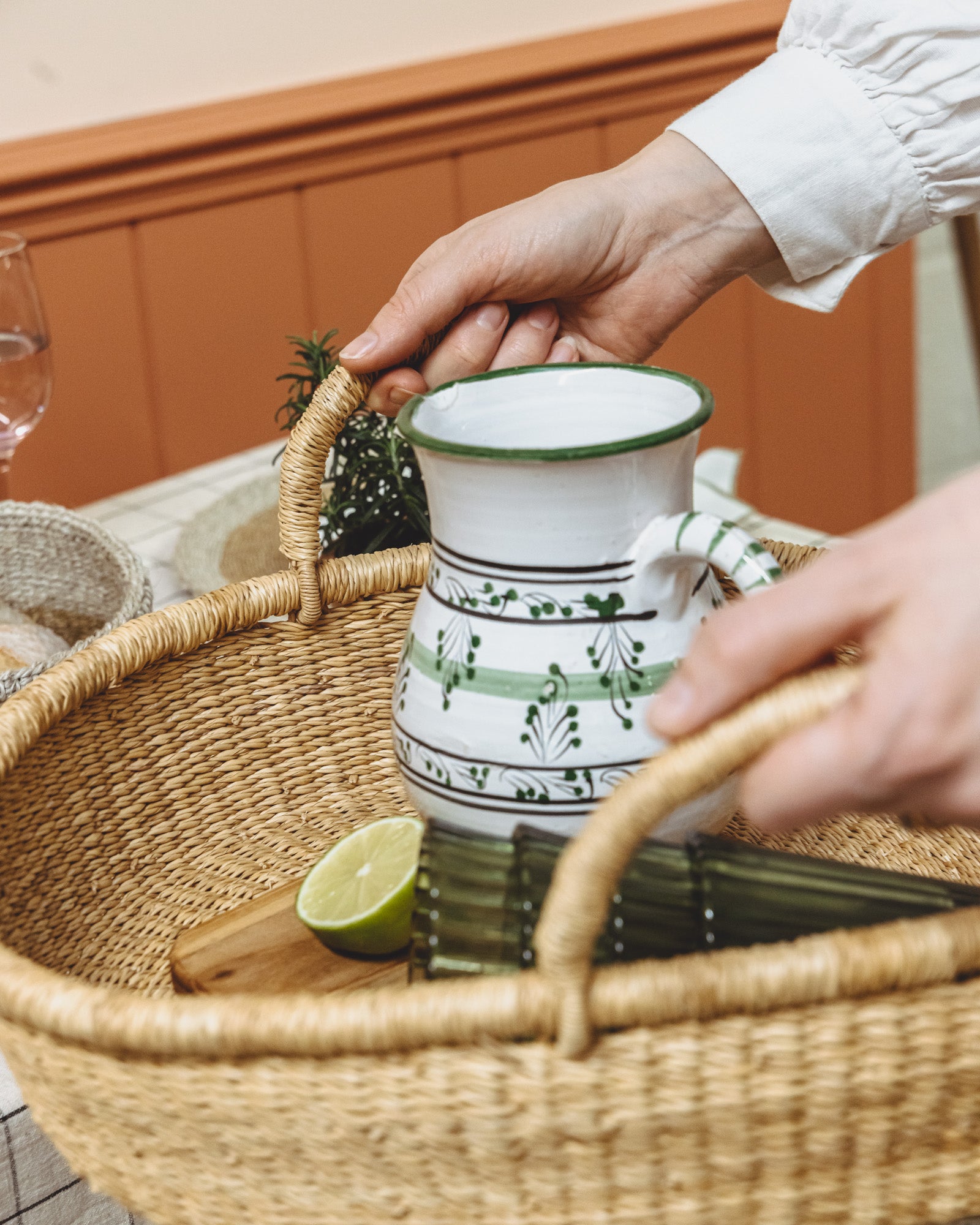
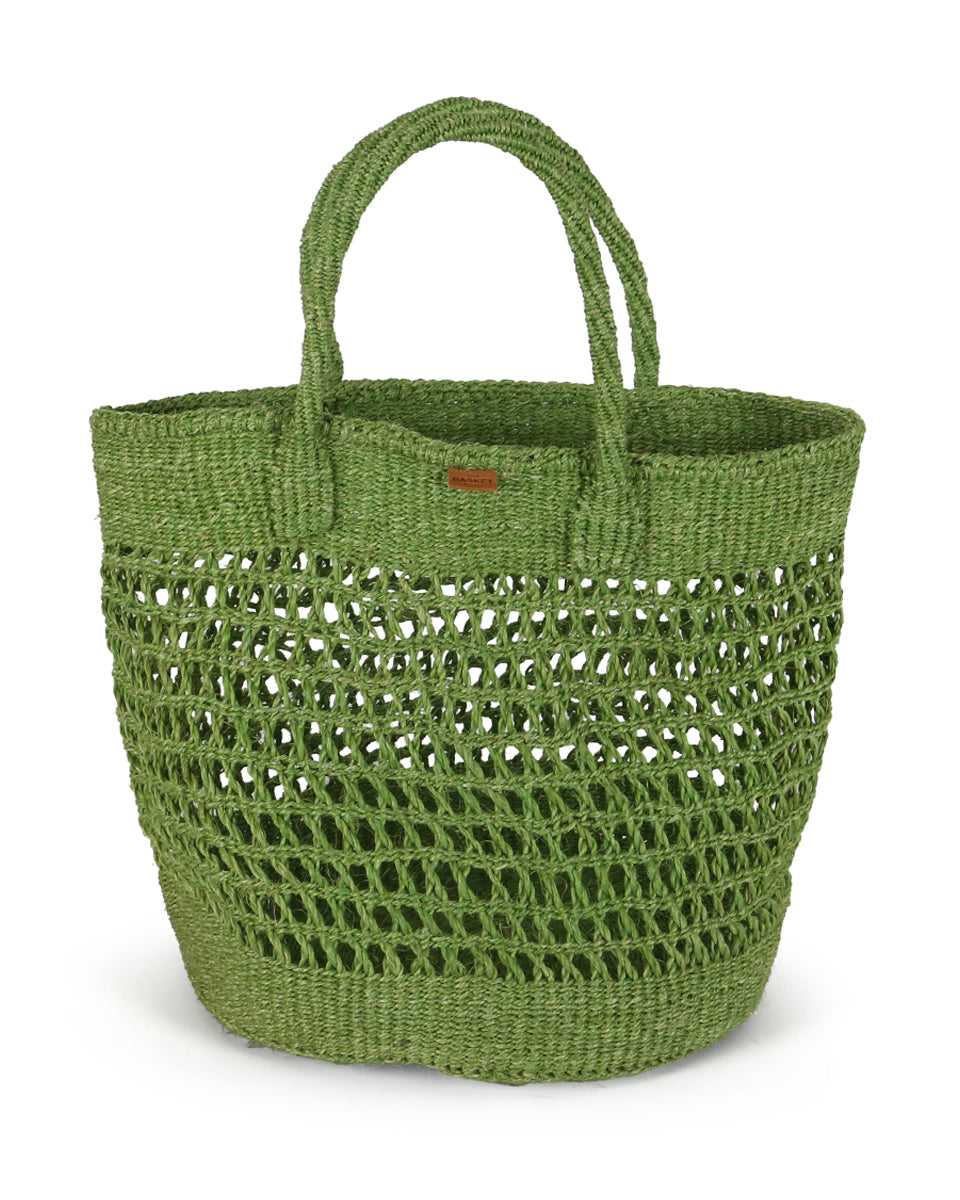









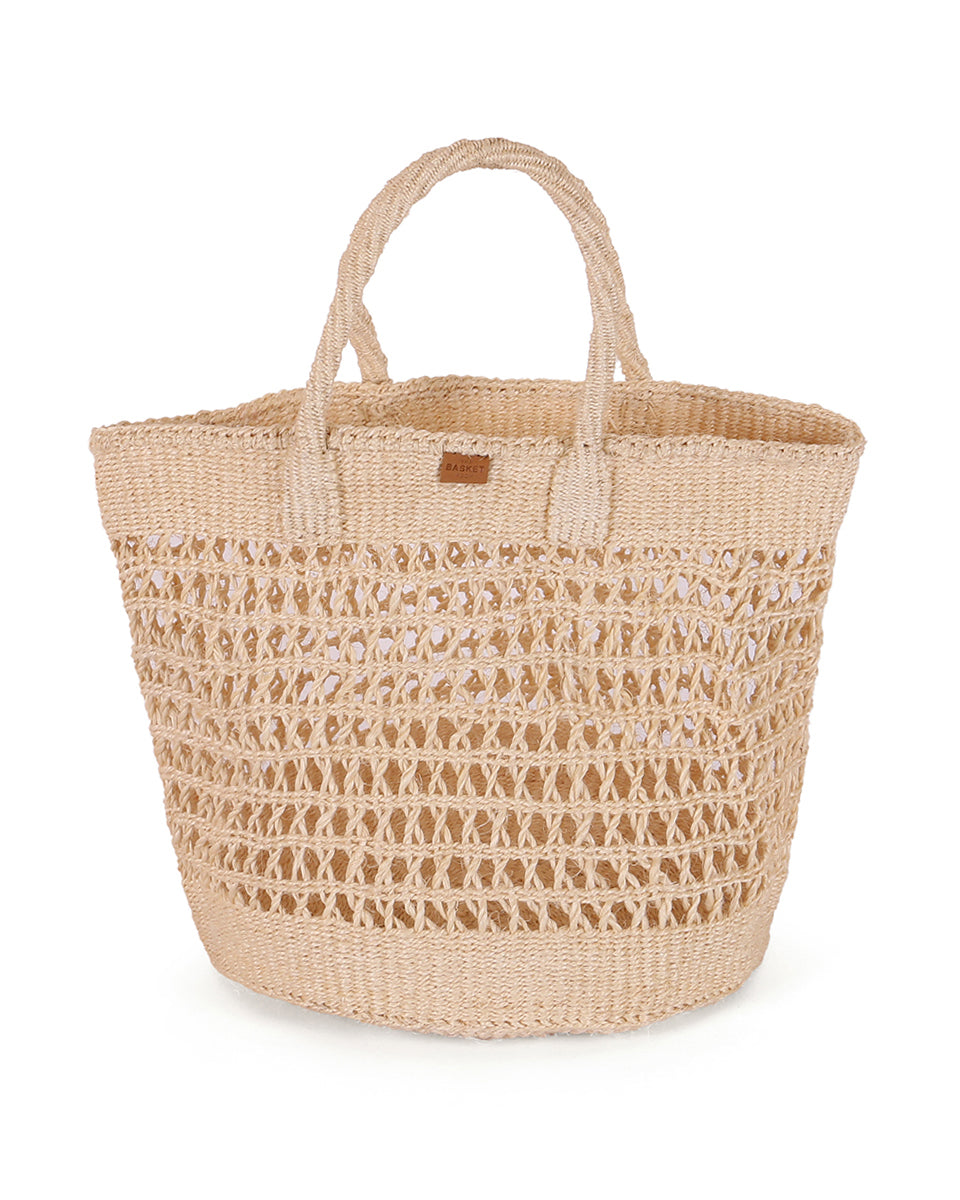




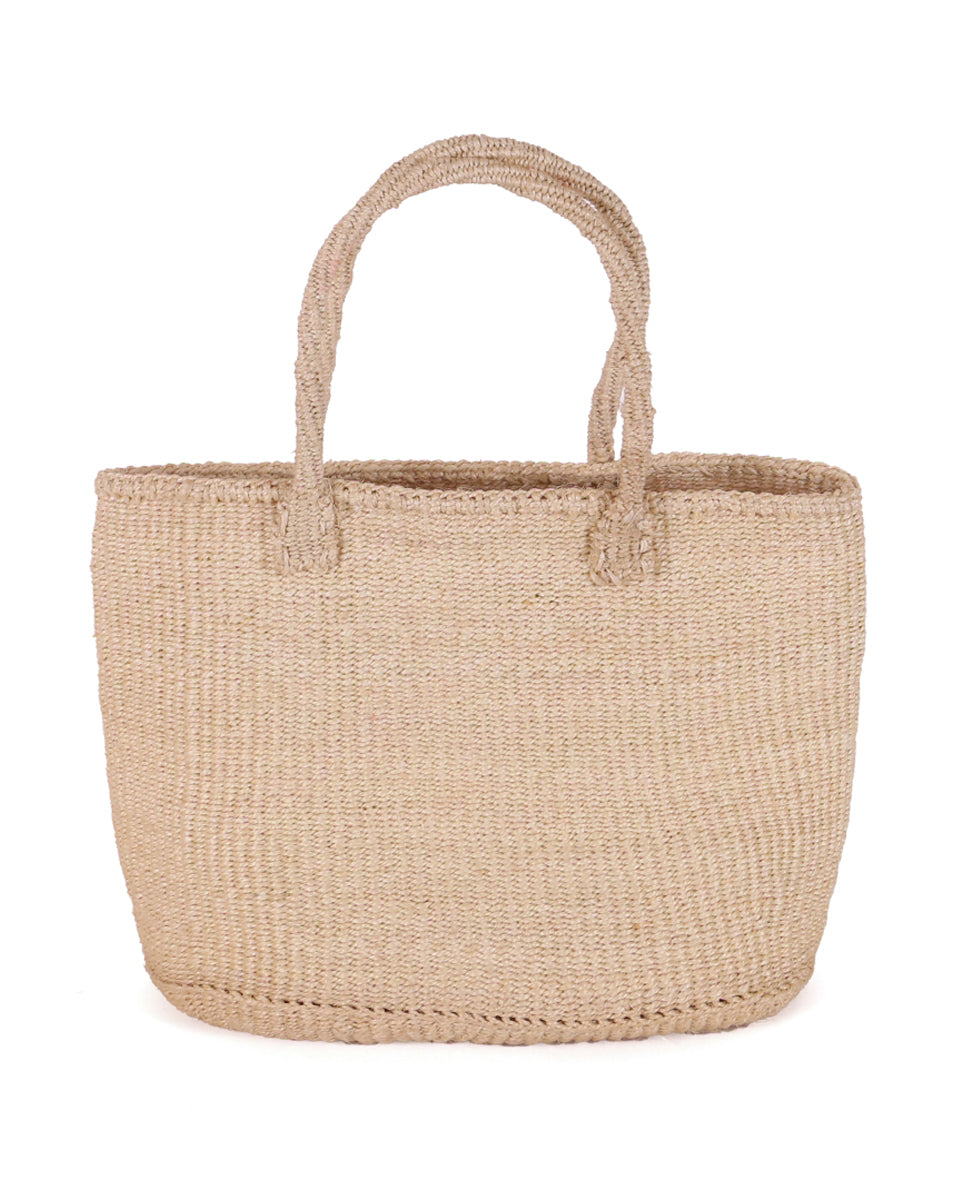









Comments
Thank you for making such beautiful baskets… hoping to add them to our fresh egg offerings as an Easter give away. What basket would you recommend